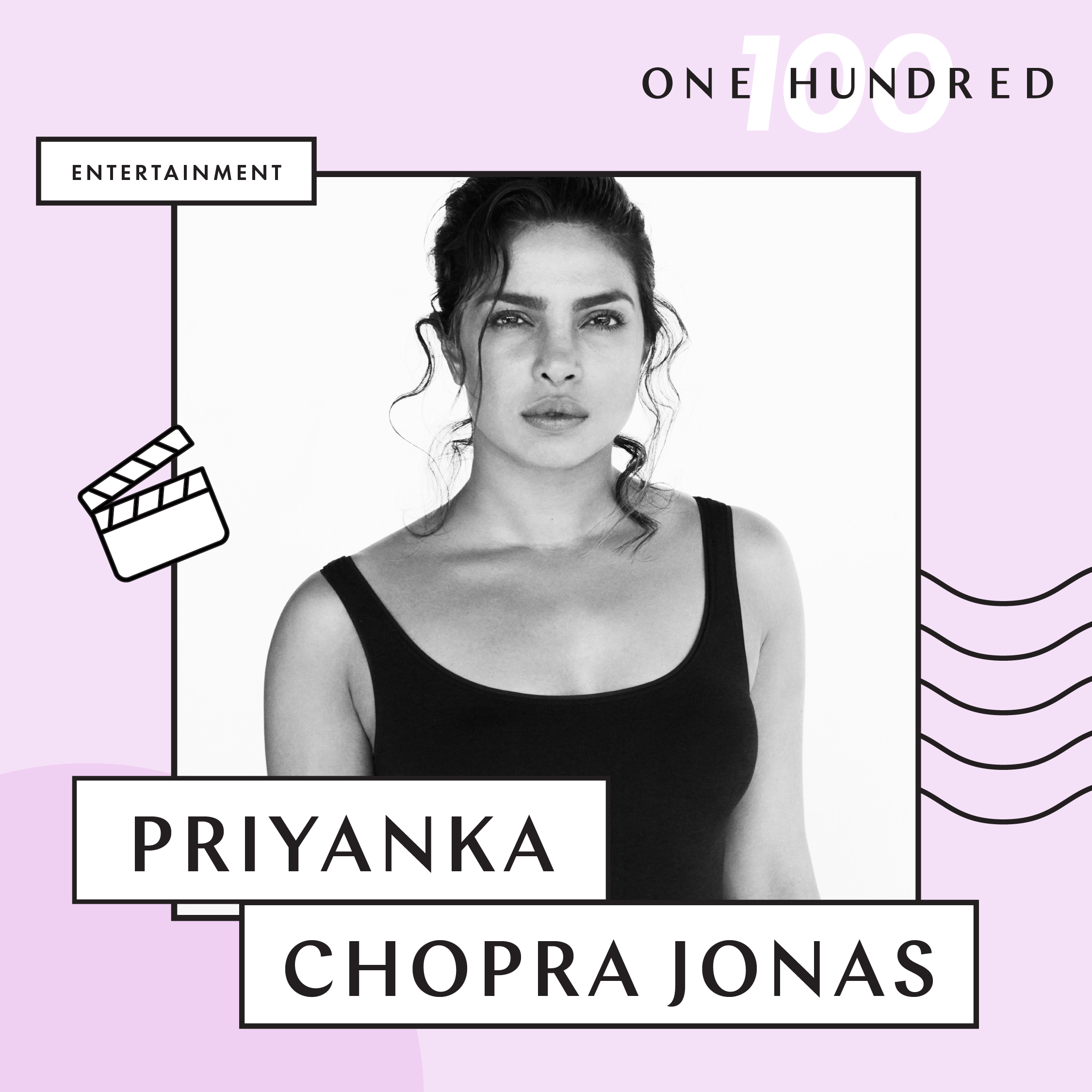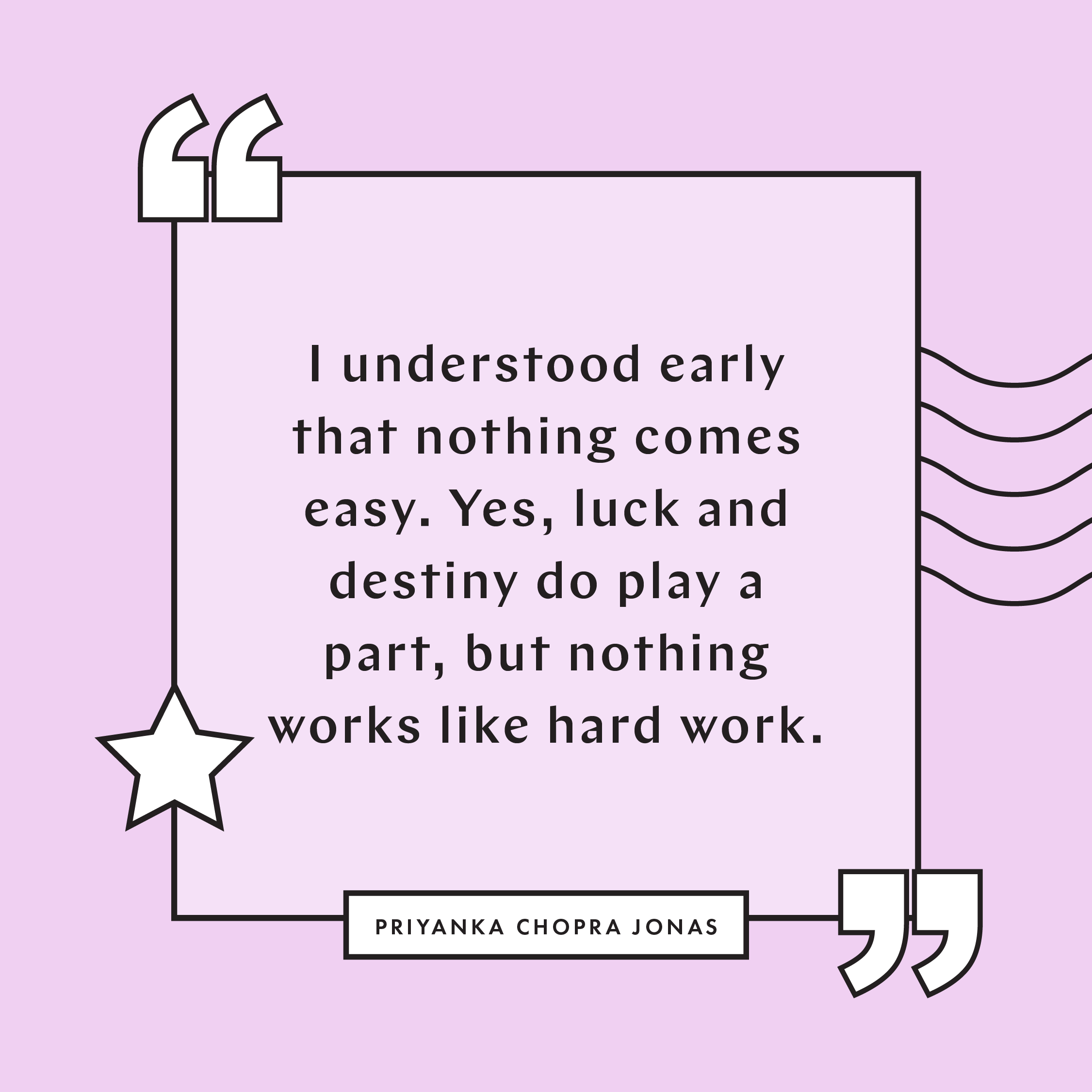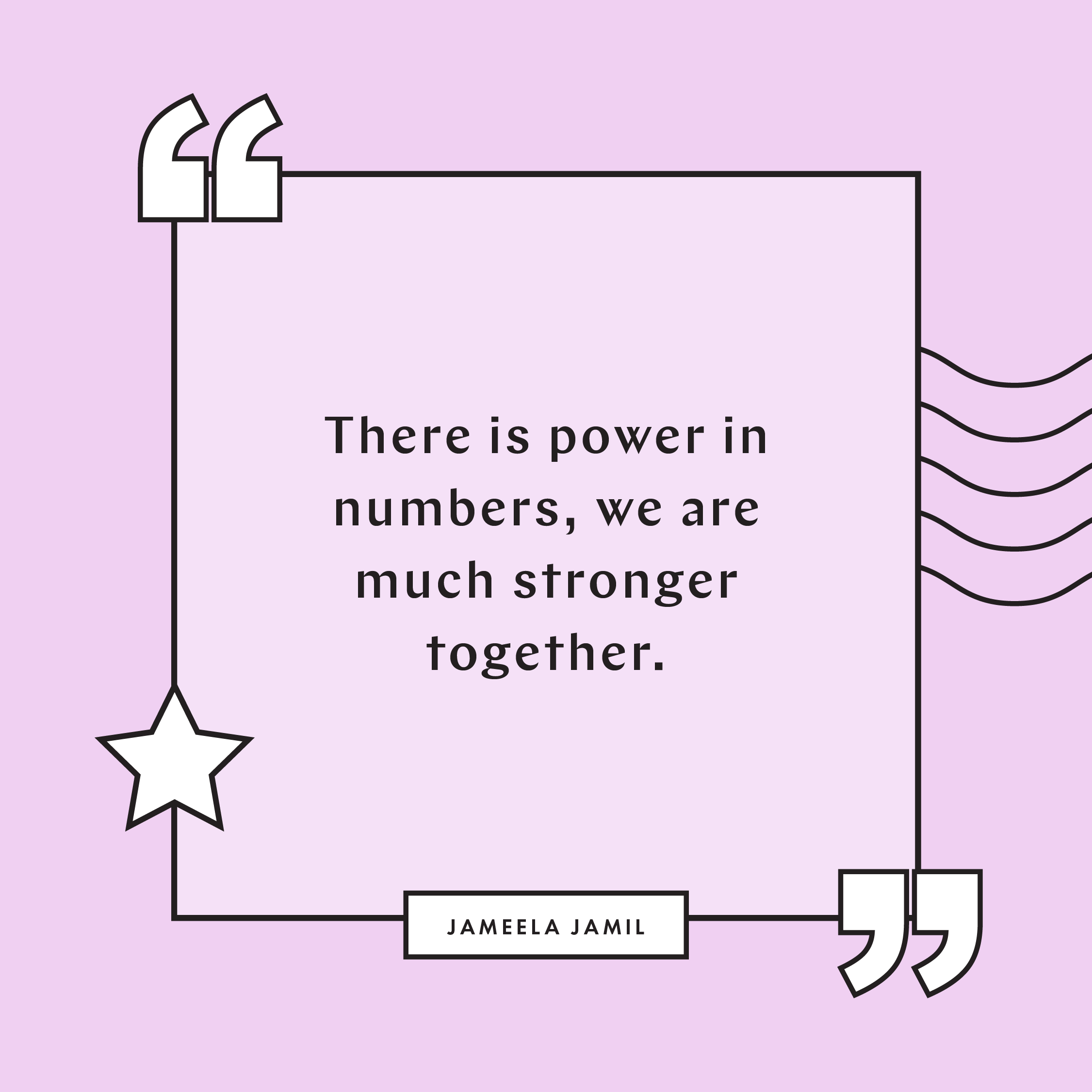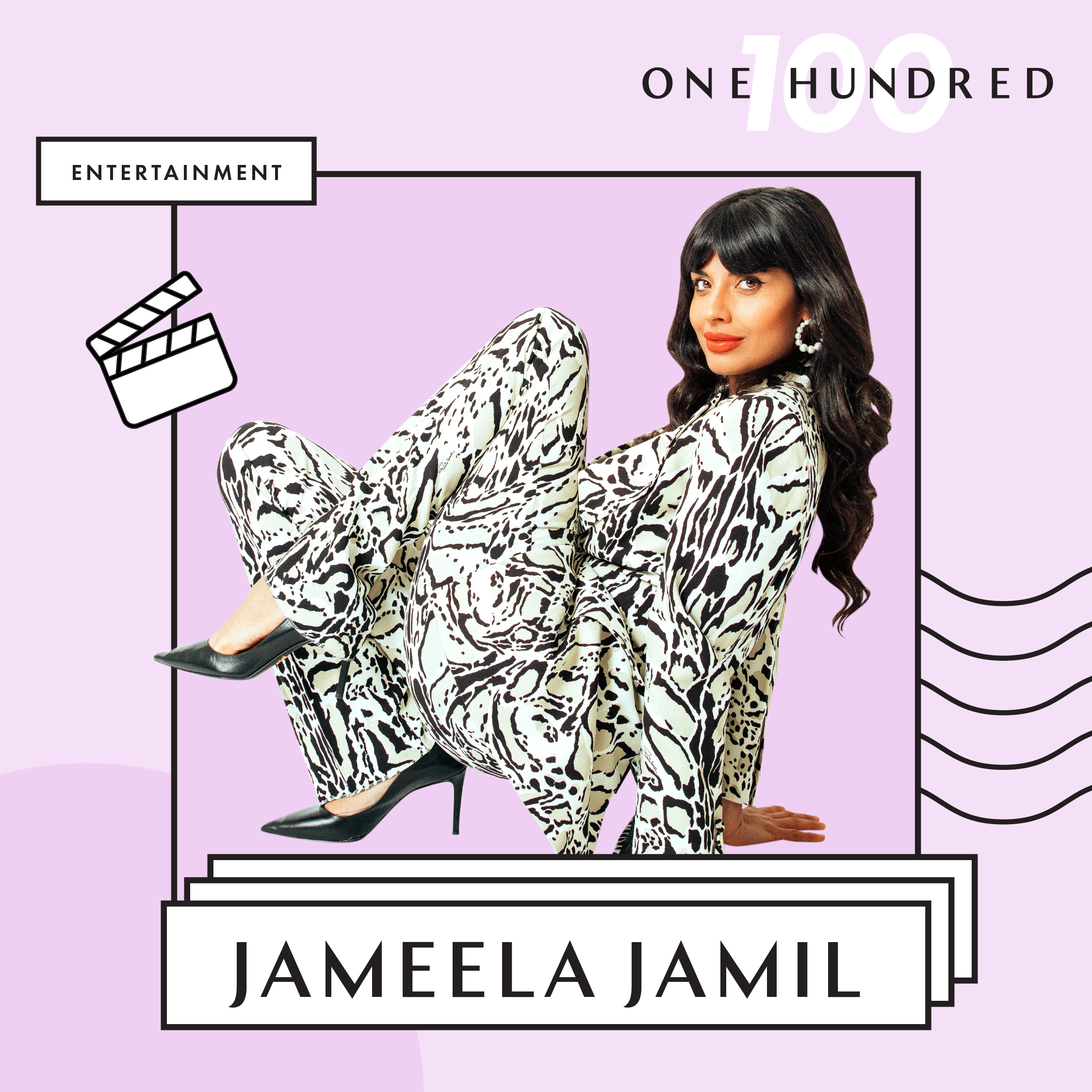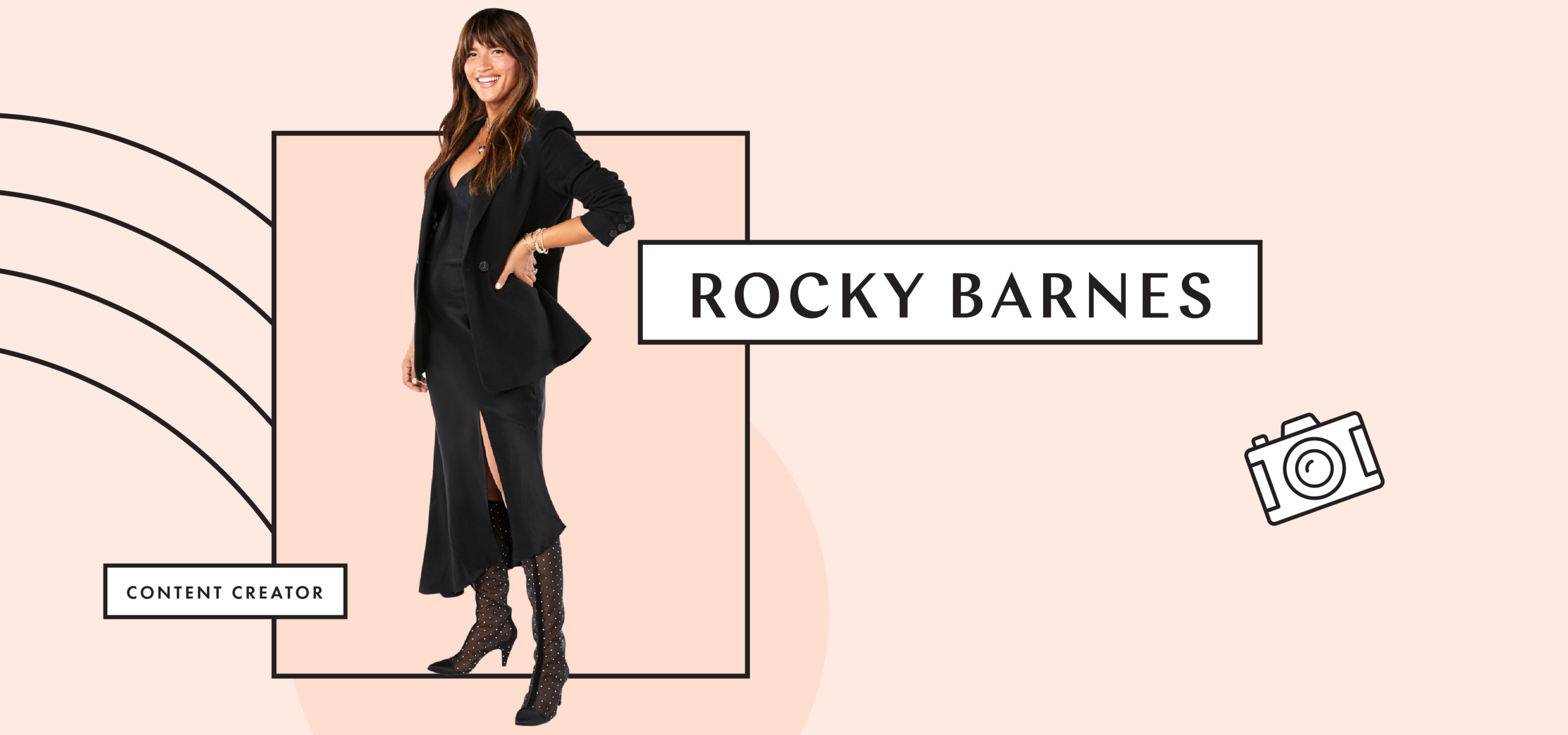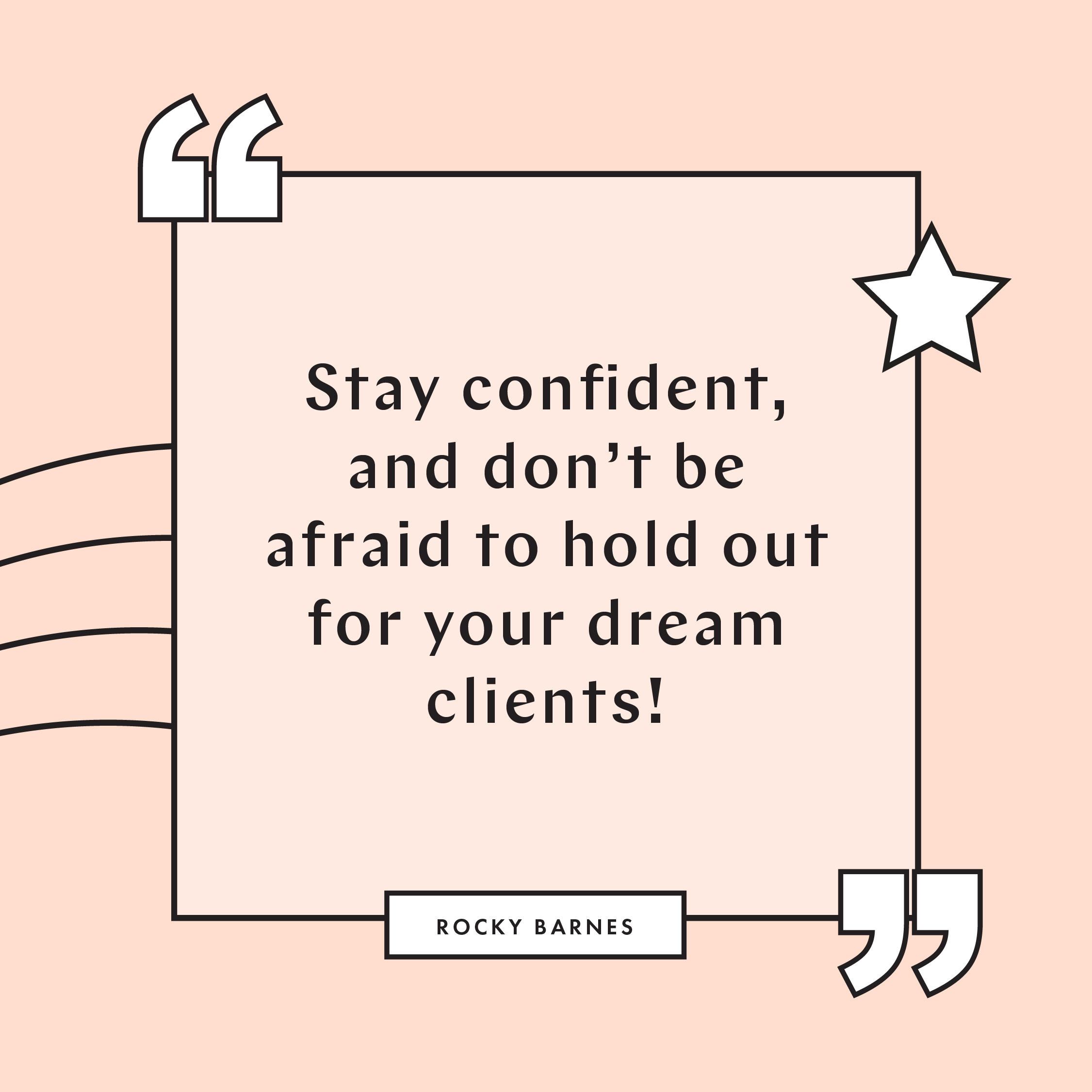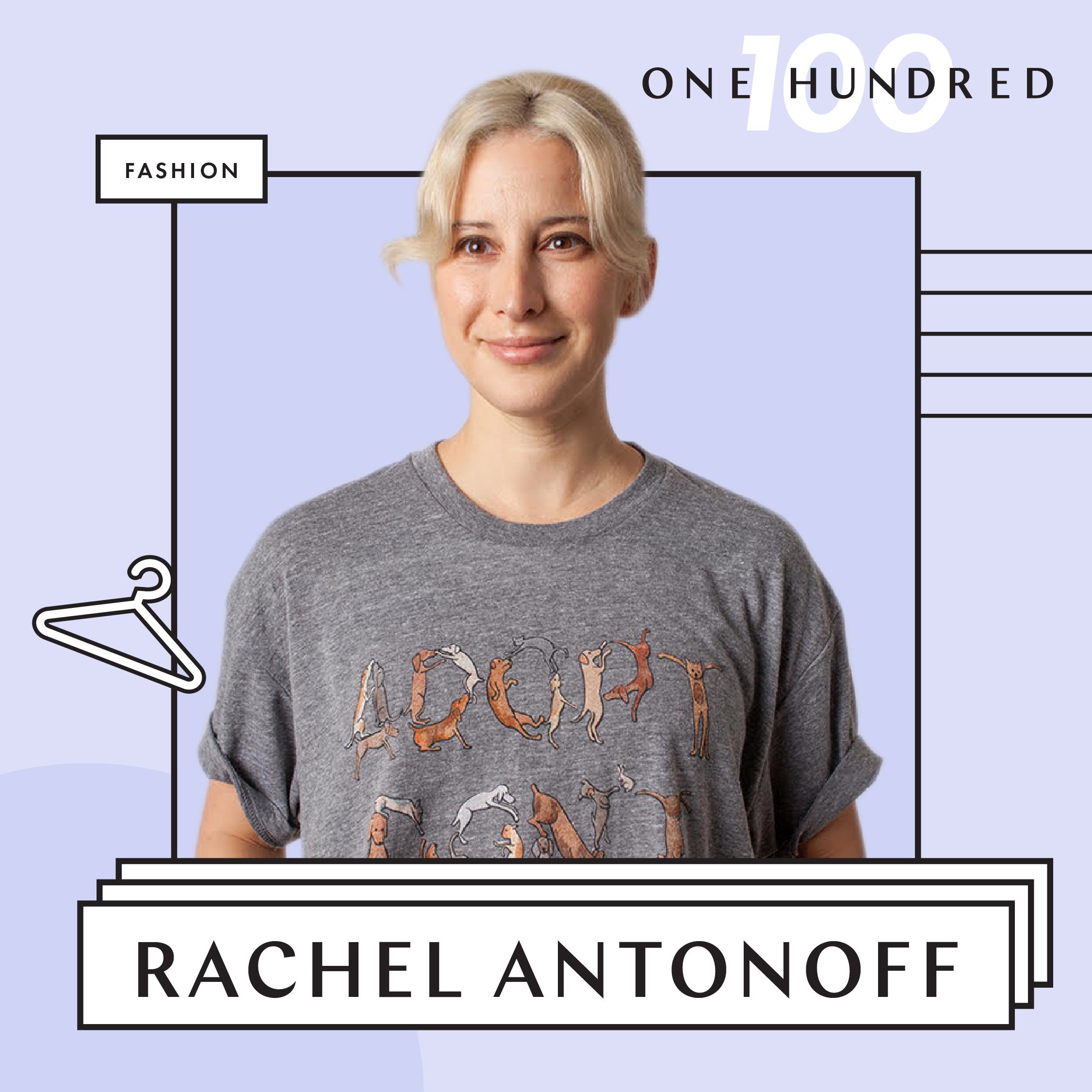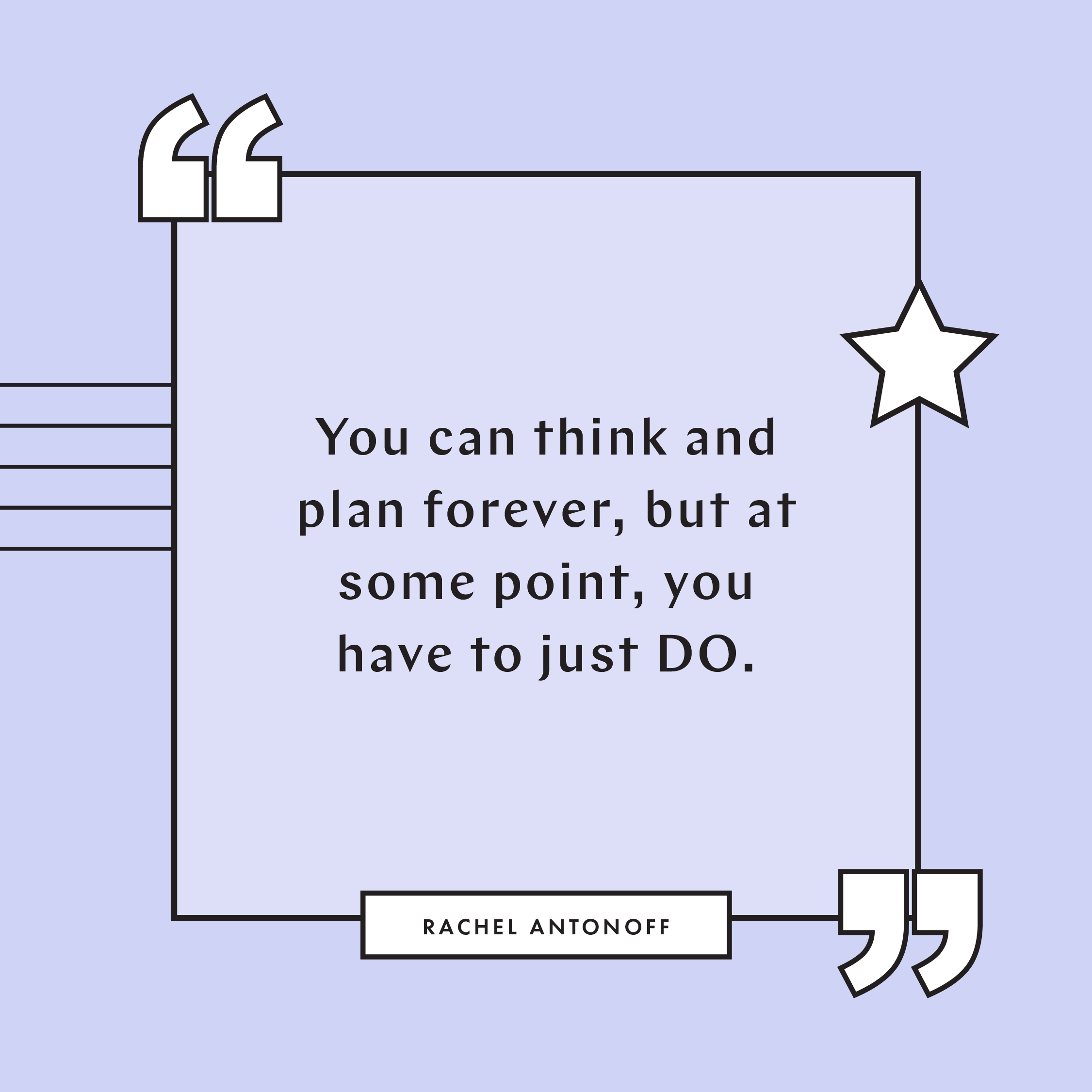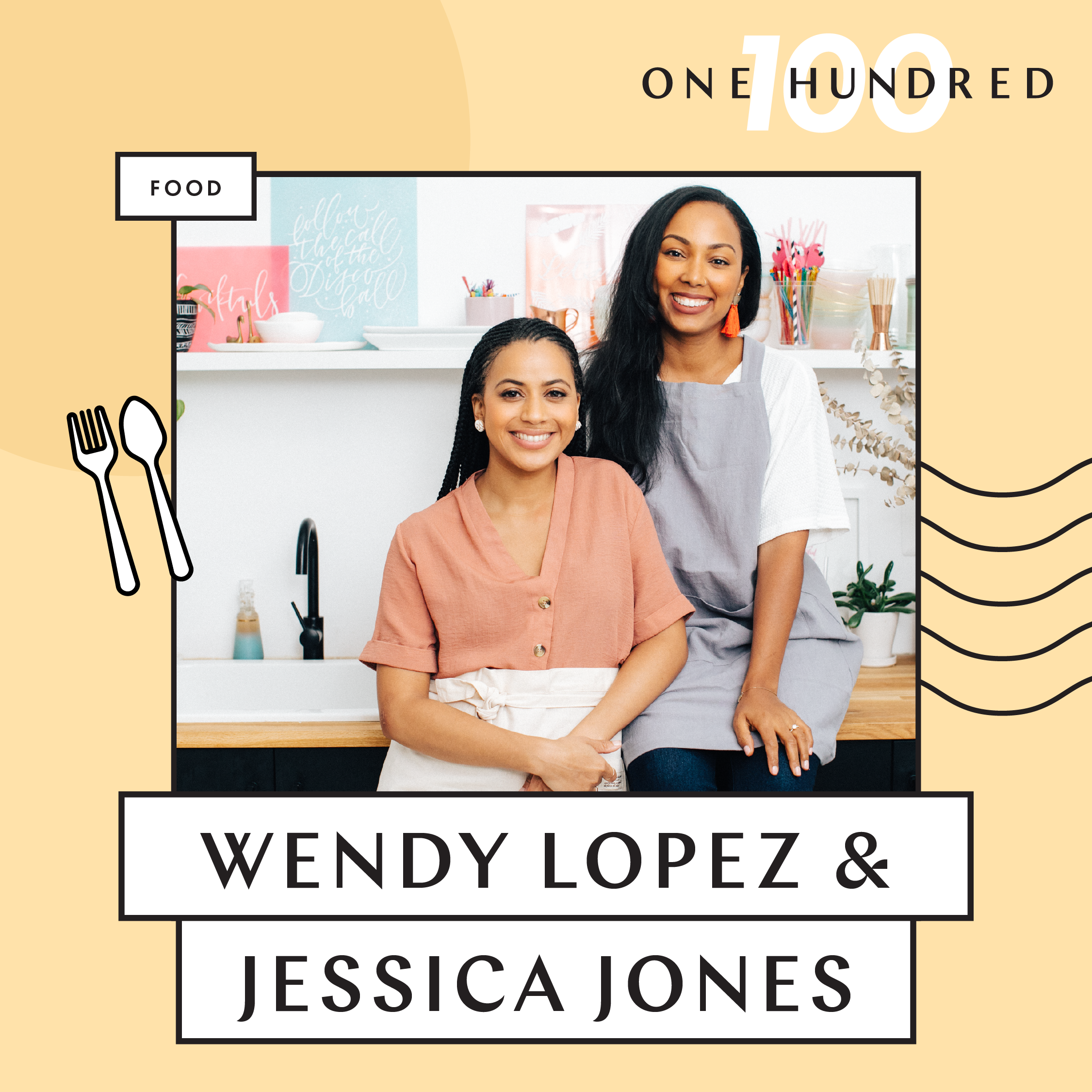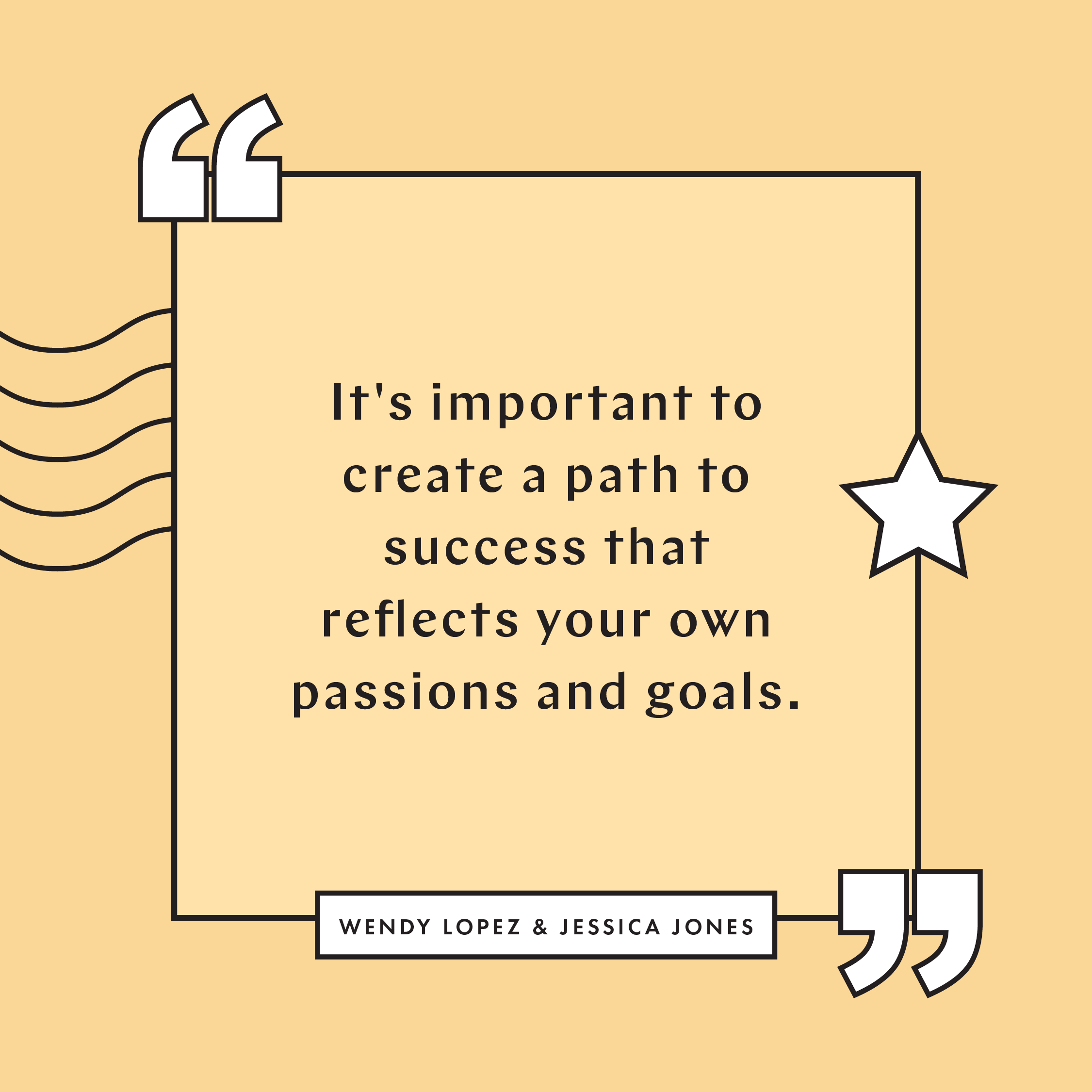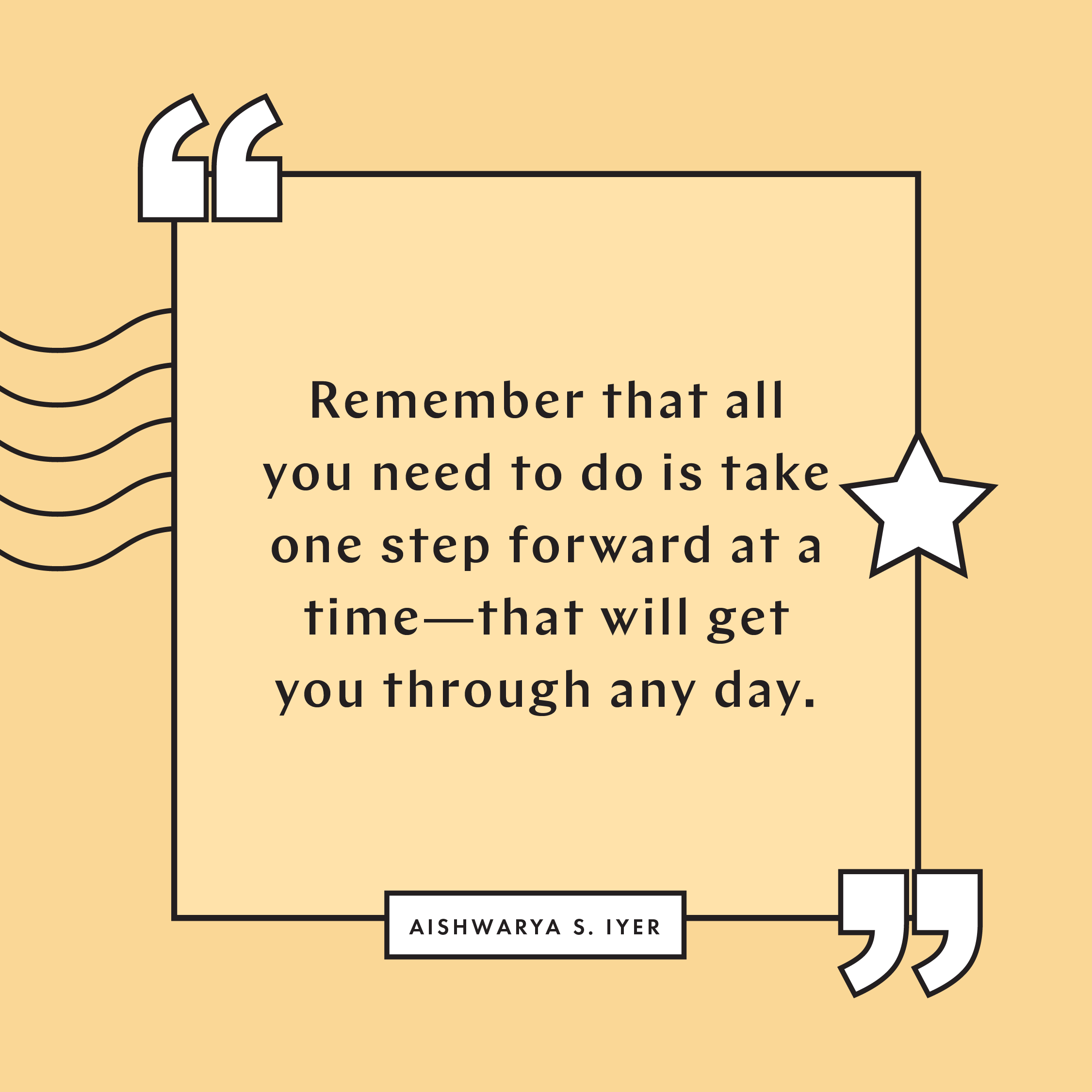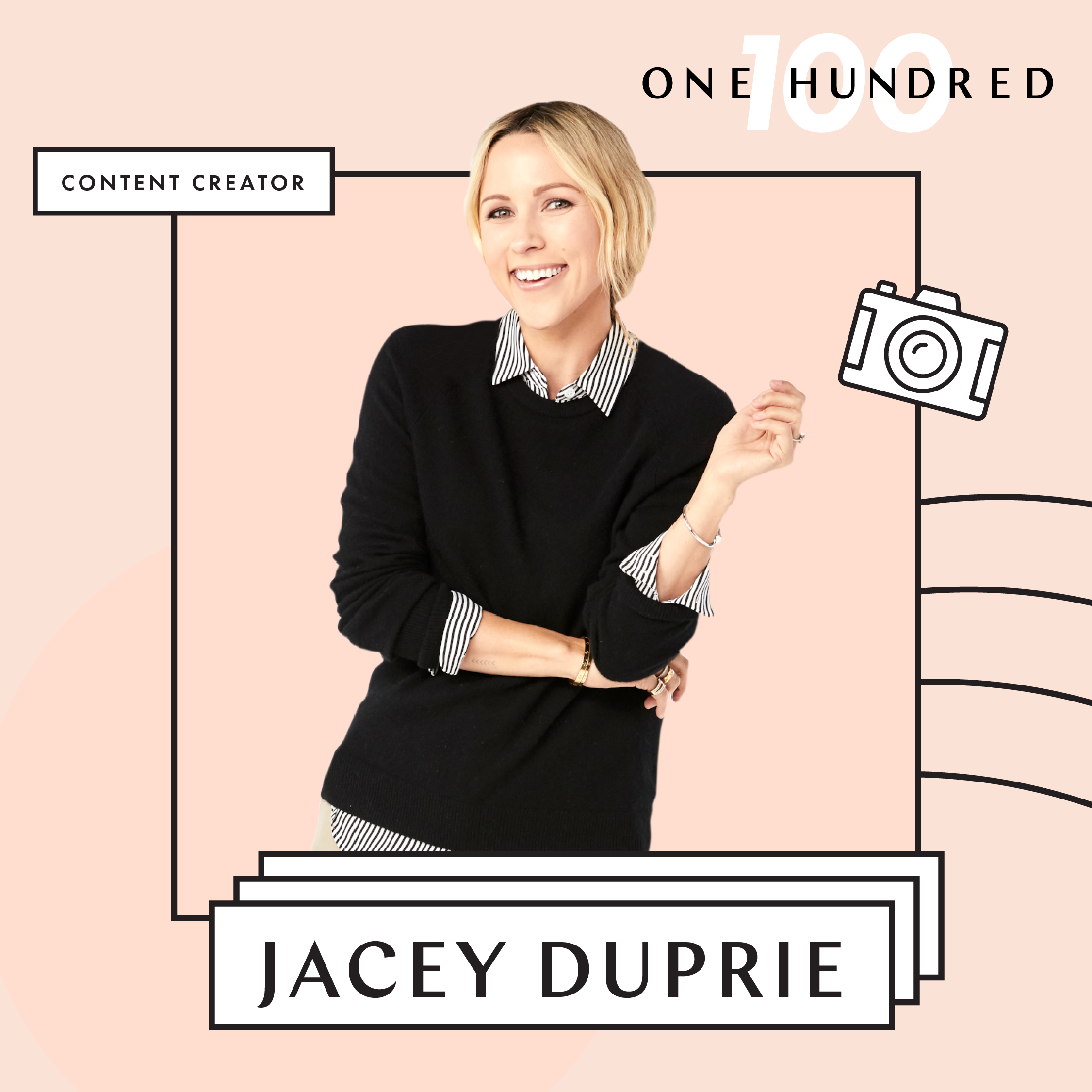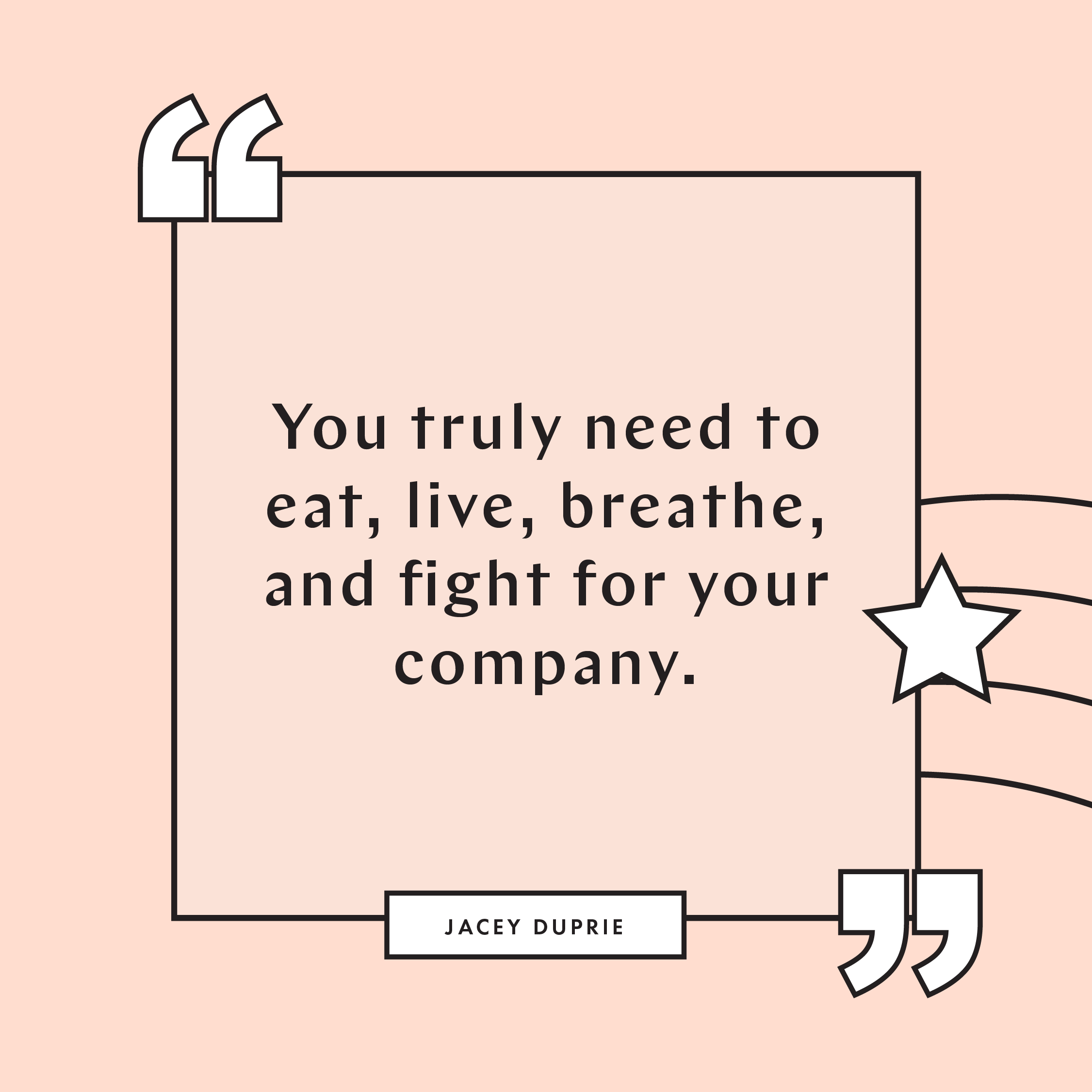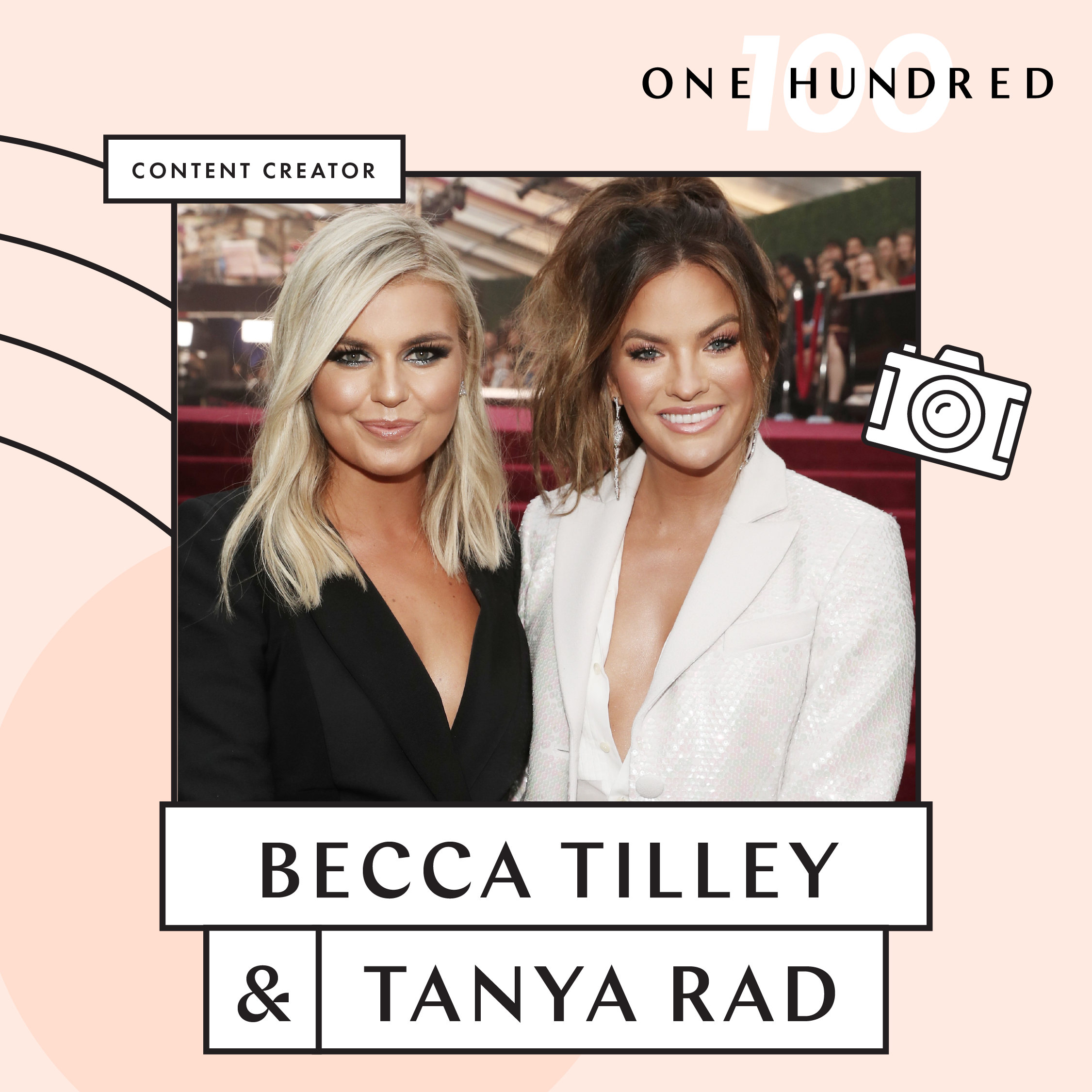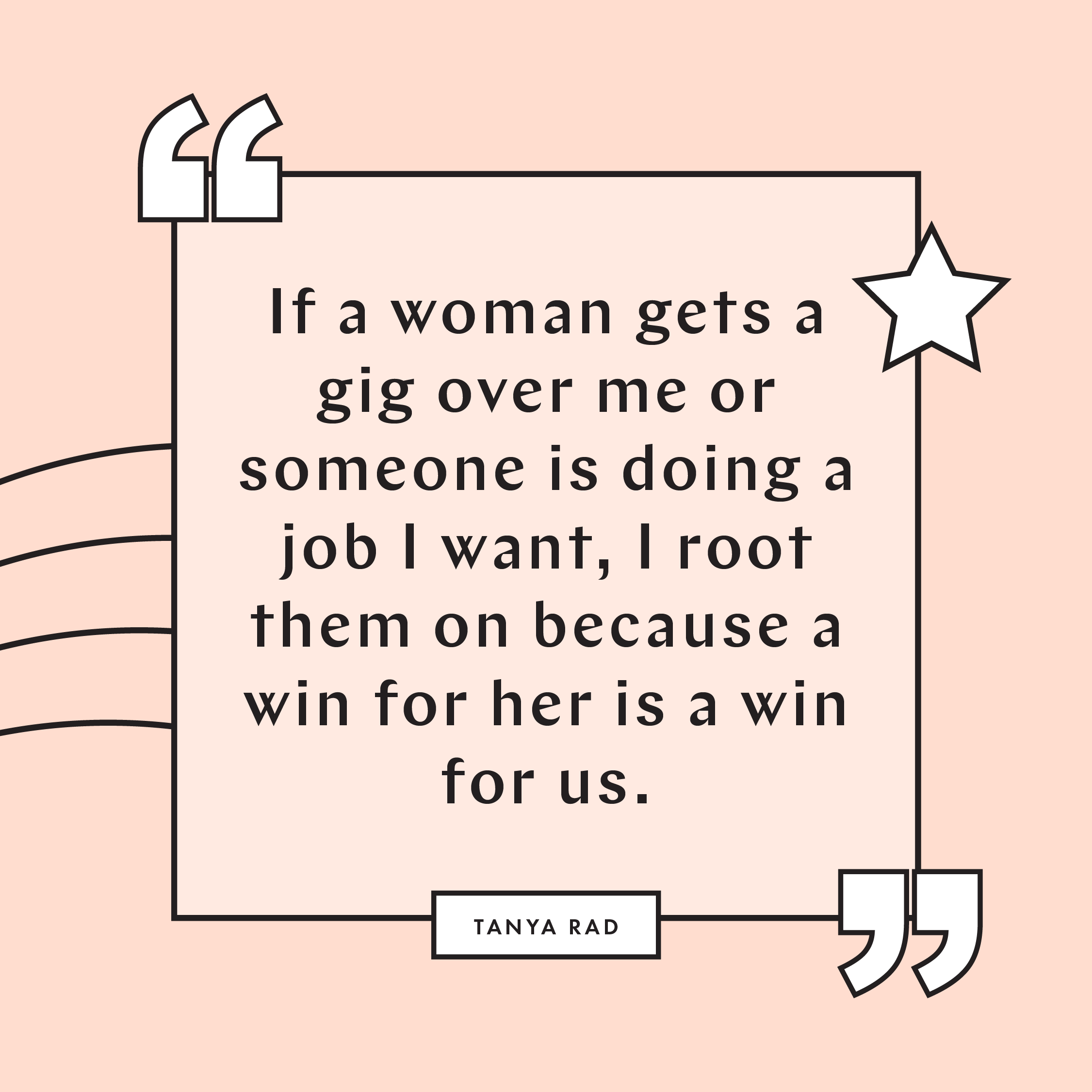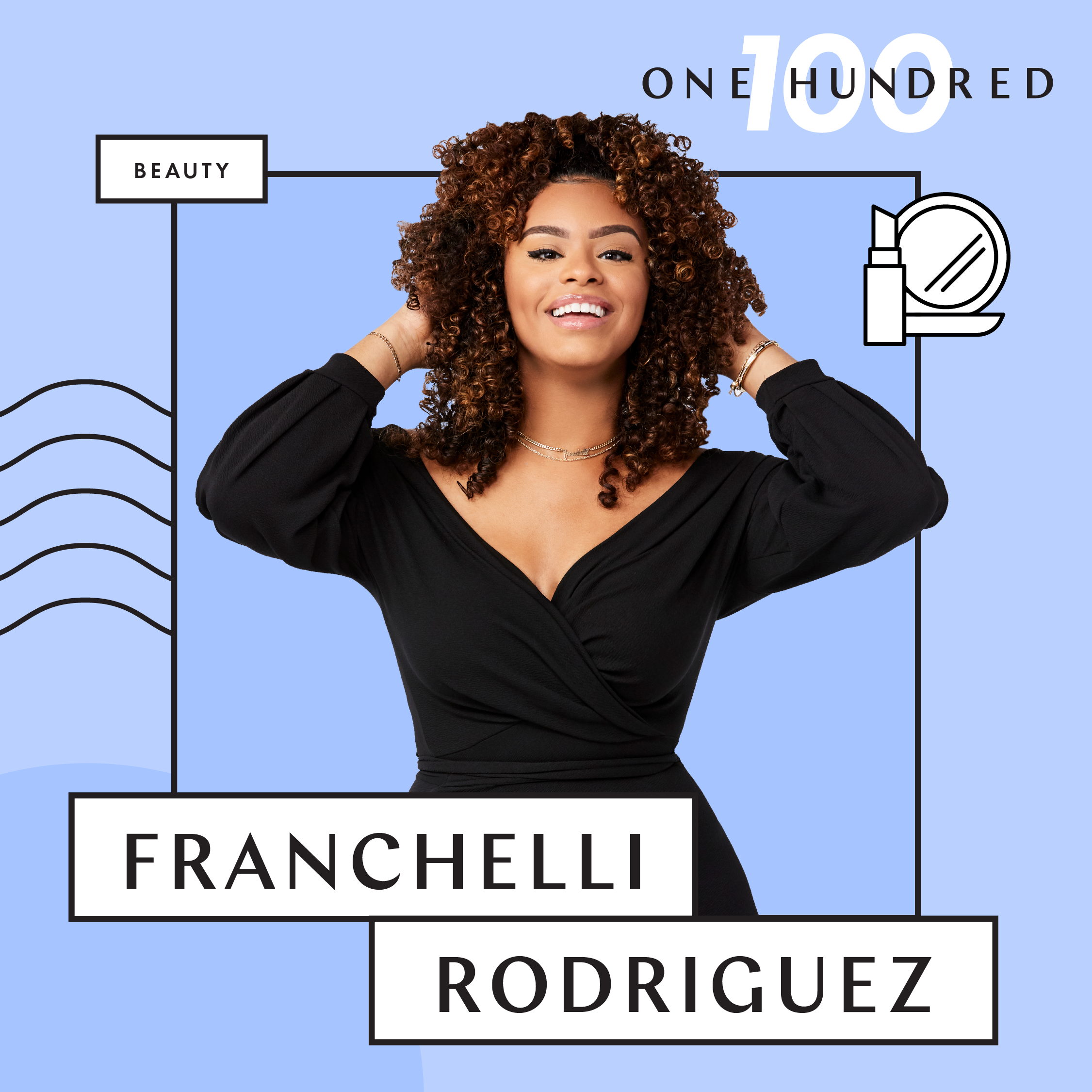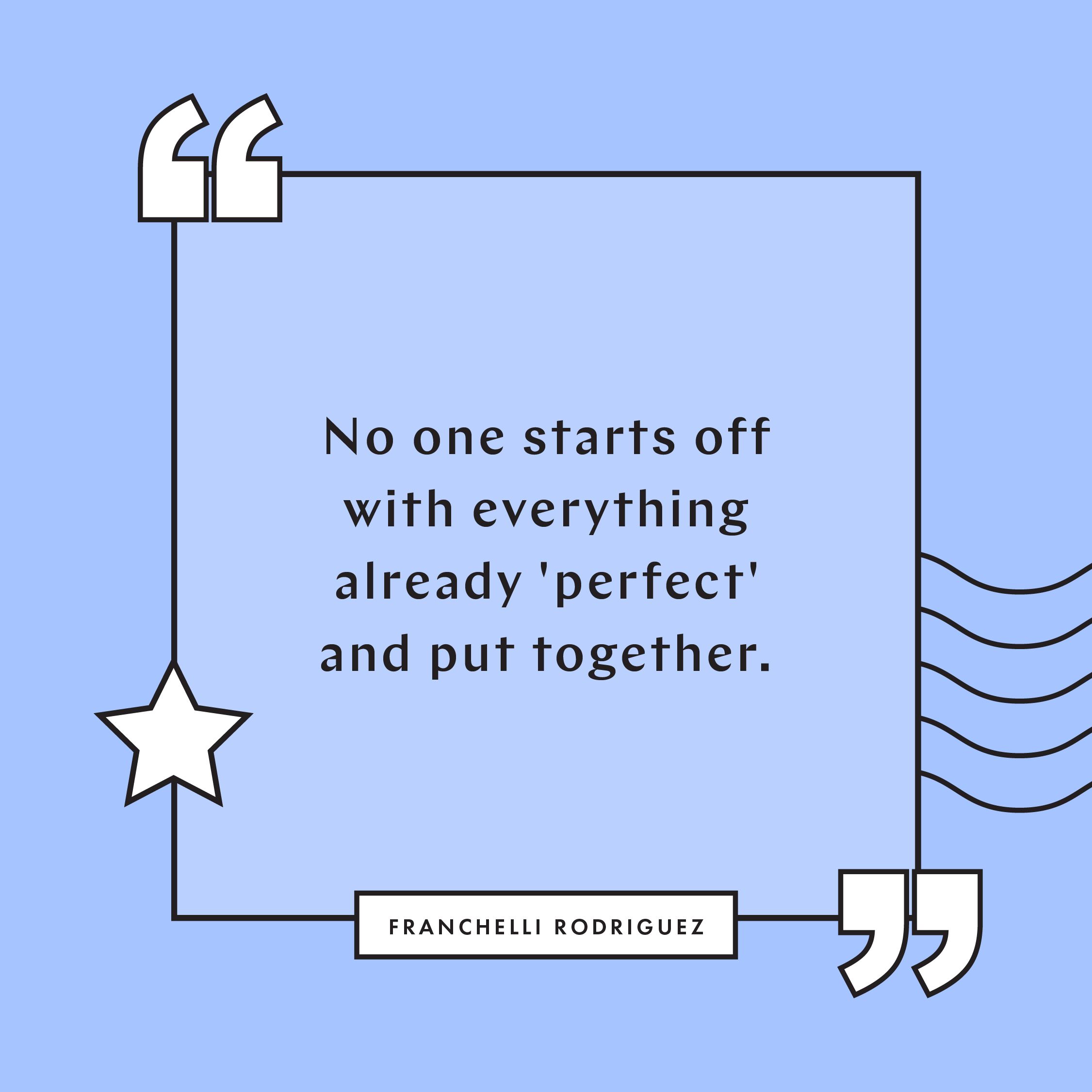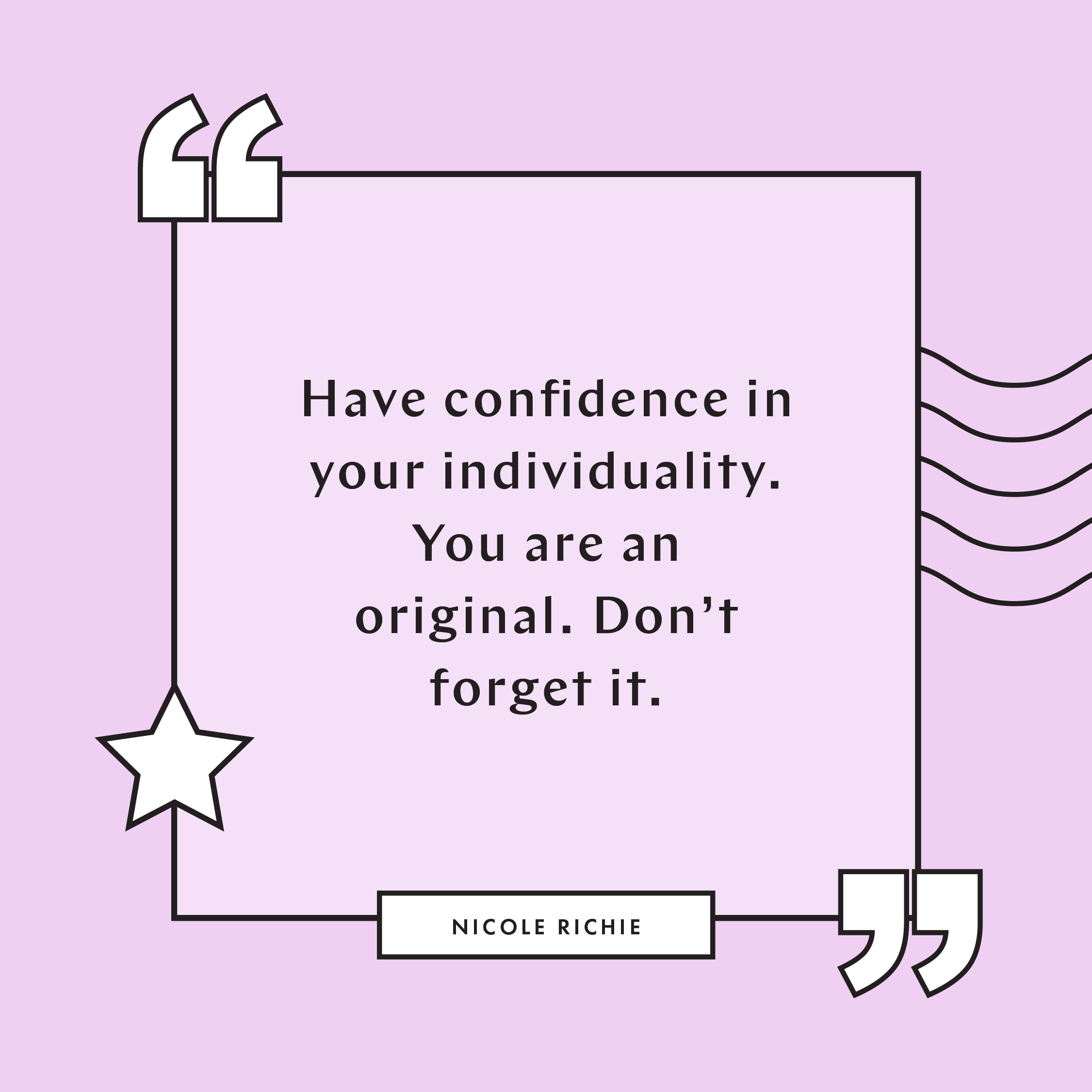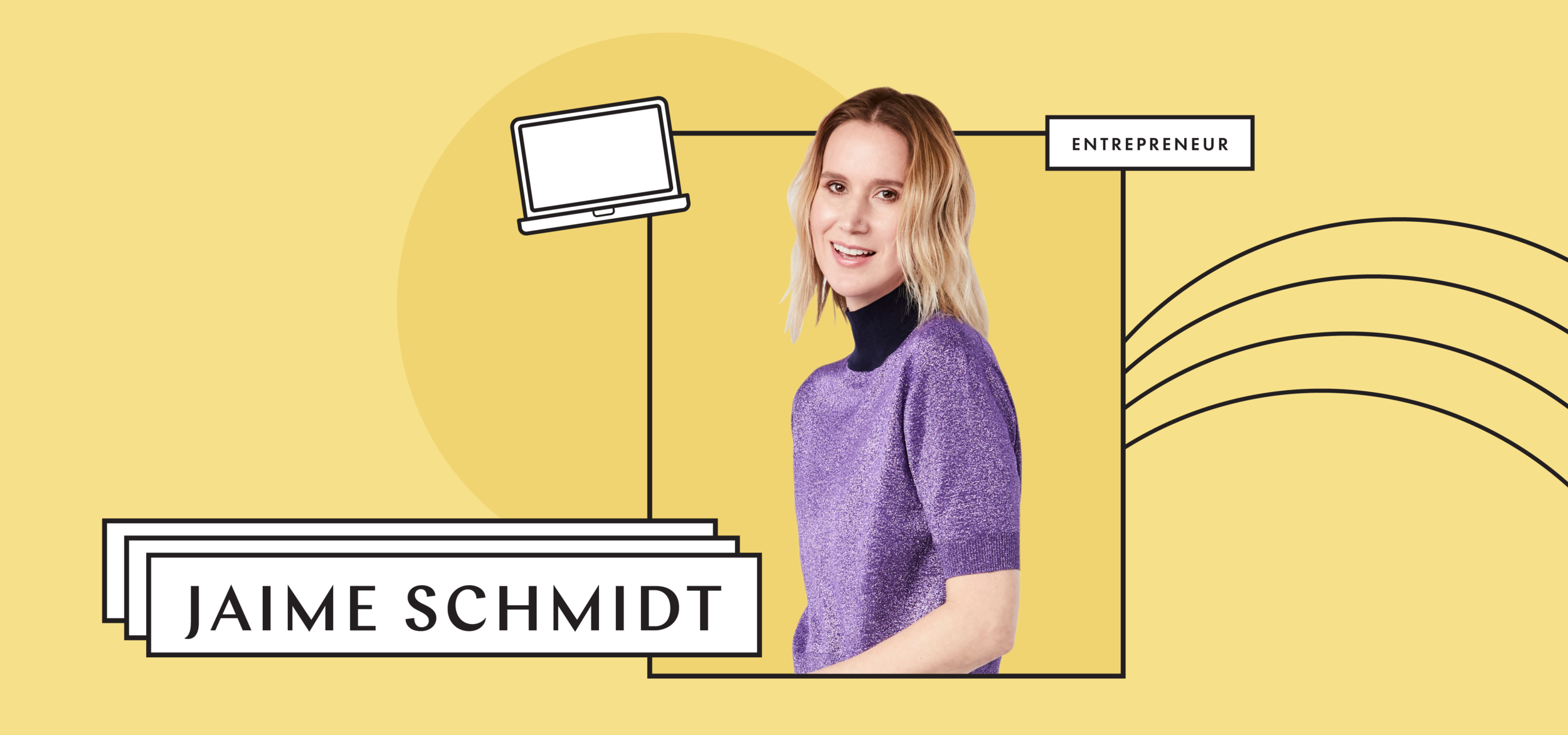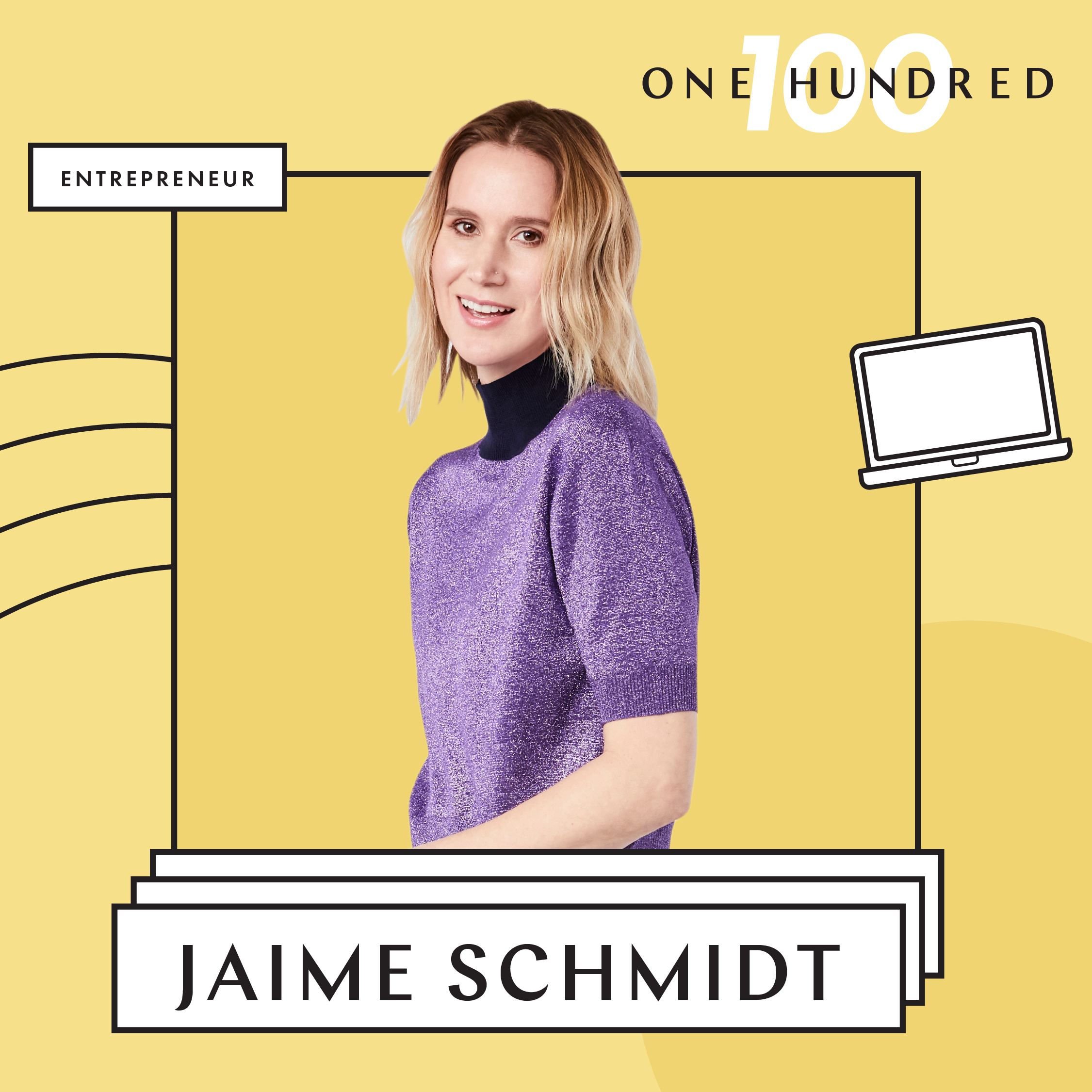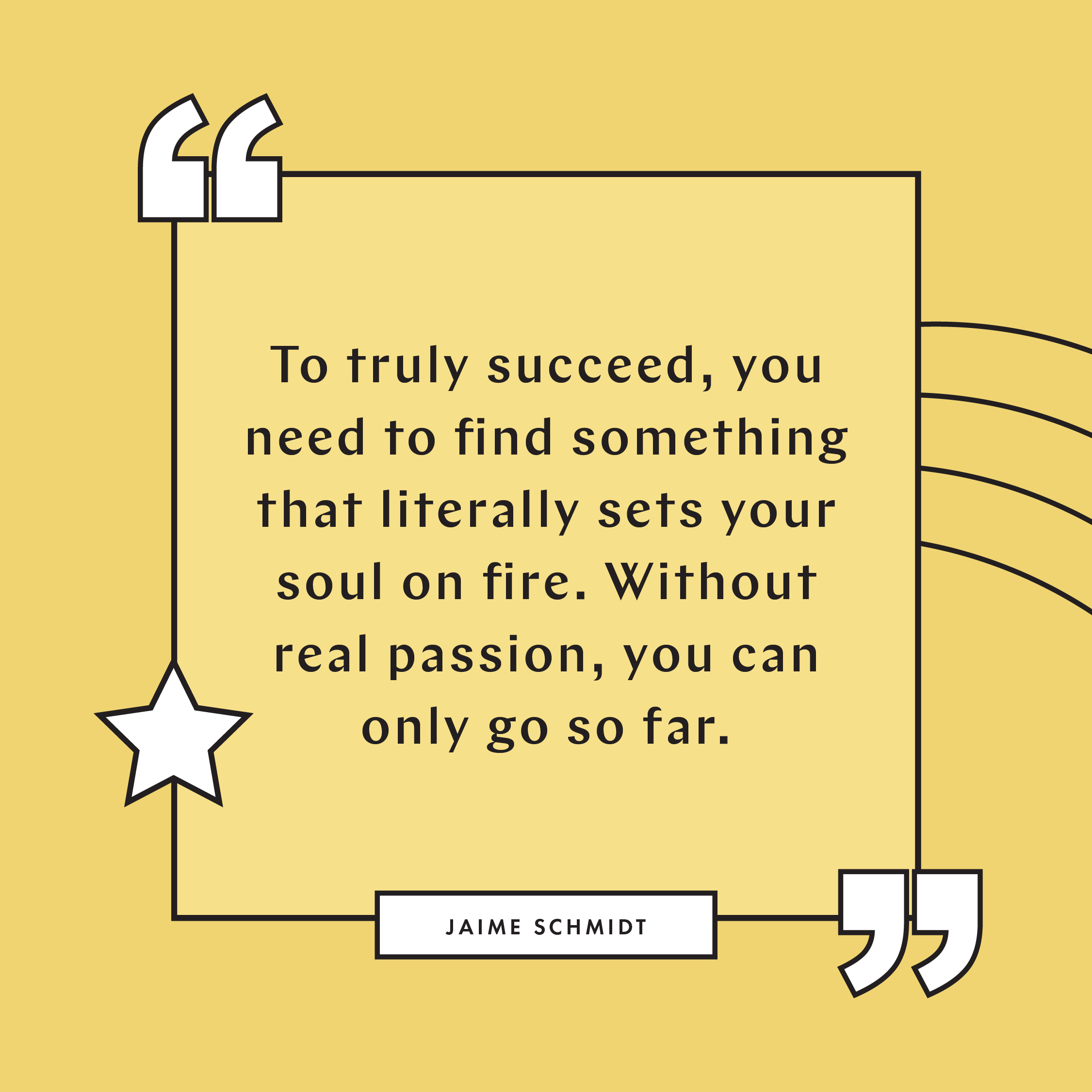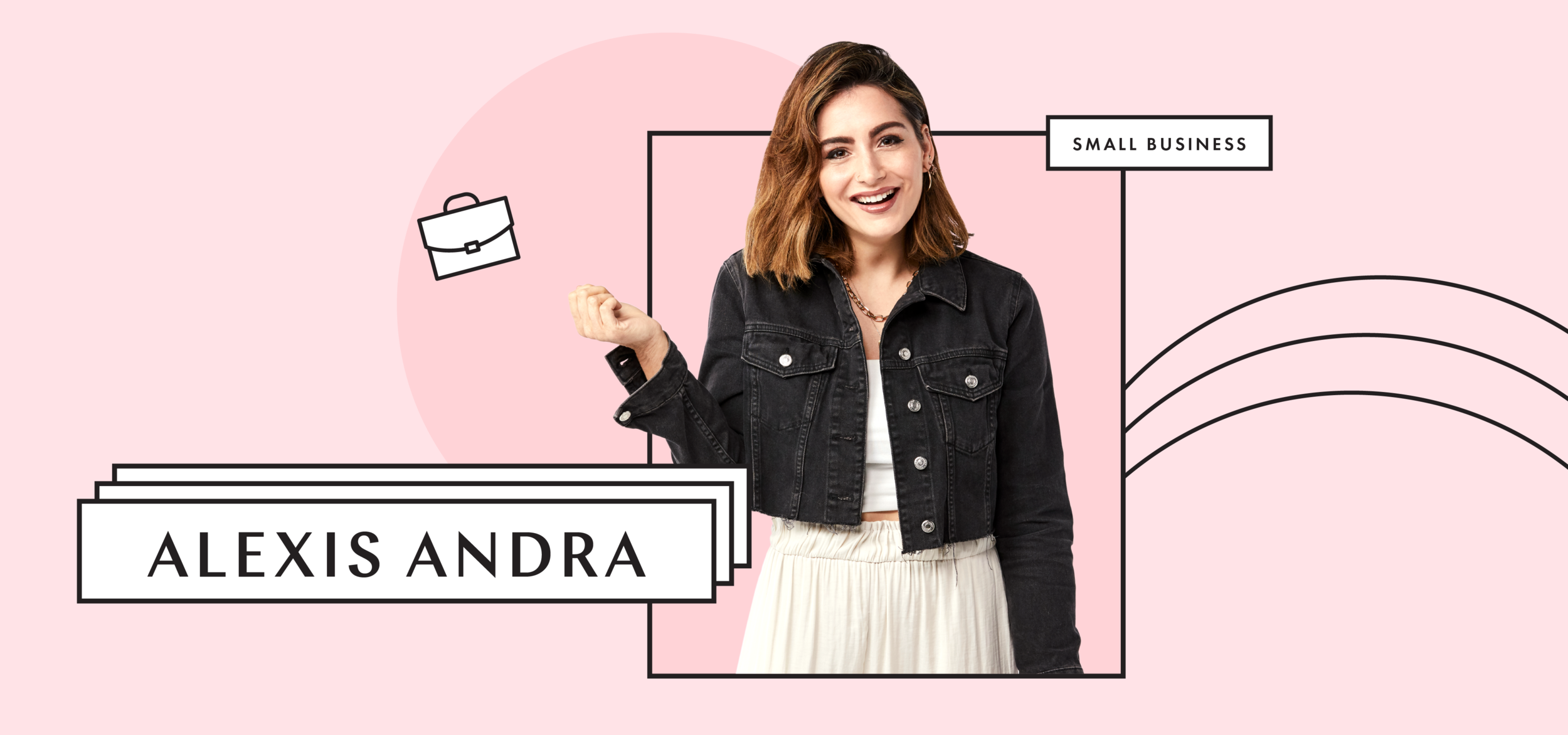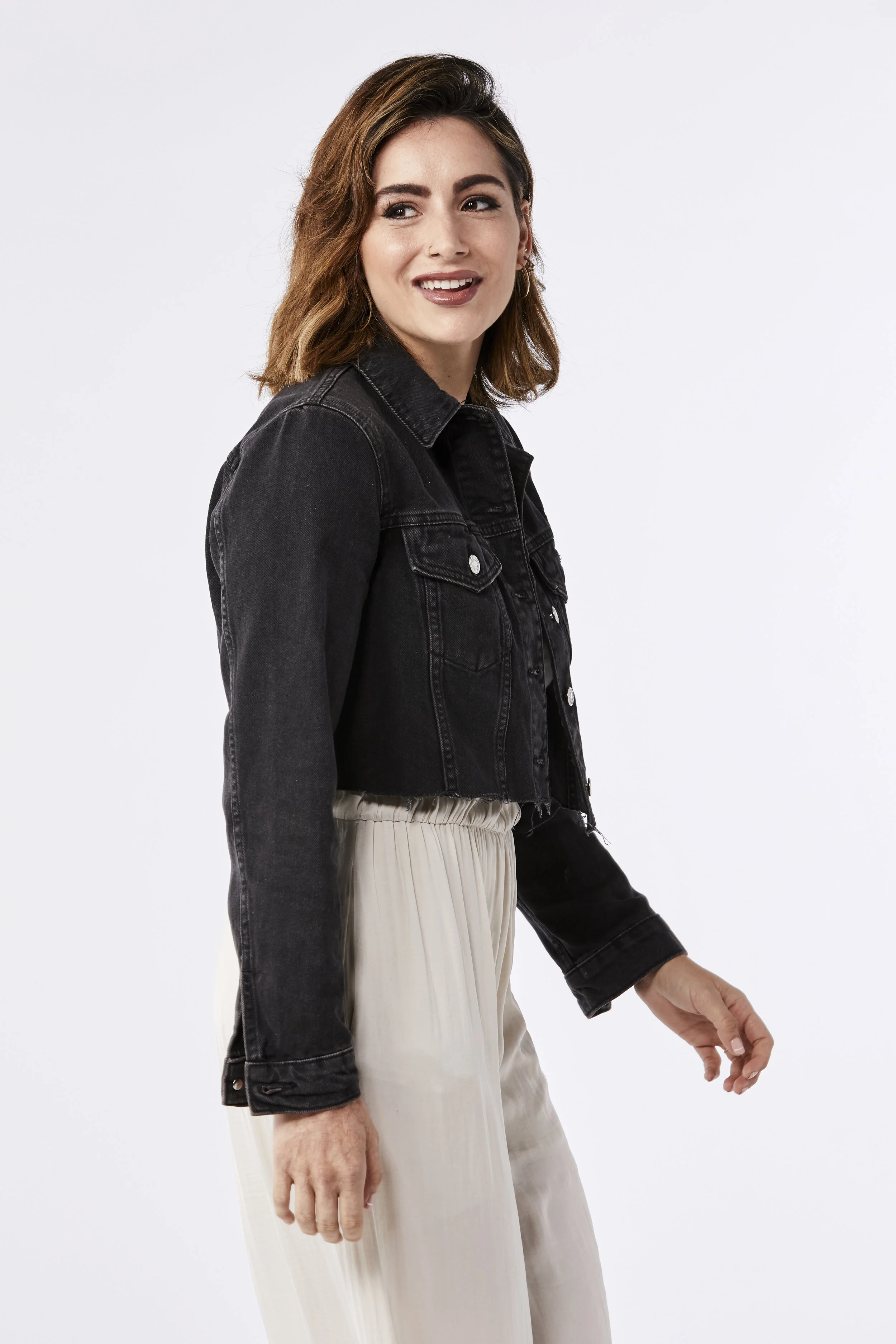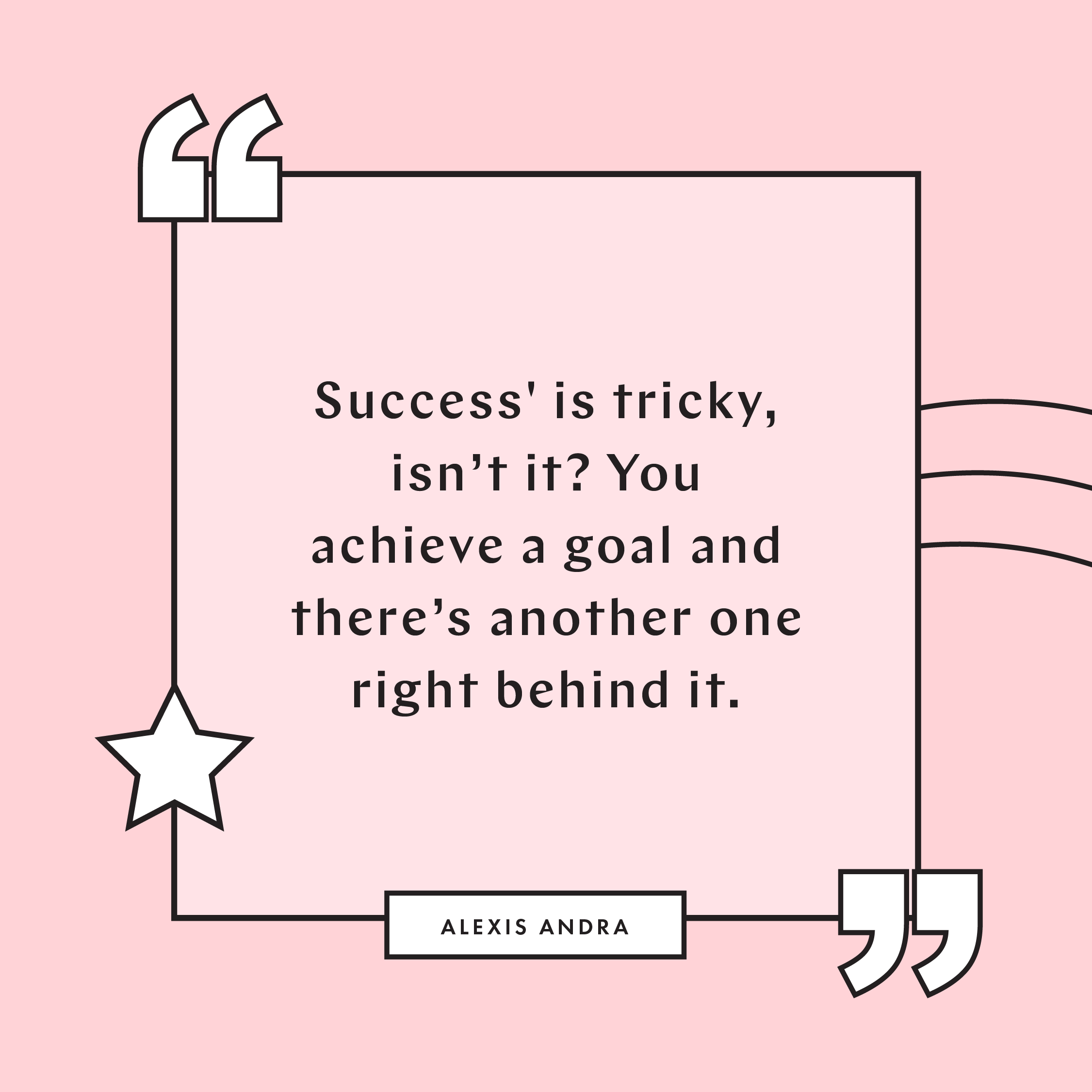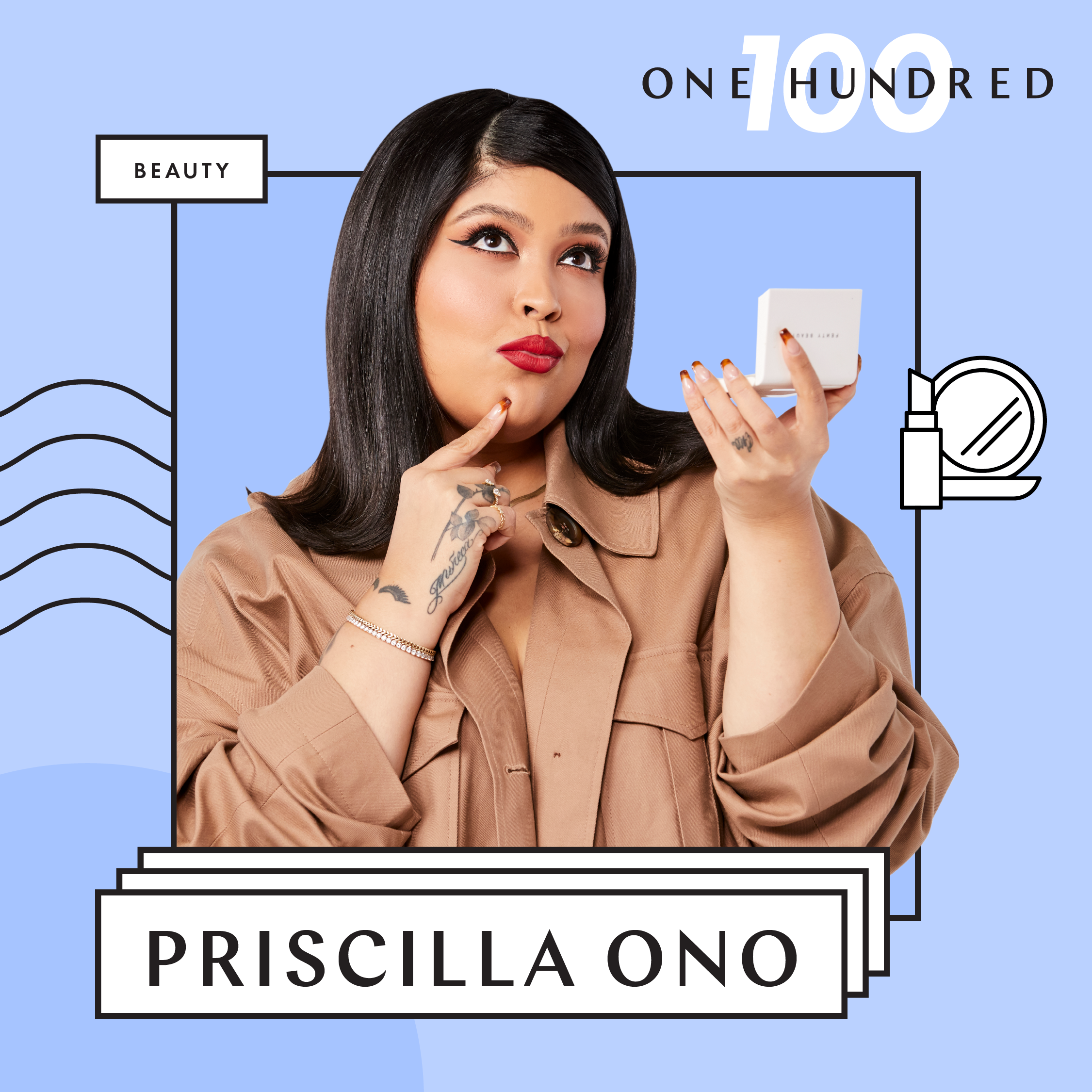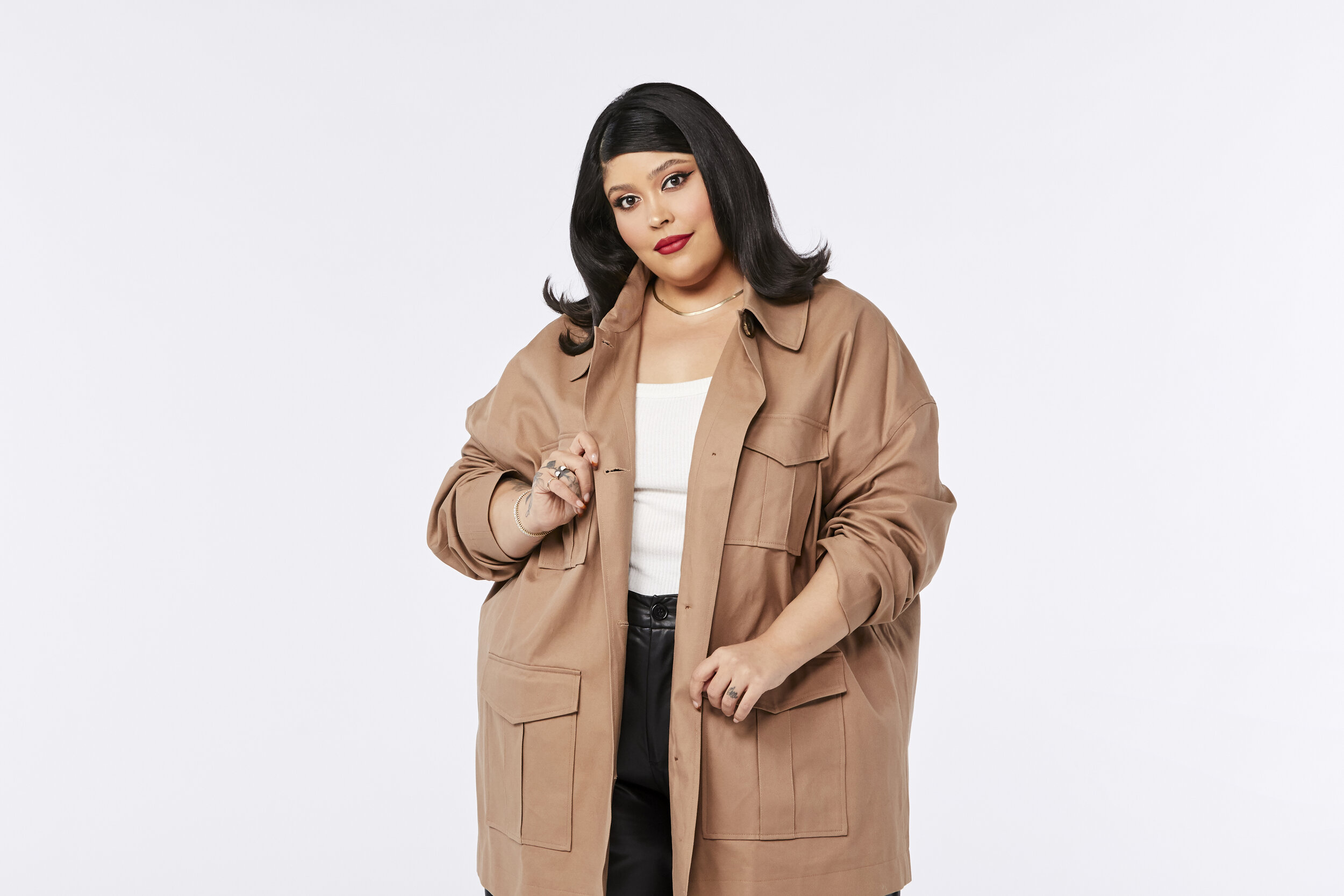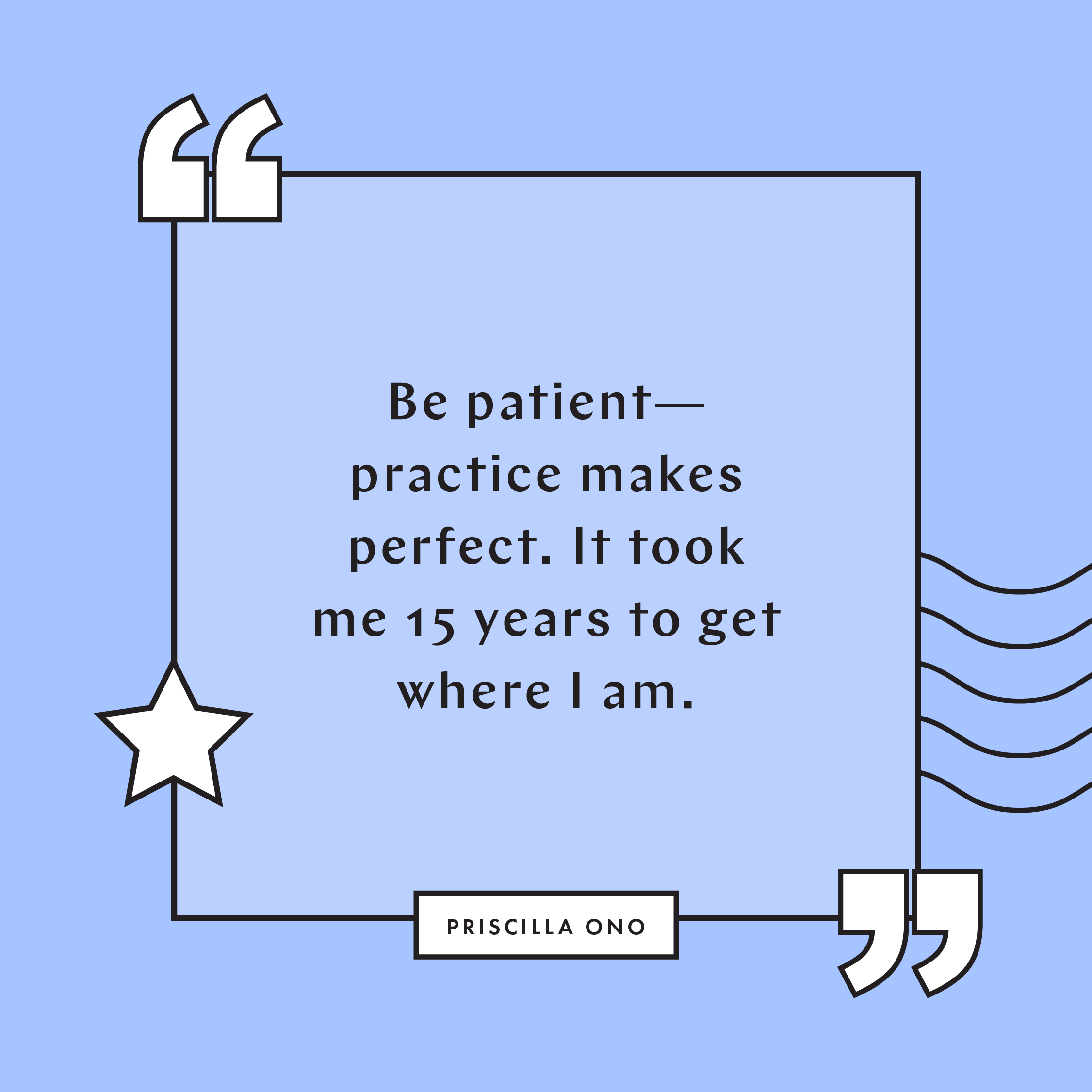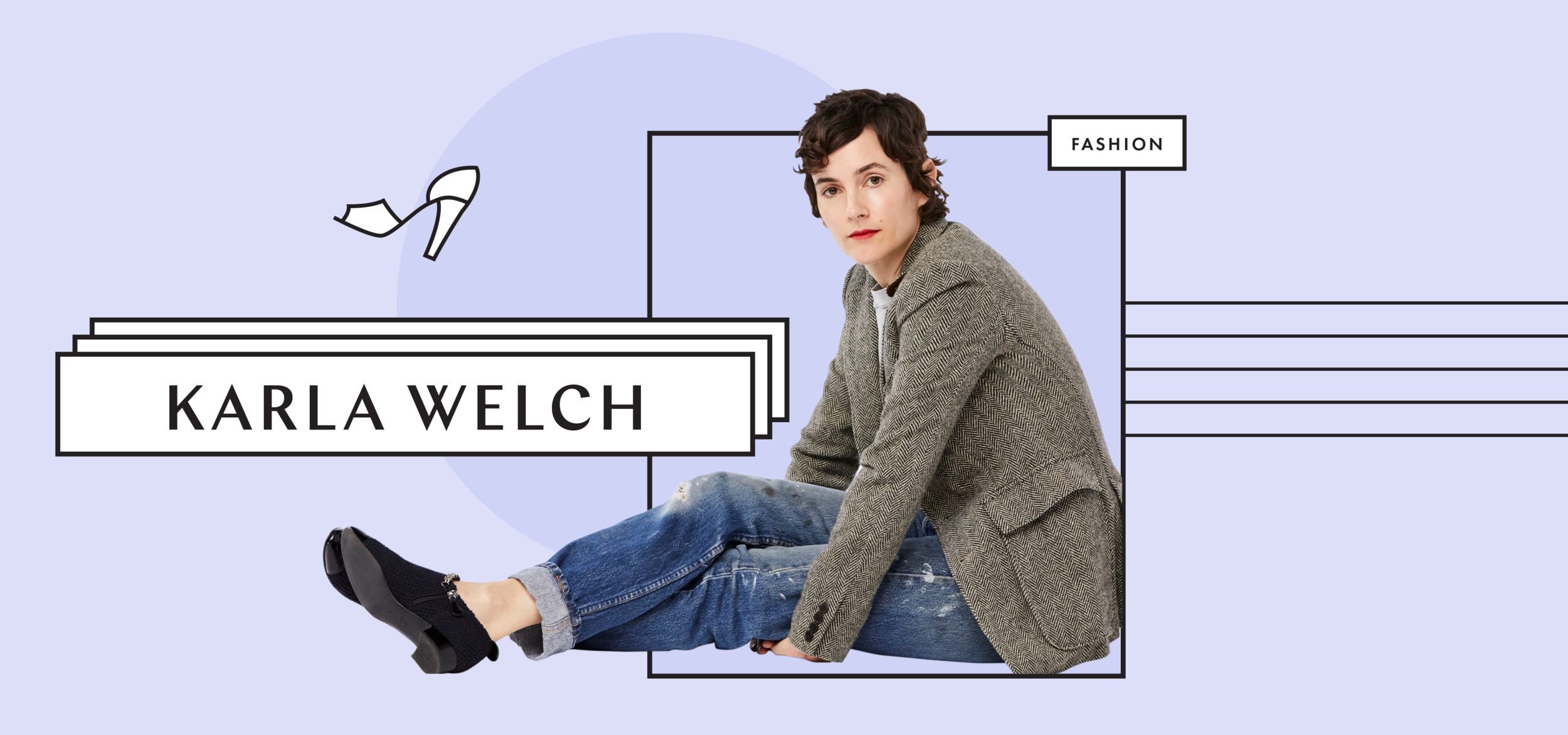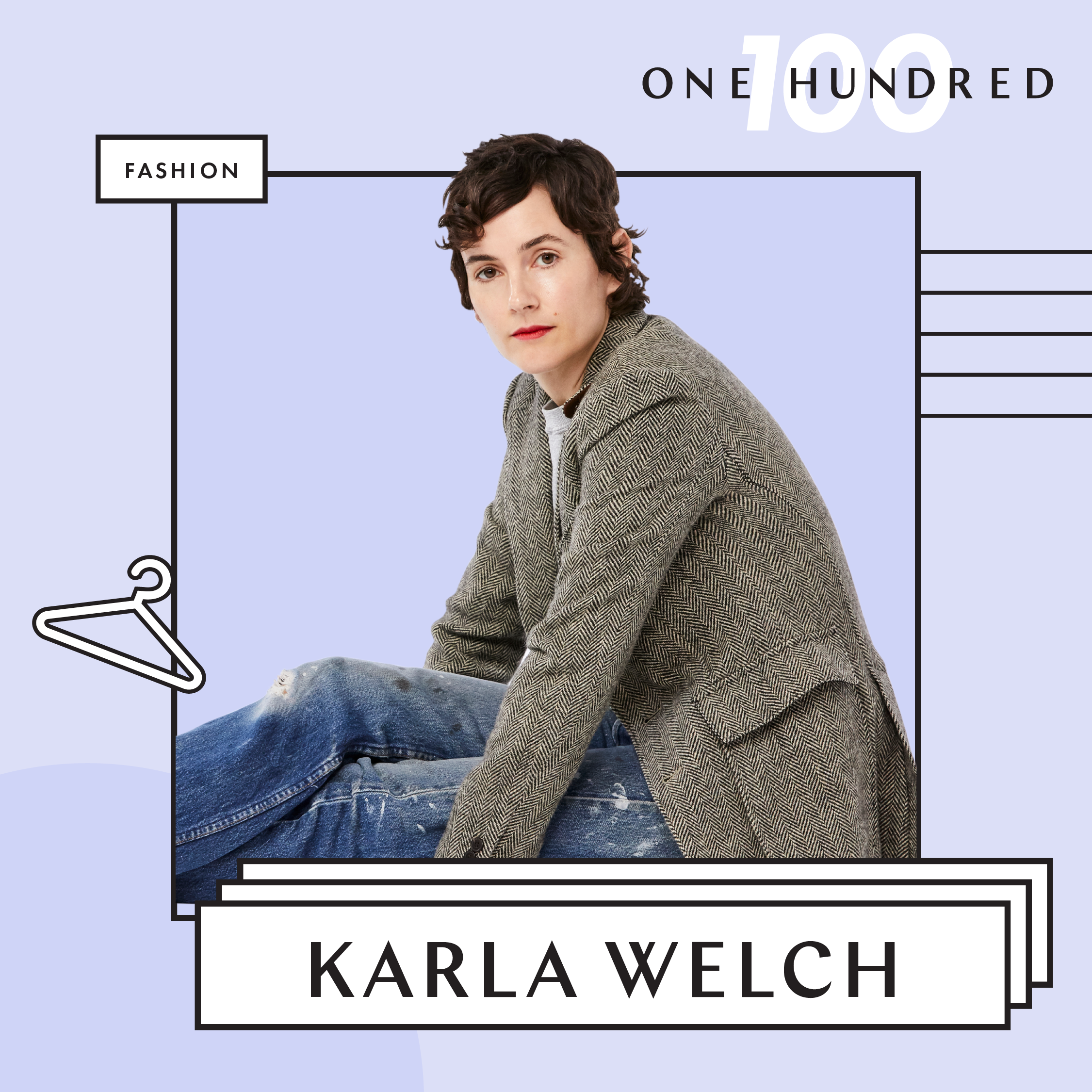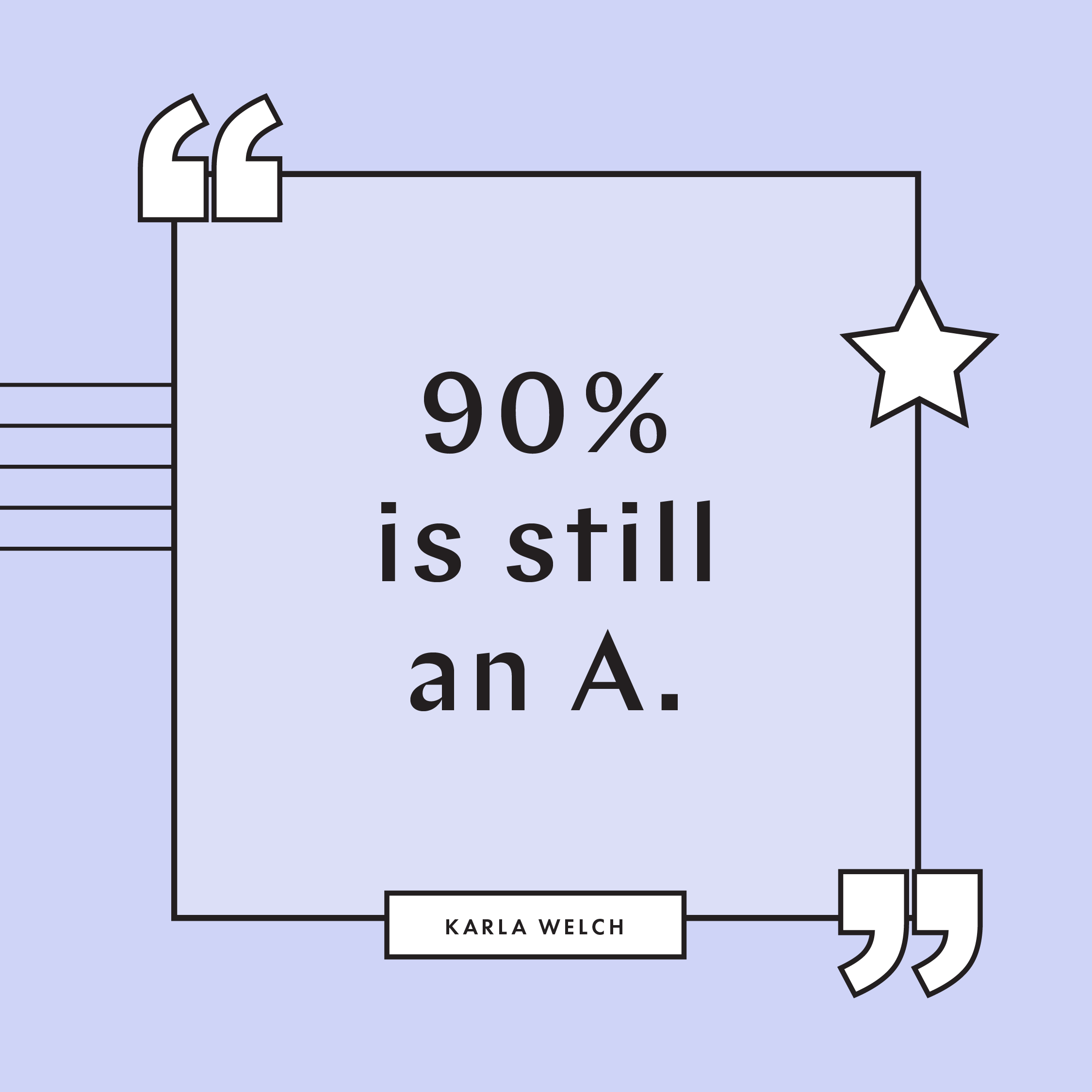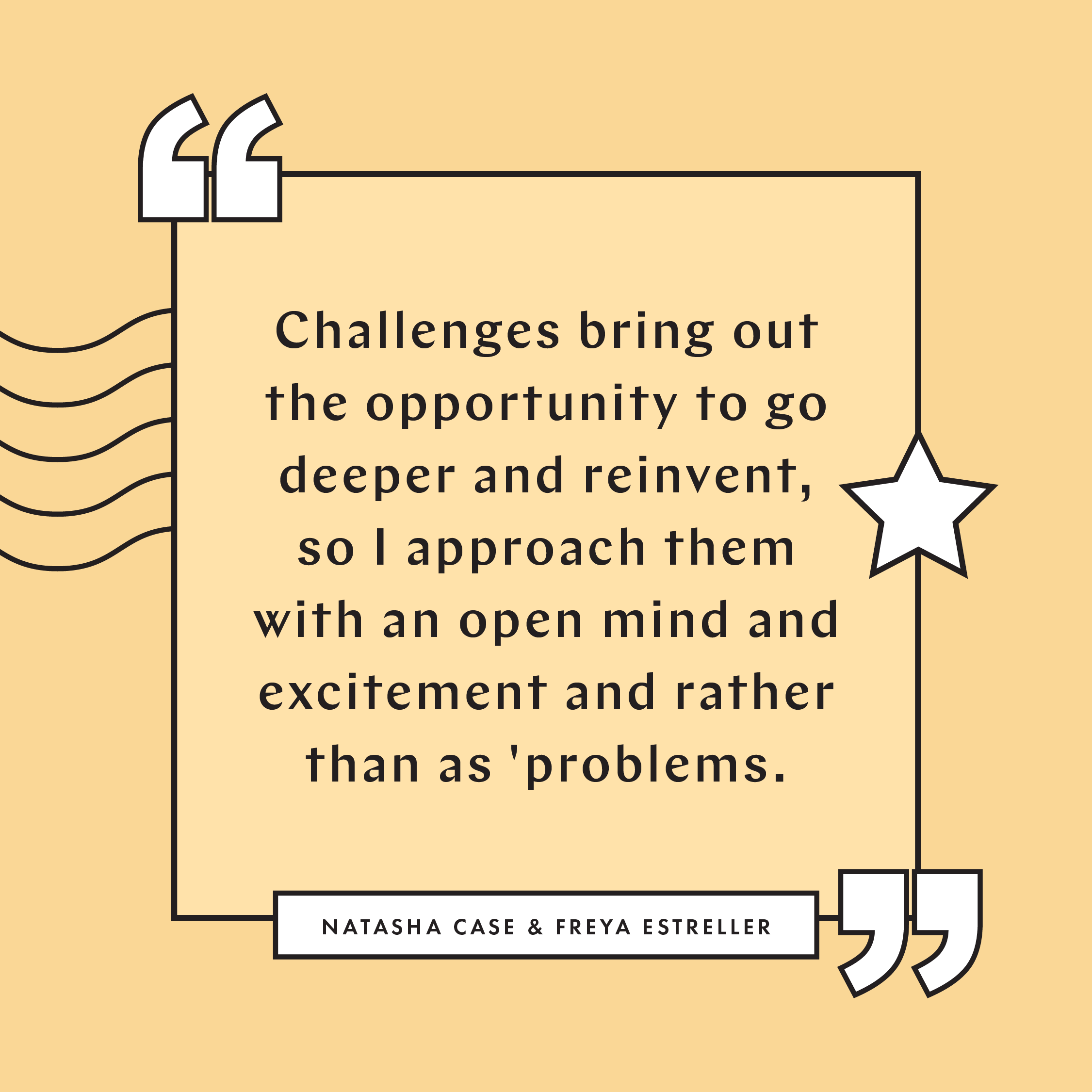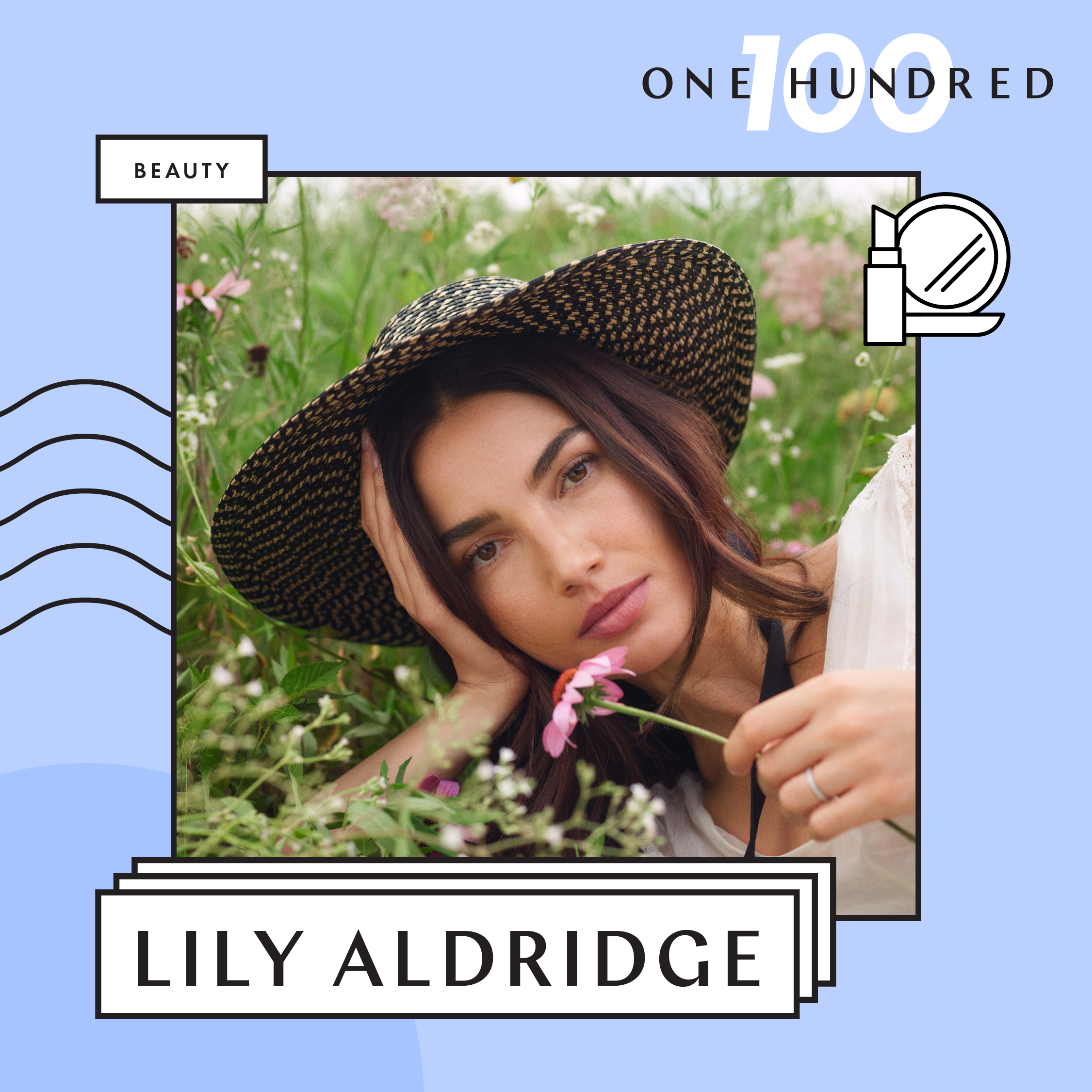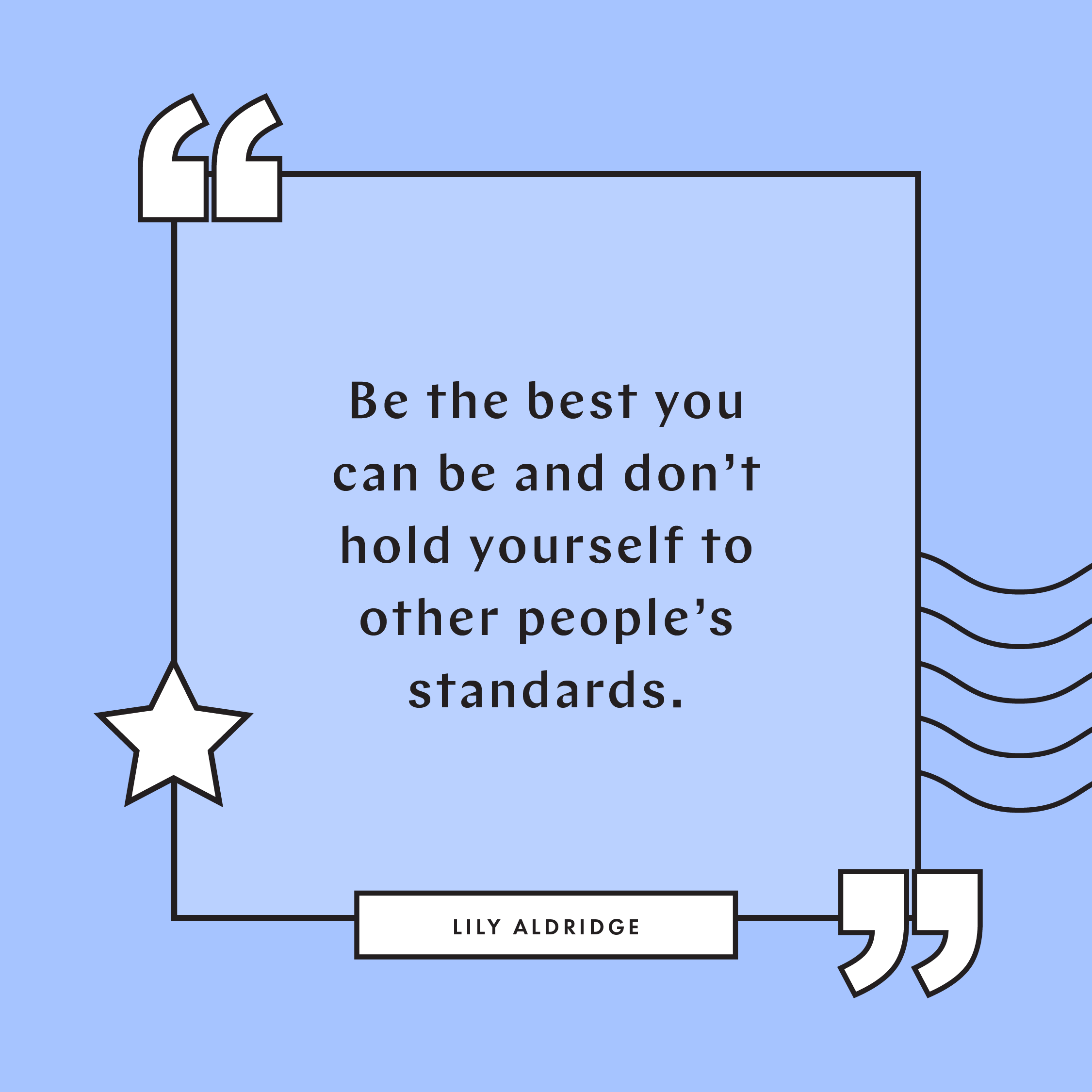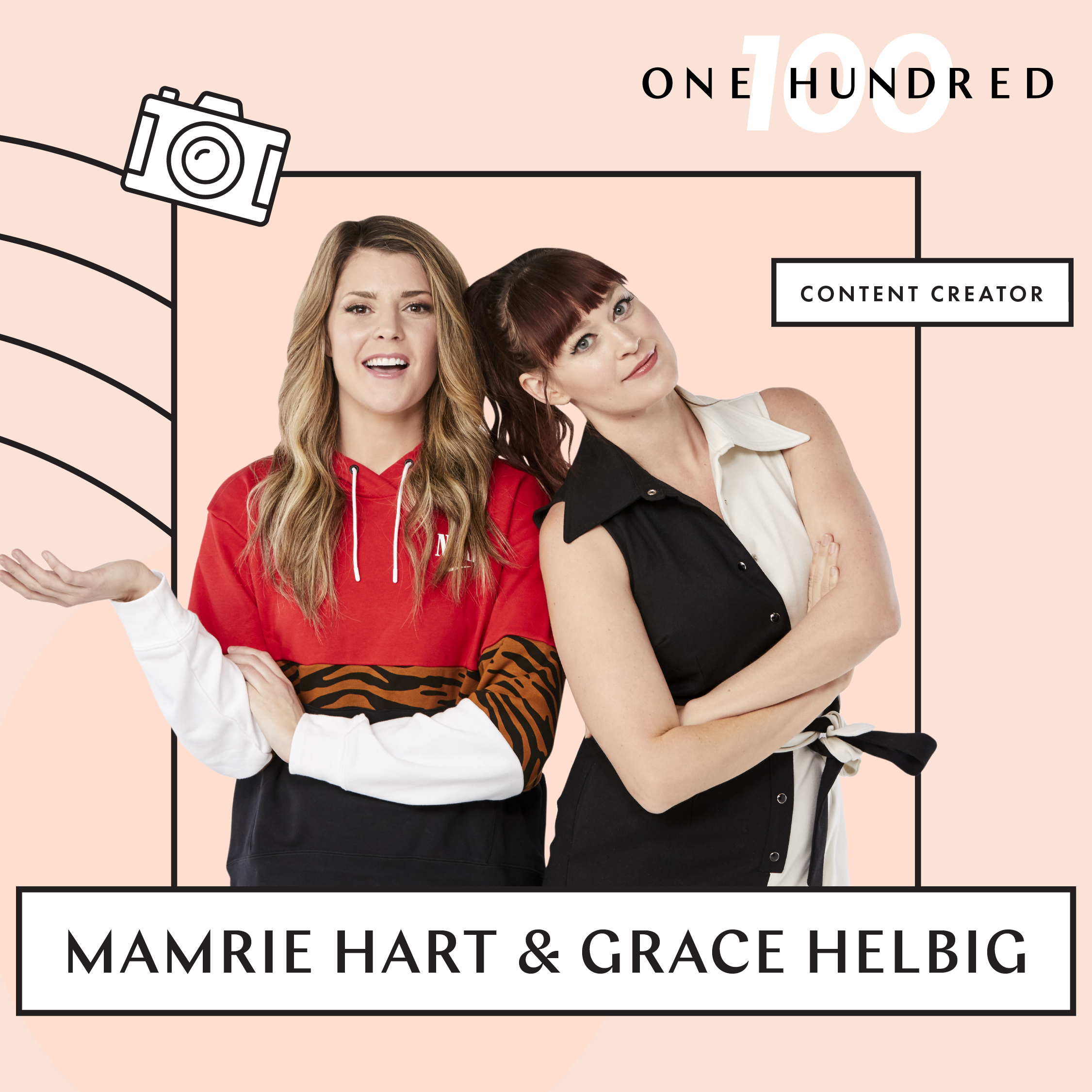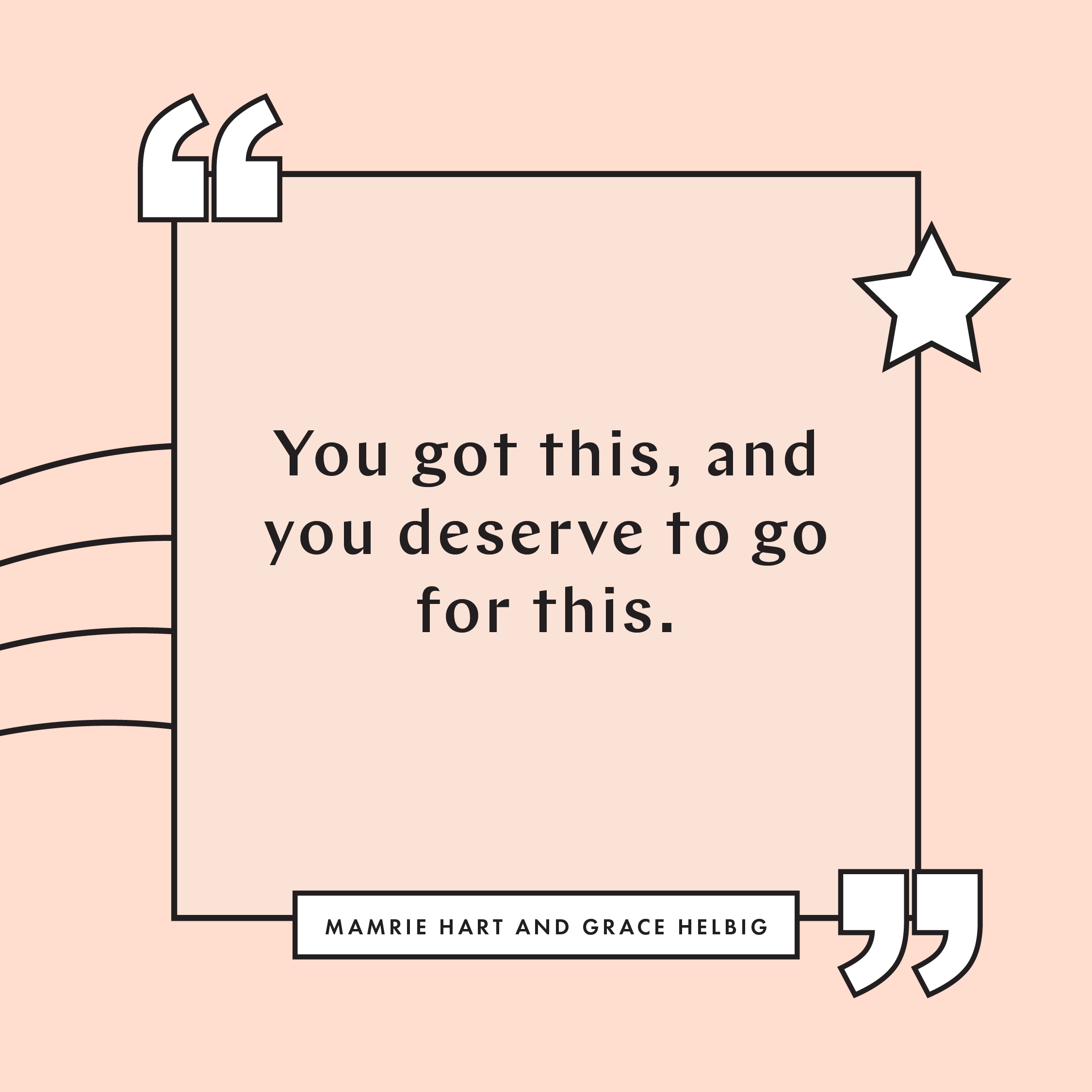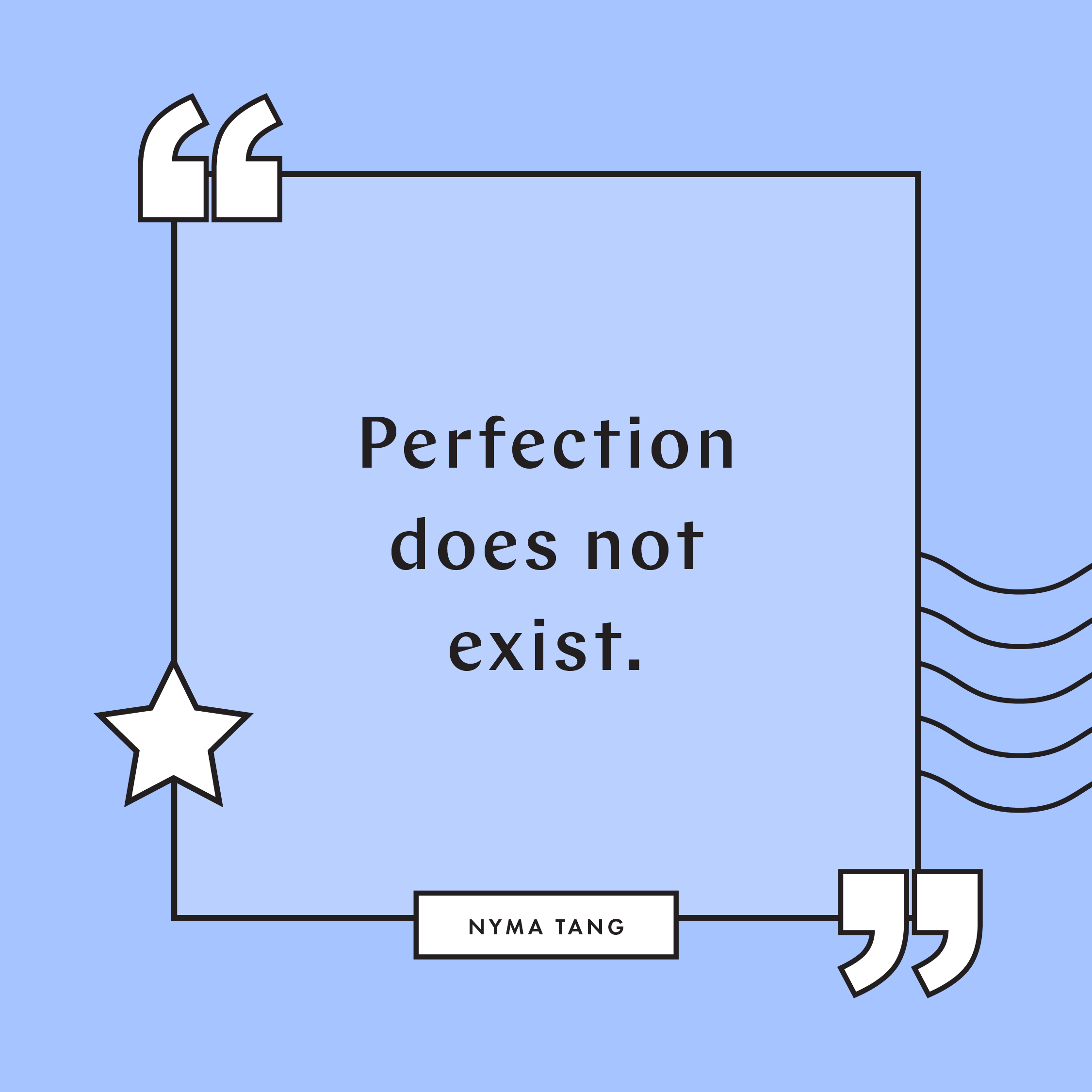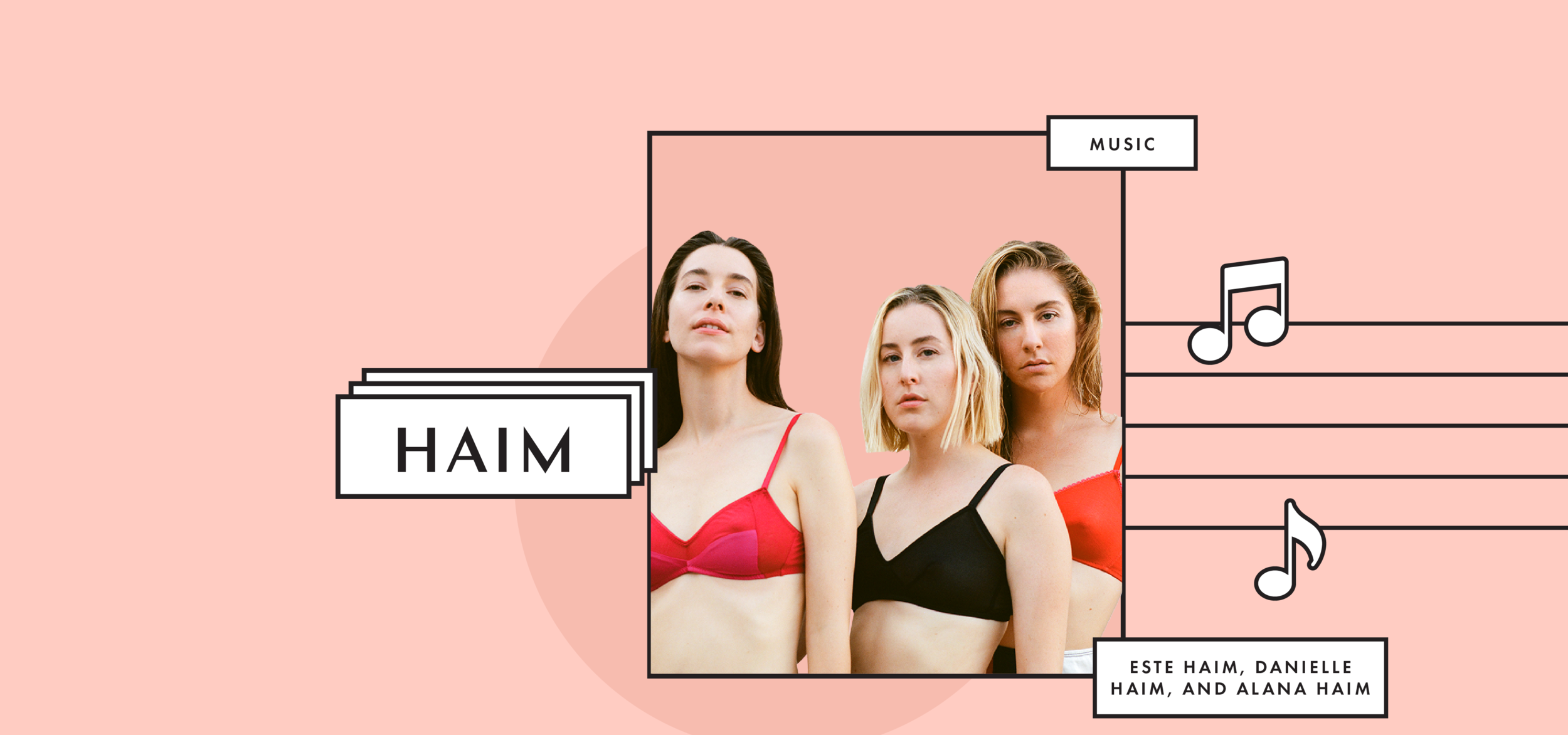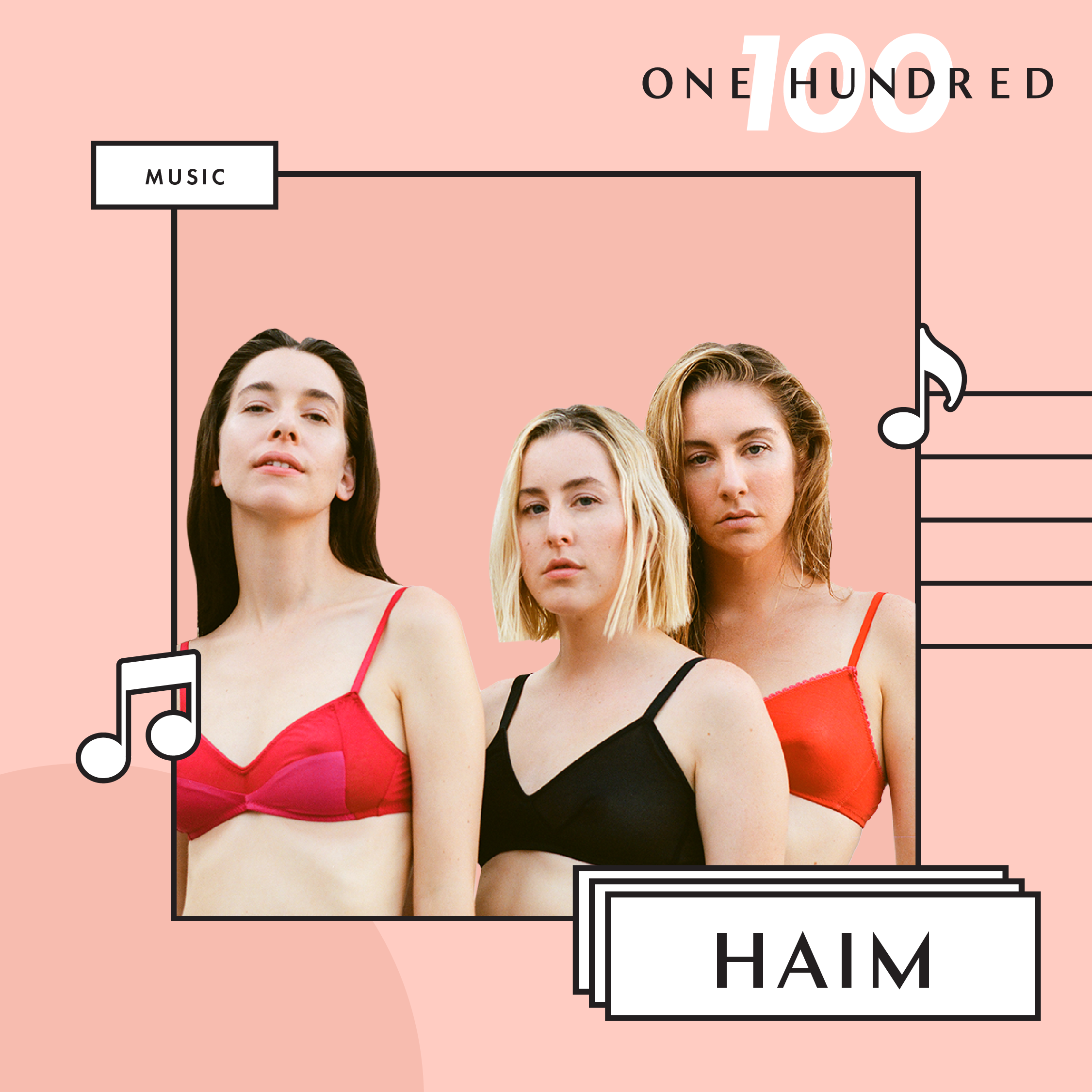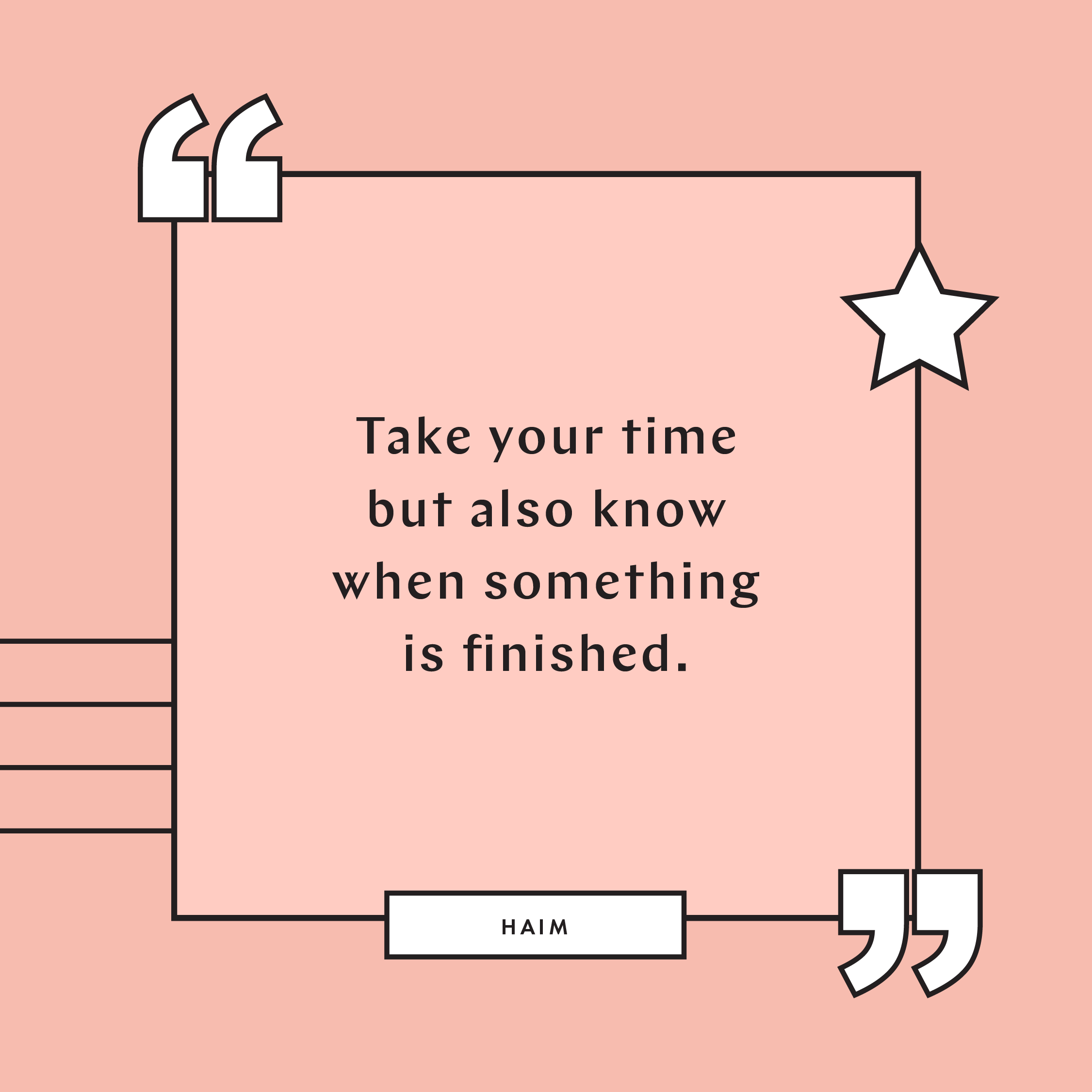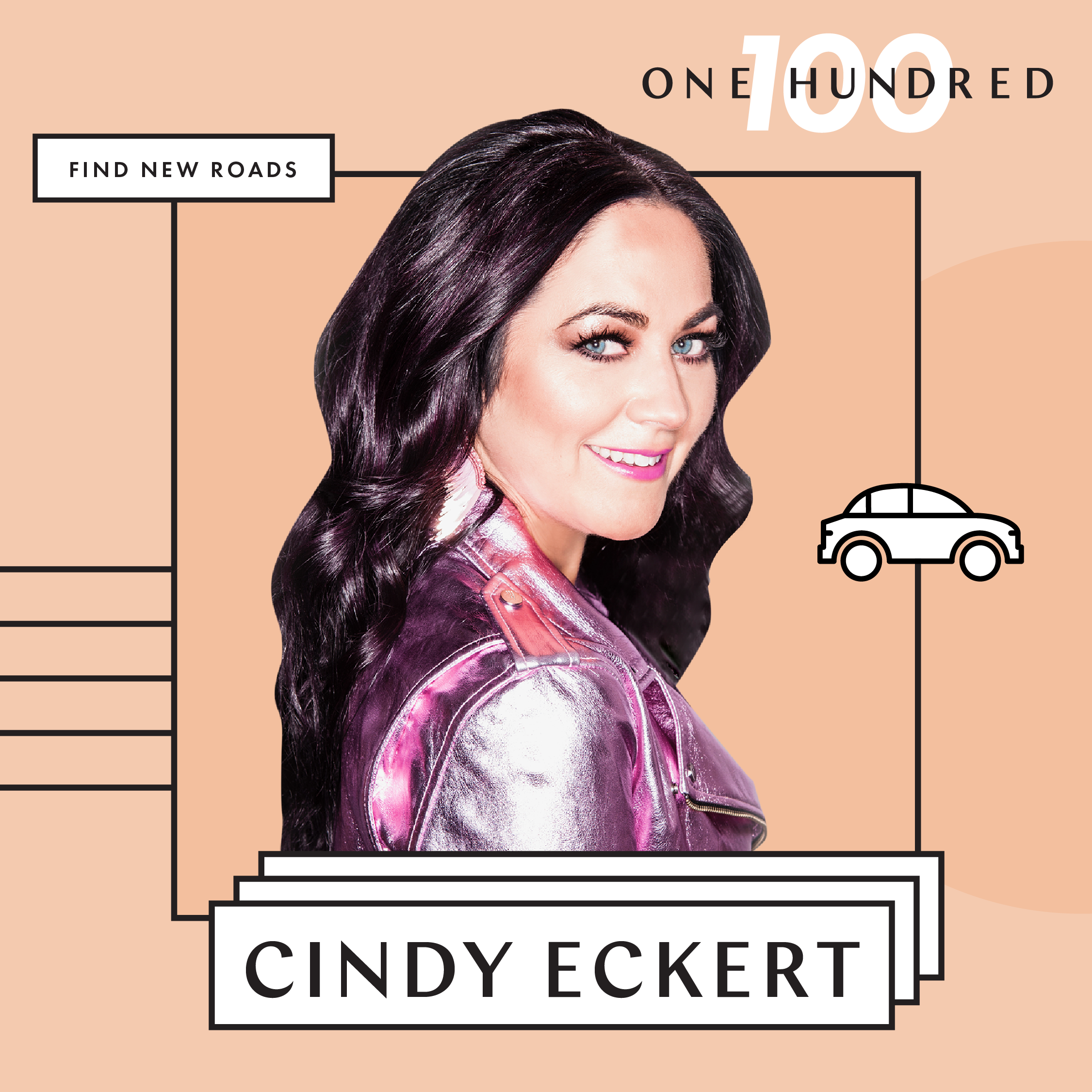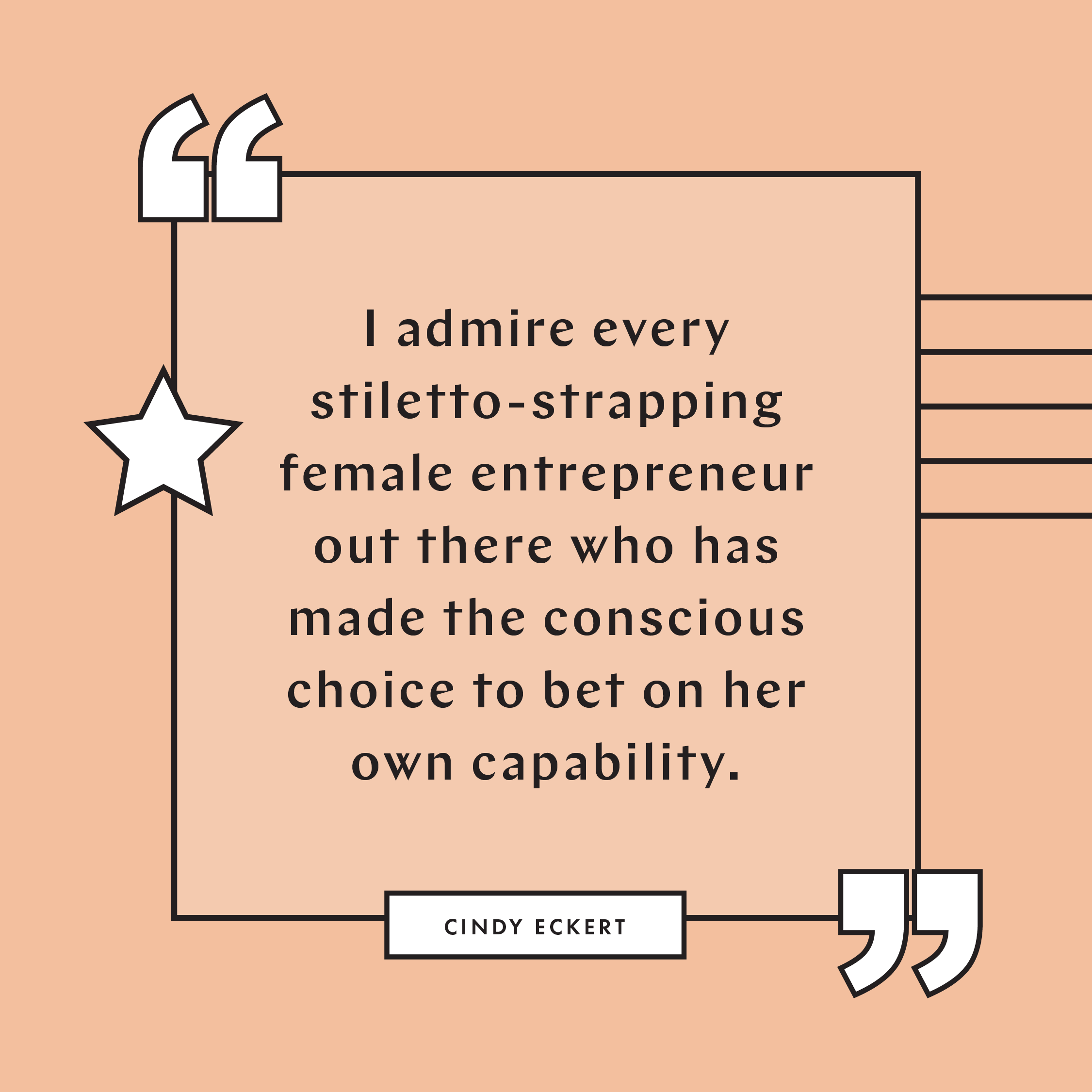Create & Cultivate 100: Entertainment: Priyanka Chopra Jonas
“Nothing comes easy. Yes, luck and destiny do play a part, but nothing works like hard work.”
When it comes to rewriting the rule book, Priyanka Chopra Jonas is the editor in chief.
The actor admits she took a “huge risk” to leave her thriving career behind in India to work in the U.S. and it’s safe to say the leap paid off. Today, the former pageant queen is one of the most successful women in Hollywood but she’s put in nearly two decades of work and hustle to get there. “If you don’t take chances if you don’t push yourself to do things that make you uncomfortable, you never evolve,” she tells Create & Cultivate.
For the next chapter of her rule book, Chopra Jonas has added humanitarian, producer, and a tech investor to her title. She launched her own production company Purple Pebble Pictures in 2015, became a Goodwill Ambassador for UNICEF, and an investor in dating app, Bumble. Let’s not forget that she has starred in more than 50 films and is slated for several major projects this year and next, including a starring role in Amazon's Citadel with Richard Madden.
Ahead, Chopra Jonas shares the story behind her bold move to the U.S. (and why it was the hardest professional decision she’s ever made), her secret to confidence, and how nothing works like hard work.
CREATE & CULTIVATE: So, we read that you originally wanted to be an engineer before your mom secretly entered you in the Miss India contest (which you won) and later the 2000 Miss World contest. How did that experience shape you? What did you learn? And how did that steer you towards your career path today?
PRIYANKA CHOPRA JONAS: It is essentially the foundation of what I would eventually become. I learned to get out of my comfort zone and try new things; that taking risks can yield big returns; that if you want something bad enough and if you work hard, you will succeed. Miss India and Miss World introduced me to the world of entertainment and also to my creative side, which I hadn’t tapped into at that time. It opened my mind to the immense possibilities that the world has on offer.
“If you don’t take chances, if you don’t push yourself to do things that make you uncomfortable, you never evolve.”
Can you recall the hardest professional decision you’ve ever had to make and how you got through it? What did you learn in the process? Why it’s important to make decisions that aren’t easy?
Every few years I’ve found I am faced with a hard decision that is imperative to make and critical to my career. It comes in waves. The big one I can remember is the decision to work in Hollywood, while still having a thriving and very relevant career in India. In hindsight, I am glad I took the leap and that it paid off, but at the time it was a huge risk. What I learned in the process is that if you don’t take chances, if you don’t push yourself to do things that make you uncomfortable, you never evolve—and for me, evolution is important in my personal and professional life… ultimately it’s what allows you to define your own road.
You have achieved so much success but that didn’t come without hustle and hard work. What advice would you give to young actors who are hoping to break into Hollywood but are feeling overwhelmed by the competition? What traits do you need to succeed today the way you have? Why?
Understand what makes you unique and special. Work on your strengths. It will give you the courage to go after your dreams and aspirations. In anything you choose to do, there will be many others who have the same idea—the competition so to speak—understand what makes you unique and special and embrace that.
I understood early that nothing comes easy. Yes, luck and destiny do play a part, but nothing works like hard work. Have a vision for yourself and work as hard as you can to make it happen. Oh, and remember, life is rarely ever a straight road—with the good, there will also be the bad. It is what you do after the good and what you do after failure, how you choose to get up, that defines your life.
When you hit a bump or hurdle in your career, how do you #FindNewRoads + switch gears to find success?
I always find that acknowledging the failure and coming to terms with it, helps you move forward—then it doesn’t come back to haunt you or cause self-doubt later. Also, I have always believed in exploring all aspects of my creative self, which is why I am always pushing myself to explore new areas and try my hand at it. I never say I can’t do something until I’ve tried it. In the world, we live in today, and the immense amount of opportunities out there, it’s important to remember that it’s not a single lane of traffic but an eight-lane highway to an endless world of opportunities.
You always seem so bold and self-assured. Where do you think this confidence stems from? What do you wish you could go back and tell yourself when you were first starting out? Why?
Confidence is self-taught. You’re not born with confidence. It is something you pick up along the way, and it is up to you how much you want to pick up. I am a firm believer that everything you go through in life leads you to the exact spot you need to be, as long as you are involved in shaping it rather than being a bystander and letting things happen. So, there is very little I want to change. I would probably just tell my younger self as I was starting out to breathe. Not every crisis is the end of the world, this too shall pass.
VIEW THE FULL CREATE & CULTIVATE 100 ENTERTAINMENT LIST HERE.
Create & Cultivate 100: Entertainment: Jameela Jamil
“My fight is to be taken seriously as something other than a pair of tits and legs.”
It’s no secret that we’re major Jameela Jamil stans here at Create & Cultivate.
The unapologetically outspoken actress has blessed us with her words of wisdom as a guest on the WorkParty podcast, as a keynote speaker at our Desert Pop Up in Palm Springs, and as a fireside chat panelist at our Aerie REALtreat in Los Angeles. So, naturally, we’re thrilled to announce that she’s one of our 4th-annual Create & Cultivate 100 honorees. And here’s why.
Though her career kicked off in entertainment—she was the first solo female host of the BBC Radio 1’s Official Chart Show before she landed a coveted role on the hit show “The Good Place,” despite having no acting experience—now, she is well known as a leader of the body neutrality movement and as the founder of I Weigh, an organization she launched in 2018 to encourage people to weigh themself by their positive attributes, as opposed to numbers on a scale (the hashtag has been used over 37,000 times on Instagram). Since then she has called out big brands and celebrities for false advertising and marketing that promotes unfounded diets, appetite suppressants, and misleading messages to women and girls.
Ahead, we chat with the role model about her career in Hollywood, including the moment she decided to become a body neutrality activist, and the barriers she’s still working to break down in the entertainment industry.
CREATE & CULTIVATE: You moved to Los Angeles with the goal of becoming a screenwriter, but you had no contacts—something a lot of entrepreneurs can relate to. You are now a successful actor, but what did it take to get to where you are today? Was Hollywood receptive or have you had to fight for your spot? Why?
JAMEELA JAMIL: Hollywood has been receptive to me, but that’s because I was championed by such legendary showrunner Mike Schur who takes a chance on unknowns and on women, in particular. I was very lucky. In general, my fight is to be taken seriously as something other than a pair of tits and legs. But I have come in at the most progressive time in Hollywood’s history, where I believe change is coming.
“My fight is to be taken seriously as something other than a pair of tits and legs.”
You're not content with just being another pretty face in Hollywood and you refuse to be quiet, using your profile to advocate for social justice. Can you recall a moment where you felt the call to arms and knew you needed to fight for equal rights and body neutrality?
I was 19 and watched a 12-year-old in a modeling agency made to cry about her weight. This reminded me of my time as a teen model, and how pushed I was towards starvation, that I decided to enter into activism to challenge body standards for women. I can’t believe 15 years later I’m still In this same fight. We aren’t moving fast enough.
Not only do you dispute the term “body positivity” but you also refuse to be airbrushed, which, in Hollywood, is a huge statement. When did you make that choice? Why?
I’ve been asking for years, but I had to become powerful to get my way. I suffer from body dysmorphia which makes Photoshop very problematic for me. I don’t do well with seeing physically perfect images of myself when I already struggle with the mirror. It’s not good for any of our brains to see that comparison. It diminishes self-confidence. It’s also so irresponsible as a celebrity to showcase unrealistic ideals. It’s a lie you are selling to impressionable women who are already under enough attack from society as it is. We have a duty to have more integrity.
When you hit a bump or hurdle in your career, how do you #FindNewRoads + switch gears to find success?
I’m afraid of failure. I think it’s noble to try when success isn’t guaranteed. So I just move on and try new things. I don’t think we know what we are capable of as women because of how long society has told us we are incapable of everything. So I treat it as getting to know myself, and it’s fun. Stressful at times, but fun.
You have become a role model to so many young women everywhere. What advice would you give a young woman hoping to follow in your footsteps?
Get therapy. Have a predominantly female team. Fight for other women to join you at your level. There is power in numbers, we are much stronger together. Ask for more. It’s available to you, but you will never find that out until you ask.
VIEW THE FULL CREATE & CULTIVATE 100 ENTERTAINMENT LIST HERE.
Create & Cultivate 100: Content Creator: Rocky Barnes
The OG influencer knows a thing or two about amassing a social following.
With over 1.8 million followers, Rocky Barnes knows a thing or two about Instagram. But, believe it or not, the model slash style icon entered the influencer space well before the visually-driven social media platform was a thing. She got her big break back in 2012 when she starred in Justin Beiber’s “Boyfriend” music video and then quickly started gracing the pages of Vogue and Cosmopolitan and becoming the face of brands such as Sam Edelman, Furla, and bare minerals.
But don’t call her an overnight success. Barnes has been hustling for years to get where she is today. As she told us at our Desert Pop Up event in Palm Springs last year, “An overnight success is 10 years in the making.” And she’s put in the work. She launched her eponymous blog, Rocky Barnes, over seven years ago (a.k.a. during the digital stone ages) and has slowly but surely amassing a loyal band of followers. Not only has she partnered with big-name brands like PAIGE, Moët Chandon, and AmEx, but she’s also stepped into the role of designer by launching an exclusive collection with Express last year. And she has plans to make more major moves in 2020—like giving birth, among other things.
Below, Barnes gives us the low-down on starting out when Instagram wasn't even around (in other words, when the influencer space was very different from what it is now), on staying true to herself in order to stand out amongst the competition in a saturated space, and on struggling to draw boundaries around what she does and doesn’t share on social media—especially now that she’s expecting.
CREATE & CULTIVATE: As a model, influencer, and style icon you are always pursuing interesting collaborations. How do you choose what companies to partner with? What makes a successful collaboration?
ROCKY BARNES: There are many different reasons I choose to collaborate with a brand. I, first and foremost, must believe in the brand and the product we are creating. Another important factor is finding a partner who allows you to have input and creative freedom. My most successful partnerships are the ones born from organic relationships where brands that I have been wearing for years approach me to collaborate.
What is your best social media advice? What can other content creators learn from your success?
I believe a huge part of my success has come from consistency and a strong sense of self. I really try to post based on what I find interesting and beautiful versus trying to get the most likes—not every post has to be about the numbers. It’s about showing people a glimpse of the world through your eyes. Something I am personally trying to improve on is being more vulnerable with my followers. I really appreciate it when people are able to share the good, the bad, and the ugly.
“To some people, I may look like an overnight success who just popped up out of nowhere, but in reality, I have been busting my ass for the last 10+ years.”
Did your follower count on social media increase gradually or was there an event that escalated your growth?
My growth has been slow and steady. I’ve been consistently posting on Instagram and blogging for about seven years!
When you hit a bump or hurdle in your career, how do you #FindNewRoads + switch gears to find success?
I always find I get the most attention and movement from personal projects. I am very adamant about always making time for passion projects and not letting sponsored jobs take up all my time. It’s important to stay inspired!
You started out when Instagram wasn't even around and the influencer space was very different from what it is now. How have you remained unique and true to your voice in what is now a saturated space? How do you continue to differentiate yourself and stand out among the competition?
An important thing I have learned over the years is when to say “no.” It can be hard at first, but having a long term goal in mind versus capitalizing on a short term goal is very important. Stay confident, and don’t be afraid to hold out for your dream clients!
How do you hope to empower and inspire women through fashion and your modeling career? What advice do you have for those looking to start out in the space today?
I hope that I can inspire other women and demonstrate that hard work really does pay off. To some people, I may look like an overnight success who just popped up out of nowhere, but in reality, I have been busting my ass for the last 10+ years. I worked four jobs out of college and never gave up! I am grateful for the connections I made in the modeling world, and it has been fun seeing my peers grow in the industry next to me! Fashion has been a passion of mine for as long as I can remember, and I feel grateful to be in an industry I love!
You share much of your life with your followers on Instagram. Most recently, you shared your pregnancy—congratulations! How do you draw boundaries around what you do and don't share? What advice can you share for others?
The beauty of Instagram is that you truly have control over everything! You can share as much or a little as you like. I always felt like a picture says a thousand words, but these days it’s hard not to feel like I should be sharing more. I struggle with finding a balance between sharing my life and living in the moment. I am still working that out myself.
What do you wish you had known when you were first starting out? Why? What about your job do you wish more people knew? What are the biggest misconceptions?
The biggest misconception is that our lives are a permanent vacation. Don’t get me wrong, we do have amazing experiences, but it isn’t always as glamorous as it seems. As is true with the modeling world. Dealing with the modeling world prepped me well for the influencer world. We work all the time, weekends aren’t a thing, and there is no such thing as sick days or paid vacation days. Working for yourself is stressful and scary, but when it hits, also the most rewarding.
Being an influencer can be a 24/7 job. What is your content planning process like? How far ahead do you schedule/prepare content? What are some best practices when it comes to creating and planning content?
For me, I like to shoot and post as much in real-time as possible. For sponsored jobs, you usually need to have content approved, so I shoot those ahead of time. Luckily, I work with my husband (he is my manager and photographer) so we have the ability to shoot almost every day. I try to have a rack of outfits always styled and ready to go to make shooting on the fly easier!
With success comes opportunity, but that also means you have your hands full. What keeps you inspired and motivated to keep going even on your most challenging days?
My husband, Matt, is always amazing on days when I struggle with motivation or when I’m feeling overwhelmed. He is so supportive and positive and helps me prioritize and focus when I can’t do it myself. I am also so grateful for the position I am in and always try and remind myself how far I have come!
What is the #1 book you always recommend? Why?
The Four Agreements by Don Miguel Ruiz. Learning to not take things personally in our industry has helped me more than anything.
Photographer: Jenna Peffley
VIEW THE FULL CREATE & CULTIVATE 100 CONTENT CREATOR LIST HERE.
Create & Cultivate 100: Fashion: Rachel Antonoff
“You can think and plan forever, but at some point, you just have to do.”
Rachel Antonoff is no stranger to taking major career risks.
In fact, the designer frequently makes headlines thanks to her politically charged designs. (ICYMI, she’s the mastermind behind that bestselling “I’m With Her” sweatshirt and that now-infamous uterus sweater Lena Dunham auctioned off at a Planned Parenthood fundraiser.) Needless to say, we can’t wait to see what she does in 2020.
Below, the accomplished designer opens up to Create & Cultivate about her career, including what she wishes more people knew about the fashion industry, how she keeps her cortisol levels in check, and why she's proud to be at the helm of a company that’s not afraid to take a strong political stance.
CREATE & CULTIVATE: Your designs are truly one-of-a-kind and have set your brand apart which is no mean feat in a saturated space. What inspires your creativity? What is your secret sauce? What do you think differentiates you from the rest/makes you stand out?
RACHEL ANTONOFF: Very kind of you to say. There are so many incredible brands out there, and in some ways, we are all looking at the same trends. Most of our prints are painted in-house which is really important to me. I take great pride in the fact that as a company, we are not neutral. We have a strong political stance that has at times, cost us business, but it's the only way I can do this and still sleep at night.
You are such a style icon and role model in the fashion space but what do you wish people knew about the industry? Why?
Thank you! I truly wish people knew that the fashion industry is stacked with interesting, funny, cool, hard-working people who like fart jokes as much as the rest of us.
“I take great pride in the fact that as a company, we are not neutral. We have a strong political stance that has at times, cost us business, but it’s the only way I can do this and still sleep at night.”
When you hit a bump or hurdle in your career, how do you #FindNewRoads + switch gears to find success?
Well, first I try to look at it from a bird's eye view. I find that zooming out if you will, is helpful in determining how weighty the issue really is. Is this something I really need to be making myself crazy over? Will this or that actually impact the future of the company? If the answer is “yes,” I do my best to remove myself from the equation and ask, What is best for the company?
What is the best advice you’ve been given? Or a favorite piece of #realtalk?
You can think and plan forever, but at some point, you have to just do.
You emphasize the ethical policies behind your brand. Do you feel as though others in the fashion industry generally hold themselves to the same ethical standards when curating their brands? What are your hopes for the industry moving forward?
I really can't speak for the industry at large. I think it's fantastic that so many brands are taking the route of transparency with their ethical practices. It's so easy to throw the terminology around without actually backing it up. So I really appreciate brands like Mara Hoffman who are explaining exactly how they are going about it, who their factories are, etc. At the end of the day, it needs to come from the top.
The fashion industry moves so fast that it can be stressful and take its toll on young designers. How do you keep your cortisol levels in check? What does your self-care look like?
I recharge through time alone. I really need a solid few hours where no one is talking to me and I'm not beholden to anyone or anything. My dream weekend is zero plans and just being at home with my dog. It sounds sort of sad but it's how I keep the balance.
“I get genuinely excited about margins. I’ve come to really embrace the creativity of solving the Rubik’s cube that is business. It’s a different kind of magic.”
How has the way you view fashion changed since you first entered the industry?
It has changed a lot. I see fashion much more pragmatically than I did before. When I started, the business aspect was not my focus. I was 90% creative, 10% business. Now, I get genuinely excited about margins. I've come to really embrace the creativity of solving the Rubik's cube that is business. It's a different kind of magic.
What is one book you always recommend? Why?
I will always recommend Mary Karr's Cherry. It's a perfect book.
VIEW THE FULL CREATE & CULTIVATE 100 FASHION LIST HERE.
Create & Cultivate 100: Food: Wendy Lopez & Jessica Jones
“We've had so many people of color—particularly black women—tell us that they thought nutrition and healthy eating was for white people, but once they discovered our platform, they realized it was for them too.“
Dietitians Wendy Lopez and Jessica Jones are on a mission to make health and wellness more inclusive, diverse, and accessible.
And it’s a good thing too, because the stats on food insecurity—aka not having enough access to nutritious food to live an active, healthy lifestyle—are staggering. According to Feeding America, more than 40 million people (and 12.5 million children) lived in food insecure houses in 2017. And, unfortunately, increasing access isn’t the only hurdle to ending food insecurity. The cost of groceries and purchasing patterns also play major roles too, according to The New Food Economy.
To help fill the void for healthy recipes made with ingredients that are both accessible and affordable, Lopez and Jones founded Food Heaven in 2011. Fast-forward to 2020, and what started out as a humble YouTube channel is now a full-fledged brand complete with a podcast, multiple cookbooks (28-Day Plant-Powered Health Reboot and A Diabetes Guide to Enjoying Foods of the World), merchandise, and a devoted social following. Proof that all their hard work is truly resonating with people and paying it forward.
Below, we chat with Lopez and Jones about what it’s like being at the helm of an influential mega-brand with a BFF slash business partner, why they encourage people to eat for nutrition and enjoyment (sans guilt), and how they built a successful business without losing their friendship in the process.
CREATE & CULTIVATE: Food Heaven has grown from a blog into a mega-brand—was this always part of the vision? How do you stay on top of all of those projects?
WENDY LOPEZ & JESSICA JONES: Not at all. We started as a creative outlet with no business aspirations. After about three years of making food and nutrition content with no real plan, we decided we wanted to try selling a product. The first items we ever sold were black shirts that read "kale & spinach & collards & chard" in white text. I remember being so excited when we sold our first tee. We decided to use all of the revenue we earned to create a more professional website and invest back in the business. After we sold out of shirts, we started creating different products and experiences (digital downloads, books, retreats) and then began working as dietitian-spokespeople for a bunch of different food and nutrition brands.
Your mission is to increase access to health and wellness and to allow black people to see their bodies and their needs reflected in conversations about wellness. What are some of the ways in which you are connecting and following through with this MO? What impact have you seen this have on the community already? How has it resonated with audiences?
We've had so many people of color—particularly black women—tell us that they thought nutrition and healthy eating was for white people, but once they discovered our platform, they realized it was for them too. We think it's really important to not make wellness a one dimensional, one size fits all conversation. Our motto is that we all have the power to define what wellness looks like for us, and for most people, it's going to be a lot different than what we see on Instagram. What's more, we don't all have to be pursuing weight loss or be a size 2 to be healthy. Research shows that our behaviors play a bigger role than our weight when it comes to health. Our audience members often feel both seen, accepted and relieved that we talk about health and wellness in a complex and comprehensive way that doesn't involve restriction or guilt.
You were best friends before you launched Food Heaven. What is it like to work with your friend? How do you build a business with a friend and not lose your friendship in the process? What are some boundaries you've set?
Having a business partner is legit like being in a relationship. Add being BFFs to the equation and, to quote “Basketball Wives,” it can go "real right or real wrong." For us, we lucked out when it came to working with a friend. We both have pretty chill personalities so over the last several years there haven't been any major conflicts of blow-ups. That's not to say that there haven’t been disagreements, hurt feelings or differences of opinion. At this point, we do a pretty good job of telling the other when one person is upset or unhappy with something. I think we've also gotten good at reading each other and knowing when we have reached our threshold or are starting to get annoyed (ha!). The good part about having a business partner is there is always someone to help with the load. Especially if one of us is going through a hard time - i.e. a breakup or loss. Having said that, there isn't always a clear distinction between a friend relationship vs business relationship. They both overlap all of the time. We try to maintain our friendship outside of the business by talking daily and going on fun trips.
When you hit a bump or hurdle in your career, how do you #FindNewRoads + switch gears to find success?
We are the queens of pivoting. If an idea or aspect of our business is not working, we have absolutely no issue slashing it and moving on to something else. We have to make sure that the work that we are doing is enjoyable, helpful and profitable. One thing that helps us evaluate this is by having quarterly meetings where we discuss "what's working, what's kinda working, and what's not working". Taking the time to look at the big picture is crucial for ensuring longevity and success.
“We’ve had so many people of color—particularly black women—tell us that they thought nutrition and healthy eating was for white people, but once they discovered our platform, they realized it was for them too.”
Today's diet culture is constantly skewing people's relationship with food—how do you cut through the noise and encourage people to enjoy their food and eat for nutrition without the guilt?
We are big advocates of helping people tune out the noise and tune in to their bodies. For the most part, our bodies do an excellent job of letting us know what we need without us having to micromanage our food intake. We love to help people bring satisfaction and joy back into the eating experience. Our podcast is our favorite platform teaching people concrete tools for becoming more connected with themselves. If someone wants to get started with tuning out diet culture, one place to start is unfollowing any social media accounts that make you feel bad about yourself or provide a one-dimensional portrayal of health and wellness that isn't realistic for you.
You have seen incredible success so far—what advice do you have for other entrepreneurs at the beginning of their journey? How can they achieve the same success you've experienced?
As entrepreneurs, I think it's easy to fall into the comparison trap because there are so many examples of success on display. I have found it useful to disconnect a bit from what everyone else is doing. It's important to create a path to success that reflects your own passions and goals. Taking on this approach has allowed for my own creativity to flourish. I also think that as entrepreneurs, we strive for perfection when starting out because so much is on the line. In my experience, the perfectionist mentality has been very paralyzing because it limits the amount of growth you can have with your business. Once I embraced progress over perfection, I adapted much better to the ever-evolving nature of our business and as a result, we've been able to take our business to the next level.
With success comes opportunity but that also means you have your hands full—what keeps you inspired and motivated to keep going even on your most challenging days?
Our community keeps us motivated and inspired. They're constantly sending us words of affirmation and gratitude for the work we're doing, and that really helps us continue creating and grinding. We want all people to feel seen and represented in wellness, and our platform has been able to provide a space where all bodies are celebrated.
The wellness industry has seen a massive boom in recent years. How are able to stay unique in such a saturated industry? How do you cut through the noise and ensure your voices are heard and you access the audience you're targeting?
We're registered dietitians, and so all of the information we provide is evidenced-based. Unfortunately, the wellness industry has become saturated with people giving out recommendations that are not based on any science or research. Oftentimes these recommendations are based on personal experience and don't take into account an individual's health history, socio-economic status, culture, and personal preferences. We take on an individualized approach to health. Everyone's wellness journey is different, and that should be celebrated. Instead of trying to look like someone else or live their lifestyle, we should support people in creating a lifestyle that works for them.
“Having a business partner is legit like being in a relationship. Add being BFFs to the equation and, to quote ‘Basketball Wives,’ it can go ‘real right or real wrong.”
What is your best nutrition advice for those of us who want to eat better and take care of ourselves? How can we be healthier on a busy schedule?
Same advice for entrepreneurs applies here! Progress over perfection. Identify 2-3 things you want to work on, and create practical steps that you can do consistently over time to help get you there. Perhaps you add 2 cups of vegetables to your daily intake, get 8 hours of sleep, drink at least 5 cups of water a day, or move your body in the morning. These things may not sound like much, but it's really the small habits that add up over time. Doing a complete overhaul with your meals or fitness routine may not be realistic for you long term. This doesn't mean that you should ditch it all completely. Focus on what you're able to do at this very moment.
What's a mistake you made and what did you learn from it? How did you turn it into an opportunity?
There have been so many mistakes. I think one of the biggest ones was thinking that I could do it all myself because I was afraid of delegating tasks. I quickly learned that this was a fast path to burnout. I've been much better now at releasing control, and trusting that other people can handle things within our business. They may even be able to do it way better than I can! Since taking on this approach, I feel much more at ease and have been able to direct my energy to growing the business.
What is the #1 book you always recommend? Why?
Health at Every Size by Linda Bacon is a great starting guide to understanding our approach to food, nutrition, and wellness! Linda dives deep into the research surrounding weight science and addresses the history behind some of the prevalent wellness trends we see now.
VIEW THE FULL CREATE & CULTIVATE 100 FOOD LIST HERE.
Create & Cultivate 100: Food: Aishwarya S. Iyer
“I’ve learned to really lean into my discomfort. There will always be unanswered questions and many, many problems that need to be solved.”
It’s been hailed as the most Instagrammable olive oil on the market but Brightland is so much more than just pretty packaging—it looks as good as it tastes. While producing top-quality olive oil was a priority for Iyer, so was the design. The white powder-coated bottles (designed by the Charleston-based graphic design firm Stitch Design) are essentially a free form of marketing with people choosing to share them on social media and displaying them on their open shelves at home. They’re also UV protected to ensure the oil stays fresh.
Good branding aside, however, they’re also filled with small-batch, hand-crafted extra virgin olive oil by California farmers on a single-estate farm. Now, that’s smart. But here’s the twist, Iyer’s background isn’t in the food industry. Her early years were spent at tech startups in New York. It wasn’t until she started researching olive oil companies in the U.S. (after a bout of stomach issues with the current brands) that she realized the industry was ripe for disruption, so she filled the gap.
Ahead, Iyer shares how she moved past the fear to start her own business, her strategies for shutting out the “inner critic,” and the secret to staying inspired and motivated on her most challenging days.
CREATE & CULTIVATE: You worked in public affairs at a finance startup called SecondMarket before working at ff Venture Capital. How did you make the pivot from the corporate world into entrepreneurship? How did you move past the fear to take the leap and start your own business? What was it like making the transition from tech to food?
AISHWARYA S. IYER: I’ve always broken barriers and was never afraid of life transitions. I went to college in Texas before transferring to NYU just because I wanted to be bold and experience the change of pace. While at NYU, I studied at the Gallatin School of Individualized Study, where you create your major from scratch. You are empowered to shape your own time at school as you see fit. When I began my career, I took with me this ethos of being bold and when I decided to launch Brightland, it gave me that same feeling of breaking through—there are not many women, let alone South Asian Americans, who are in the olive oil world, and I knew taking the risk and pursuing an entrepreneurial path in the food world was my purpose.
What drew you to olive oil? And why did you want to start your own olive oil company?
When my partner and I started cooking together years ago, we started getting a little nauseous after eating our home-cooked meals. After cutting out almost everything else to try and solve the problem, we were left with one constant—our olive oil. After discovering that most of the olive oil that Americans consume is rotten, rancid, and adulterated, I knew I needed to do something about it. Olive oil has been a foundation of wellness and nourishment for thousands of years. After moving to California a few years ago, it was time to start Brightland and champion American-made, beautiful, and elevated extra virgin olive oil.
“Shutting off my ‘inner critic’ has been an enormous challenge for me during every step of my career, and one that I still have to tackle every day.”
What were some of the early challenges you faced? What surprised you the most about being an entrepreneur that you didn't expect?
Life moves much faster in 2019 than it ever has and our attention span is much shorter than ever before. The week before launch, we found out the labels we were planning to use were actually defective, and we ended up on a wild goose chase to sort it out at the last minute. We ended up with an even better solution but sometimes it feels like we have to race before rest.
What's the most important thing you've learned in making a big change in your career/life?
I’ve learned to really lean into my discomfort. There will always be unanswered questions and many, many problems that need to be solved (plus, so many more that pop up every day).
When you hit a bump or hurdle in your career, how do you #FindNewRoads + switch gears to find success?
Shutting off my "inner critic" has been an enormous challenge for me during every step of my career, and one that I still have to tackle every day. We all have an inner critic based on our past experiences and feedback that affects the way we view ourselves, make decisions, and sometimes sabotages our natural power. Over the past few years, I have done quite a bit of mental, emotional, and spiritual work in order to create space from my inner critic, helping me to unleash my own powerful qualities.
How did you maintain the confidence to successfully transition from the world of tech to the world of food?
Honestly, just putting my head down and doing the hard work. It has also helped me to apply lessons from my years at early-stage startups—be nimble, be adaptable to change, be resilient—and apply those lessons to building my company.
What are some mistakes you made along the way that ended up helping your success?
I would have never guessed 10 years ago that I would be where I am today. What has made me more flexible and, ultimately, better at my job, is admitting when I don’t have all the answers, having confidence in my path even though it’s trajectory has been anything but straight-and-narrow, and not attempting to predict the future. One step at a time is always the best way.
What advice do you have for women who haven’t found their path/passion yet? What steps can they take to get there?
Remember that all you need to do is take one step forward at a time—that will get you through any day.
The food industry is vast and incredibly saturated? How do you remain unique and find a white space? What is the secret to standing out?
The key to standing out is staying authentic to yourself. I broke into the crowded food space because I know that consumers deserve high-quality, honest, traceable olive oil made in the U.S. We all deserve to know where our food is coming from and who is making it from start to finish.
“I’ve learned to really lean into my discomfort. There will always be unanswered questions and many, many problems that need to be solved.”
With success comes opportunity but that also means you have your hands full. What keeps you inspired and motivated to keep going even on your most challenging days?
I really try to focus on living a life of joy which for me means always living with gratitude, being comfortable with discomfort, and finding charm in the tiniest of things. Remembering mortality helps me too—our time here on Earth is short, let’s make the most of it.
What is the #1 book you always recommend? Why?
Embracing Your Inner Critic by Hal and Sidra Stone. It changed my life by helping me to overcome my own inner critic.
Photographer: Jenna Peffley
Hair: Styled by OGXpert & Celebrity Hairstylist Jillian Halouska
VIEW THE FULL CREATE & CULTIVATE 100 FOOD LIST HERE.
Create & Cultivate 100: Content Creator: Jacey Duprie
“You truly need to eat, live, breathe, and fight for your company.”
When Jacey Duprie started her blog, Damsel in Dior, in 2011, people told her that she was “too late” and that “the blog bubble was about to burst.” Needless to say, they were wrong. Today, the humble blog she started simply as a creative outlet while she was working at E! Entertainment is a veritable empire. The digital darling has amassed an impressive following, collaborated with major brands by the likes of La Mer, Tory Burch, Nordstrom, and, fittingly, Dior, and even flexed her interior design muscles. And she’s still only just getting started.
Last year, the L.A.-based fashion blogger made her first foray into brick-and-mortar retail by bringing Damsel in Dior to life with a pop-up store called By Damsel where Angelenos could shop female-produced wares personally curated by Duprie herself. And when she’s not running her wildly successful business, collaborating with brands, or consulting with clients, she’s busy raising her daughter, June. Oh, and did we mention she’s the creative director at 1212, an organic cotton kids clothing company? Like we said, she’s only just getting started—and we can’t wait to see what she does next.
Ahead, we ask the blogger all about how she manages to keep her content fresh after nine years of being in the spotlight, the characteristics that have made her successful in a wildly competitive industry, and the biggest misconceptions about her job.
CREATE & CULTIVATE: You've been running your business Damsel in Dior for over nine years now. How do you manage to keep your content fresh? How has your approach to content changed since you started?
JACEY DUPRIE: When I started, I only did collages and shopping inspiration lists. Now my content consists of almost all original content that we shoot and produce in-house. Over the years, my audience wanted more personal topics shared, so a lot of my content is a look into my life.
My approach to content shifts regularly. There will be a year where I'm posting everything in "real-time," and then a year where we bulk shoot content in a more editorial structure. It truly depends on the climate of the industry and what people are gravitating toward. It's wonderful that one month I can be sharing Paris fashion week and the next I can be sharing family-friendly content of my daughter.
My goal is to not stray too far down an inspirational road or a relatable road. I like to dance between both sides which helps me keep things feeling fresh and different.
When you hit a bump or hurdle in your career, how do you #FindNewRoads + switch gears to find success?
I try to think of doing something outside of the box that excites me. For example, this past year I felt a little burned out by my website so I decided to turn the website into an actual store in the fall. If I hit a road bump, I either take a day off to recharge or I'll go to the beach, go for a run... try to find anything that will take my mind off of work, and then, usually, a new idea will present itself. I am also a very firm believer in cleaning my office. If I have a clean office, new ideas will fill the space.
“It doesn’t matter how many followers you have, so long as you have “real” followers who you can engage with.”
There is so much competition out there now. What makes you and your business stand out? How do you find/create a unique point of view? What characteristics make you successful in your industry?
When I started my blog, people told me I was "too late." They said "the blogging bubble is going to burst!" That was over eight years ago. There's competition in every industry and that is a great thing. I think that what makes my business stand out is that I have always, and will always be, truthful, honest, and as relatable as I can be. Even if I'm going to the Chanel show at Paris fashion week (not relatable), I'm going to be geeking out about it (relatable).
I think my success can be attributed to my ADD. I hyper-focus on tasks and topics until I've exhausted every single possibility. If I get something in my head, like giving away $80,000 worth of products for a holiday giveaway series, I am going to find a way to make that happen—and most of the time, I do!
You have built an impressive social media presence. How do you grow a loyal following on Instagram? What's the secret to growing a community that is engaged and resonates with your brand? What are your top three tips for growing a following and building a brand on social media? In a pay-to-play world, how do you grow your business organically on social media?
Rule number one: Do not buy followers or likes. You can grow a loyal community by engaging with all of your followers. When I only had 10 followers, I wrote to each and every one of them every day. These are not only your "followers" but they are your clients and your community. It doesn't matter how many followers you have, so long as you have "real" followers who you can engage with. Don't get hung up on finding the "right followers," because they will find you.
Tips: Consistency is absolutely necessary. How often you post, what types of content you are posting, and the voice you are posting within. People want to know what they can expect from your channel. Also, pay attention to the people that are following you, not the ones who are not. Who else do they follow on social media? What types of photos are they sharing? Sometimes I'll stay up until 2 am going to random accounts that follow me just so I can better understand who these people are.
Don't get too worried about the brand you are building because sometimes your community will provide a lot of the answers for you. Ask your community questions and try to use them to better understand what they want from your account. These are actual people—not just numbers!
You are bringing Damsel in Dior to life by launching a pop-up store in L..A. called By Damsel. Why was an IRL experience important to you and the brand? Why right now? What have you learned through the process of creating a store? Would you recommend it to other influencers?
It's always been a dream of mine to run a boutique of my own. I worked in my aunt's store in Chicago all throughout college and really loved the hands-on experience and interacting with customers. The entire reason I started my blog was to help women with their shopping choices. Sometimes it can be difficult to translate style and taste into photographs and a curated feed. I felt that having a place where people could truly experience the Damsel brand—where you can touch and smell and see everything first hand—would feel more meaningful. We live in a very digital age, and that's great. But, I wanted to bring things back to what makes me tick, which is a more tangible sense of the Damsel brand.
In your pop-up store all the labels you are carrying are female-founded, was this part of the strategy? Why did you opt for this direction? What else can you share with us about the store and the messaging behind it?
I went to my network and it was a beautiful surprise that the brands I was reaching out to were female-founded companies. Female entrepreneurs are faced with multiple challenges such as defying social expectations, dealing with limited funding, lacking support, and balancing family/home life with business life. It's an uphill battle, and as a small business owner, I value the support I receive from my peers and fellow female-founders so I wanted to pay it forward. The name "By Damsel" is a derivative from the name of my blog, Damsel in Dior. But it just so happens that almost all of the products we are carrying are made by women—by fellow damsels.
What do you wish you could go back and tell yourself when you were first launching your business? Why?
I feel like this is a trick question because if I changed anything then it might have changed the outcome. I guess I would tell myself to trust others more with delegating responsibilities. I was very hesitant to delegate responsibilities and it cost me a lot of late nights and long hours in the beginning because I thought I had to do everything on my own. I would tell myself to join Instagram ASAP because it took me a year or two into blogging to joint that train. I'd also tell myself to enjoy the ride!
What is the hardest decision you’ve ever had to make professionally? And how did you get through it?
Hiring a manager was definitely the hardest choice I've made to date because, prior to doing this, I managed all of my own deals and partnerships in-house. I was very nervous about trusting someone to represent my brand because it is such a personal thing that I'd spent five years doing on my own. I was very worried that things would fall apart. I got through it by talking it out with my future manager, Hilary Williams. Rather than putting up a barrier, I shared my insecurities with her, and by talking it out, she assured me that things would be great. It was the hardest and best decision I ever made for my business.
What traits do you need to succeed as an entrepreneur or founder in the competitive start-up environment?
I think you need to be obsessive over your project in order for it to succeed. You truly need to eat, live, breathe, and fight for your company/project so that, in any environment, you are finding new ways and exhausting all options to help it grow.
What's a mistake you made and what did you learn from it? How did you turn it into an opportunity?
My first year of blogging, I didn't treat it as a business and neglected to save anything to pay taxes at the end of the year. I was drowning in debt and had to crawl my way out which was a true low point. I didn't understand how I could have made so much money in a year, but also feel so broken by it. Because of this, I started to read more and teach myself how to manage my finances in a healthier way. It was through this experience that I gained a better understanding of how business actually works and I was able to grow from it, both personally and financially.
“Ask your community questions and try to use them to better understand what they want from your account. These are actual people—not just numbers!”
As the blog space and social media world get more and more saturated how are you adapting to stay fresh and keep driving traffic? What is the secret to standing out?
To find a niche audience and really speak to that community seems to be the way to thrive on social media lately. For example, I have an English bulldog, and when I post about her people come out of the woodworks! The little things that make people truly interesting are what set them apart from everyone else. If you are a closet collector of old stamps, then you should be loud and proud. Everyone is looking for a diamond in the rough, not just another blonde posting outfit photos every day.
What is the #1 book you always recommend? Why?
The Hard Things About Hard Things by Ben Horowitz. It gives quick little nuggets of business advice that you can actually apply to your day-to-day.
You work with some major brands, including Dior (how fitting). How do you approach sponsored content and collaborations? What strategies do you use when creating partnered content?
I always go with my gut. The minute I get an e-mail about a partnership I know in my heart if it's something we should be doing or not doing. The next step is trying to find a fun way to collaborate. My goal is to keep things as honest and real as possible. If something is sponsored, I am always very transparent about the context of our relationship because my number one goal is to build trust with my audience.
What do you wish more people knew about your job? What are the biggest misconceptions? How do you debunk them?
That it is a JOB. Even when you get to travel all around the world for free and get to wear incredible clothing and do amazing things.... it is still a J-O-B. I know it sounds bratty, which is why I can't debunk it (haha)! I can't really explain how the work gets hard, not to my followers and not even to my family. Yes, It's a job. But it's one that I wouldn't trade for the world!
Photographer: Jenna Peffley
Hair: Styled by OGXpert & Celebrity Hairstylist Jillian Halouska
VIEW THE FULL CREATE & CULTIVATE 100 CONTENT CREATOR LIST HERE.
Create & Cultivate 100: Content Creator: Becca Tilley and Tanya Rad
The co-hosts of “Scrubbing In” fill us in on what it’s like to work with your BFF.
It’s safe to say podcasts are here to stay. As of January 2020, there are over 700,000 active podcasts and more than 29 million podcast episodes available in more than 100 different languages across Apple Podcasts, Spotify, Stitcher, and more. But despite the stiff competition, Becca Tilley and Tanya Rad’s wildly popular podcast “Scrubbing In” stands apart from the rest—in part, because it’s so much more than just a podcast.
Former “Bachelor” contest, Becca Tilley, and TV and radio personality, Tanya Rad, have not only launched an award-winning pod (they’ve won not one, but two People’s Choice Awards), but they have also built a community of like-minded women. A community that’s comprised of 20.9K followers on Instagram (not counting Tilley’s 1.1 million and Rad’s 232K), 26.4K members in a private Facebook Group, and thousands of weekly listeners (the pod boasts a 4.8-star rating on Apple Podcasts with over 5.7K ratings). Like we said, it’s so much more than just a podcast.
Ahead, the co-hosts and real-life BFFs fill us in on what it takes to succeed as an entrepreneur in today's competitive start-up environment, why you should never take "no" as an answer, and how they stand out in such a saturated space.
CREATE & CULTIVATE: What led you to turn your friendship into a podcast? How did you come up with the concept and the name?
BECCA TILLEY: Funny enough, originally, it was just me on the podcast and I would interview guests who came on the show. I love “Grey’s Anatomy” and wanted to have a name that was an ode to something I love and that’s how I came up with “Scrubbing In!” Tanya ended up being one of our guest hosts and there was this undeniable chemistry, and I knew instantly she had to be a permanent co-host with me!
TANYA RAD: The podcast was actually Becca’s at first. She’d been doing it for a few weeks and I just happened to sub in one week as a guest host. It was then and there that Becca said, “I want to do this with you!!” It just clicked and felt special... and from there it was born. This podcast, and this friendship, have felt like something very special and significant—which just proves you can’t stop something that’s meant to be.
Have you been surprised by how rapidly the podcast has grown? What do you attribute its success to?
BECCA: I have definitely been surprised, but only because I started it as just another fun project to focus on and work on. Bringing in Tanya made me realize we have something special, and then, as we watched our Facebook group grow and I saw the support and community we were building, I realized this would be bigger than I could have imagined!
TANYA: Never in a million years did I think we’d be nominated for a People’s Choice Award, let alone win it two years in a row. I think our Scrub Sisters are a group of positive, empowered, encouraging women, and they’ve really created a community that reflects that. I’m just grateful that Becca and I get to be the medium that brings them all together. It’s so special.
“You have to know that not everyone will see your vision—that’s why it’s your vision—but don’t let that discourage you, let it fuel you!”—Tanya Rad”
This is your first time working together and creating a podcast—what are some of the biggest lessons you’ve learned along the way? What have they taught you?
BECCA: I think we have both have learned that we have to speak up for ourselves and speak up for each other. We are also complete opposites, so making sure we communicate in a way that makes the other feel understood has been an important learning lesson!
TANYA: I think, at the end of the day, I’ve learned there are a lot of things that are out of your control. But, the thing that Becca and I can control is our authenticity to the show. No matter what you’re getting, you’re getting all of us. You can’t control everything in life, but you can control your attitude, so when things get us down, we just brush it off and keep moving forward—cuz that’s what we do.
When you hit a bump or hurdle in your career, how do you #FindNewRoads + switch gears to find success?
BECCA: I imagine that happens in any career. You have a moment where you go, “Okay, this is fine, but how do we make it better? How do we make it the best?” And we will normally go get lunch or dinner and talk about ideas to about things that aren’t working. We also have amazing listeners who let us know when they love something we’re doing and also when they don’t like something we’re doing, which gives us something to think about and make decisions based on.
TANYA: Oh, I’ve experienced some bumps, hurdles, and boulders in my career. To me, not having an easy path has made me realize how much I want it and appreciate it. It’s not about the destination, it's always about the journey, so usually, if a door closes, it’s because there’s another one that’s meant for you!
Thanks to social media, we live in a filtered version of reality most days, so let's pull back the veil for a second—can you recall a specific time you failed and how you turned that around into an opportunity?
TANYA: I literally fail on a daily basis, lol. I pronounce words wrong, I say sayings wrong, I make mistakes constantly on the air. The good thing is, we all get a good laugh out of it, and now I just own them.
What is the #1 piece of advice you'd like women to know when starting out or building a business? Why?
BECCA: It takes time. And it takes hard work. And when you’re not putting in the work, you’re not going to move forward. I’ve always been someone who has waited for opportunities to come to me because I was scared of rejection, but I looked around and realized everyone who was reaching their goal was going after it and working on it every single day. And just because someone might tell you “no,” it doesn’t mean it’s the end. I always thought “no” meant I should stop, but now I see it as telling me to work harder.
TANYA: You will constantly be questioning things. I used to analyze and over-analyze our data and downloads trying to figure out why some episodes did better than others. Do they not like it when I talk about X? Or do they actually like it when we talk about X? At the end of the day, if you stick to what feels authentic to you, you’ll never feel bad about that!
What traits do you need to succeed as an entrepreneur or founder in today's competitive start-up environment? Why?
BECCA: My word for this year is “audacious,” and I believe you have to be audacious and determined to succeed in ANY environment. I don’t think it’s limited to one category. It also helps to know what you are trying to do is for passion and not for ego. Do you believe in what you’re building? That’s a good question to ask yourself!
TANYA: Thick skin. I definitely don’t have it. But I can definitely say that I had skin as thin as paper when I started out in this industry, and now it’s more like a poster board! So I’m getting there!!!!
Not only do you both have large followings yourselves, but you’ve also developed a community of fans who support “Scrubbing In.” What is it about your content that has allowed this close-knit community to develop? What have you learned from them? How do they inspire the topics you cover on the podcast? Why?
BECCA: I honestly believe there’s a relatability in what we talk about on the podcast. Tanya has this amazing vulnerability when it comes to talking about her dating life—that is so rare. Like you said earlier, there’s a filter on everything! Tanya has taken the filter off and opened up her life to allow our listeners to connect with her, and I honestly admire it so much! Our listeners are next level. They not only support us, and the podcast, but they also support each other. The Facebook group is filled with advice and encouragement, and it’s something both of us are so proud of because we need more of that in the world.
TANYA: I think, at the end of the day, everyone wants 1) friendship, 2) to feel less alone, and 3) community. I think both Becca and I are unapologetically ourselves, like it or not. I also think the fact that we are so opposite on so many things means that a large range of women that can relate to us. I don’t even think our Scrub Sisters know how big of an impact they’ve had on me. I think, for many years, I’ve always questioned things I’ve said and done because I’ve never felt like I’m “coo,” as lame as that sounds. These women have made me feel the opposite. They always come with their arms wrapped around and say, “Girl, I’ve been there too.”
“Just because someone might tell you ‘no,’ it doesn’t mean it’s the end.—Becca Tilley”
How do you plan out your content for the podcast? What topics resonate most with your audience? Do you follow what's working and what the data is telling you, or do you go with your gut? Why?
BECCA: We focus so much on our daily lives and activities, so, because we record weekly, we always have something to talk about. We do pay attention to which episodes are the most successful and get the biggest response. If there’s something relevant in pop culture, we talk about it. If we have something going on in our lives, we talk about it. I think it’s a good mix of both of our personalities; Tanya likes routine and structure and I like just going with it, and I think the podcast brings both elements!
TANYA: Every week, we kinda just come in and talk about our lives. I feel like I’m always trying some new type of self-help something, so I’ve always got things to talk about in that department. And then, of course, there’s my dating life—because, at the end of the day, I think the majority of our listeners have a desire in their hearts for love and marriage.
With success comes opportunity, but it also means that you have your hands full. What keeps you inspired and motivated to keep going even on your most challenging days? What inspires you to keep creating content?
BECCA: I love Tanya. I love talking to Tanya and hearing about her life, so it honestly doesn’t feel like work when we do the podcast. When I’m having a hard day or not feeling it, I’ll normally say it on the podcast because it feels safe to do so. We all have bad days. We all have days where we feel uninspired or feel that we aren’t good at what we do. If I’m having an off day, I’ll normally order some food and watch a movie or TV show and reset for the next day.
TANYA: I can get very overwhelmed, very easily. Becca always helps calm me down, and it is so nice to have a friend like that. Also, I put every single thing on my calendar. I schedule my workouts, my meetings, any phone calls I need to make, errands I need to run, people I need to text. If it’s in my calendar I’ll get it done. If not, I’ll forget.
A lot of popular podcasts have expanded their reach beyond audio to books and even tours. Can we plan on buying tickets for a live show in the near future? What is your 2020 vision for “Scrubbing In?”
BECCA: We have two live shows coming up! In February, in Los Angeles and San Francisco!!! We are so excited to bring “Scrubbing In” to a tour format and to meet so many of our listeners! I would love to expand beyond these two shows and feel so much excitement about a tour!
TANYA: Heck yes!! We have two dates right now in San Francisco and L.A., and hopefully, soon we’ll do more!
“You have to know that not everyone will see your vision—that’s why it’s your vision—but don’t let that discourage you, let it fuel you!—Tanya Rad”
You’ve proven that it’s possible to be wildly successful in multiple ventures, what advice would you give to women who feel they’ve been “put in a box” in terms of their career path? How do you change people’s perceptions and expand your career options?
BECCA: I know that box. I normally put myself in the box, haha. I’ve been so inspired by some of our listeners who have decided to turn their hobby into a business and have had success because they just went for it. It’s a big commitment to step out of the safety box and try something new—you might fail, it might be way more work than you anticipated, but if you can find the passion and drive and create something for yourself, the fear is so worth it. I remember starting the podcast and thinking, “Who is even going to listen to this? Am I relevant anymore? Does anyone care what I’m doing?” And as soon as I got out of that mindset and decided to do it for me, that’s when I found the rhythm and found Tanya!
TANYA: Don’t ever take no as an answer. I’ve been told that I can’t do both radio and TV and that I have to pick.... I’m currently doing radio, TV, and a podcast. You have to know that not everyone will see your vision—that’s why it’s your vision—but don’t let that discourage you, let it fuel you!! I have no plans on stopping, actually quite the opposite. I plan on taking everything to the next level in 2020 and showing the people that didn’t think it could be done that if you can dream it, you can do it! (My fave Walt Disney quote).
What are some of the biggest misconceptions about your job? What do you wish more people knew? Why?
BECCA: It’s REALLY fun and exciting, but also very competitive and difficult at times. Trying to reinvent yourself and stay fresh and relevant is a lot to take on, so you really have to focus on staying in your lane and just working hard. People see the highs on Instagram and they don’t see everything in between!
If you could go back to the start of your career, what advice would you give yourself and why?
BECCA:I would tell myself that the impact you’re going to have on people has nothing to do with how you look or what your body looks like. When people have told me I’ve helped them or impacted them in some way, it’s always had something to do with kindness or vulnerability or saying something funny. So focus more on how you treat people and how you make them feel because that’s what people remember.
TANYA: I got the perfect advice a month into my career and it was from Chelsea Handler. She told me, “There’s room for everyone, don’t be competitive.” And that has stuck with me every step of the way. If a woman gets a gig over me or someone is doing a job I want, I root them on because a win for her is a win for us. I think it’s easy to get competitive in this industry, but I think I’ve seen firsthand that what is meant for me will always find its way. There’s so much peace and power in that.
What is the #1 book you always recommend? Why?
BECCA: How to Win Friends and Influence People by Dale Carnegie. It’s basically a book teaching you how to be kind to people and how to treat people you meet for the first time. I always go back and read certain parts because it’s always so eye-opening and being kind to people is never going to go out of style!
TANYA: Well, I just finished Calling in “The One” and I am obsessed with it!! It helped me learn so much about myself, my dating patterns, and helped me patch up some old wounds. Feel like 2020 is my year to CALL IN THE ONE baby! Also, The Hollywood Commandments by Devon Franklin is soooooo gooood!!!
Photography: Courtesy of E! News
VIEW THE FULL CREATE & CULTIVATE 100 CONTENT CREATOR LIST HERE.
Create & Cultivate 100: Beauty: Franchelli Rodriguez
“Growing up, I never saw anyone who looked like me or had my natural hair. Everyone’s hair was always straight and that was always labeled as ‘beautiful.’”
Franchelli Rodriguez, a.k.a. @chelliscurls is using her platform to empower women to unapologetically rock their natural hair.
To date, the New York-based beauty influencer has gained over 368k followers on Instagram and 93k subscribers on YouTube, due in part to informative posts filled with helpful info for transitioning to the no-heat lifestyle—a journey she undertook herself. And leading haircare brands like OGX have taken notice. Rodriguez partnered with the haircare line to become their resident OGXpert showing how to achieve stylish curly hairstyles using their products.
In our interview, Rodriguez outlines her hopes to create content that inspires viewers to embrace their own individual beauty, what she wishes her younger self knew when she was first starting out in the beauty industry, and what motivates her to get through even the toughest days.
CREATE & CULTIVATE: You really helped to launch the natural hair movement. How do you hope that your content inspires viewers to embrace their own individual beauty? Why is this visibility important?
FRANCHELLI RODRIGUEZ: It’s honestly such an honor to be a part of the natural hair community as a Latina woman. Growing up, I never saw anyone who looked like me or had my natural hair. Everyone’s hair was always straight and that was always labeled as “beautiful.” Fast-forward to now, where I fully embrace my crown of curls. I hope that, through my content, I can inspire women and men to love, care, and rock their natural texture unapologetically. This is so important to me because it’s not something I saw growing up as a kid, not even a teenager. I want my 7-year-old niece to always know that you don’t have to straighten your hair to be beautiful. Your curls are your crown.
What do you wish your younger self knew when you were first starting out in the beauty industry? Why? What message do you hope others are receiving from your work?
Wow. That’s a really great question. I wish my younger self knew that it was okay to be real and raw. Oftentimes, we see the highlights of everyone’s life on social media and all of their accomplishments but not everyone sees the struggle it took to get there. I wish I would’ve been more transparent from day one because I feel like now it would be much easier. I still struggle to show the “not so happy” moments of my life in fear of being judged, but by doing so, people could relate and actually get to know me a little bit deeper. I hope that through my work people could learn to love themselves in every stage that they're in and to always put God first. I am a strong believer in that.
When you hit a bump or hurdle in your career, how do you #FindNewRoads + switch gears to find success?
We all have those off days or days that things just don’t go as planned. When those days come, I simply take a moment to just chill. Relax my mind, pamper myself perhaps for a day, and reprioritize. I also love listening to podcasts and audiobooks, which help clear my mind and set new goals for that week or month.
“Growing up, I never saw anyone who looked like me or had my natural hair. Everyone’s hair was always straight and that was always labeled as ‘beautiful.’”
You've really inspired a lot of change in the industry and innovation. What changes do you hope to see in the beauty industry in the future? Why? What more needs to be done?
Thank you, that’s honestly such an honor. The beauty industry has evolved tremendously in these last few years and I am so happy, grateful and honored to be a part of that! However, I would love to see more Latina entrepreneurs, women who look like me, representing us. I would love for every little girl, no matter her race, hair type, or skin color to have someone they can look up to and say, “Wow, she looks like me. I can do it too.” I do believe that the beauty industry is heading in the right direction and I would love to continue to be a part of this movement.
Talk us through your partnership with OGX hair care and the content you are creating together? Why has this collaboration been so successful? What tips can you share to achieve the perfect partnership?
OGX products have always been in my collection, even back in my transitioning days. I found myself constantly repurchasing their conditioners and curling cream throughout these last few years. Fast forward to now, having such a successful partnership has literally been a dream come true. Not only do their products work for everyone and they are super affordable and accessible but they also have an amazing team! Their team is super supportive and always allows me to be honest, creative and have fun with my content. When a brand is able to trust you enough to have fun with your content and be creative, everything is just so much fun and it shows in the content you create. This to me is the definition of a perfect partnership! I truly love my OGX fam!
With success comes opportunity, which also means you have your hands full. What keeps you inspired and motivated to keep going even on your most challenging days?
In all honesty, my supporters keep me motivated. I know it sounds a bit cliché, but it’s the truth. Whenever I’m having an off day where I don’t want to film or I don’t want to post a video, I get the sweetest messages from my supporters encouraging me to continue posting helpful content and to always keep pushing through. I also have a strong support team at home who are always motivating me to be the best version of myself.
What's a mistake you made and what did you learn from it? How did you turn it into an opportunity?
A mistake I made was, unfortunately, choosing the wrong manager. At the time, I desperately wanted to be managed and impulsively made the wrong business choice. However, through that experience, I learned to trust the process. After making the tough decision to let that manager go and manage myself again, I came across my new manager who has honestly changed my life. Not only is she my manager, but I also see her as a mentor. With that being said, it’s okay to make mistakes because there’s always a light at the end of the tunnel.
The beauty industry is a saturated and competitive one. How do you set yourself apart from other major players in the industry? How do you stay unique and offer a point of difference?
The beauty industry is definitely competitive. I set myself apart from others by just simply being myself and allowing others to see right through me. I also talk about my faith a lot because that’s a big part of who I am and I think that brings a uniqueness.
What advice do you have for other young women reading this who want to embark on a similar career journey as yours?
The advice I have, and will always share, is to just do it! Don’t overthink it, don’t wait around for the perfect time, just go for it! Whatever it is you want to do, go for it. No one starts off with everything already “perfect” and put together. It’s a journey and a process and that’s what makes your journey unique and different from others. Also, don’t be afraid to be yourself and never compare others success with yours. We all work and grow at our own pace so don’t let anyone distract you from that.
“Don’t overthink it, don’t wait around for the perfect time, just go for it! Whatever it is you want to do, go for it. ”
How do you define beauty? What makes you feel beautiful?
Beauty to me is who you are! In my eyes, beauty is not always about the exterior but also the interior. Although of course there are things we do to ourselves that make us feel beautiful! I, for example, love a fresh wash and go and love doing my makeup. That always makes me feel beautiful!
What is the #1 book you always recommend? Why?
The #1 book I always recommend is the Bible! The Bible covers everything we could ever ask for. I know not everyone is a believer, but I do believe that there is a message in the Bible out there for everyone. No matter your situation or circumstance, read the Bible and you will find comfort and even answers!
Photographer: Jenna Peffley
Hair: Styled by OGXpert & Celebrity Hairstylist Jillian Halouska
Create & Cultivate 100: Entertainment: Nicole Richie
“Lean into the fear of believing in yourself and your work.”
Over the past two decades, Nicole Richie has cemented her status not only as an influential style icon but as a forward-thinking entrepreneur in the fashion industry.
As the founder and creative director of House of Harlow 1960, Richie has expanded the brand beyond its original jewelry offering to include apparel, shoes, handbags, and more, positioning it as a prolific lifestyle brand. In an interview with Second Life, Richie revealed that the brand has maintained a 30% year-over-year growth increase since 2016 and is one of the top 10 best-selling brands at mega online retailer Revolve.
Of course, before Richie launched House of Harlow 1960, she was best known for her role on the 2003 reality television show “The Simple Life.” Ahead, Richie reveals how she successfully made the career transition from reality television star to serious fashion designer, including the #1 piece of advice she has for anyone hoping to break into Hollywood, and the biggest lessons she’s learned from building her brand.
CREATE & CULTIVATE: You launched your company House of Harlow 1960 over 10 years ago, and it has since grown from a jewelry company to encompass apparel, accessories, and lifestyle products. What’s the biggest lesson you've learned by expanding your business?
NICOLE RICHIE: This isn’t a lesson per se, but every challenge I have come across while building my business has been valuable.
You've successfully made the pivot from reality star to creative director of a fashion label to an actor (and more). What advice do you have for people reading this who want to make a similar pivot in their career but don't know where to start or fear the leap?
When you love something, you find time and space to honor that part of you.
When you hit a bump or hurdle in your career, how do you #FindNewRoads + switch gears to find success?
Take the time to step back. Listen to your intuition. Don’t be afraid to ask for help.
“Invest in anything that you feel helps define you and your brand.”
You're a modern multi-hyphenate. What advice do you have for others reading this who don't have their eyes on one set career path? How do they go about it?
It’s not only enjoyable but it’s necessary for us to honor all sides of ourselves. Do it for yourself first because you love it, and then see if you want to make a career out of it.
You've been very smart and savvy with your business and it's been incredibly profitable. Which is the most important area for business owners to focus their financial energy? Why?
There are endless options for where to focus your financial energy. Invest in anything that you feel helps define you and your brand.
You always seem so bold and self-assured—where do you think this confidence stems from? What advice do you have for people who are feeling self-doubt and want to have more courage?
I do not always feel confident, and that’s okay. Lean into the fear of believing in yourself and your work.
You've achieved phenomenal success but that didn't come without hard work and determination. What’s the biggest challenge you’ve faced and how did you turn it into an opportunity?
Our challenges can be the best gifts. Lean into them!
Even though you’re a pro, sometimes things don’t always go as planned. How do you work around the worst-case-scenario when it comes true? Can you recall a mistake you made in your career? How did you handle it and turn it into an opportunity?
I’m the most confident in the areas I have made mistakes in. I’m the type of person who has to do things a few times and realize it’s not working in order to be confident in the way I want to do it. It’s a process. Like I said, challenges are here for us.
You have an incredibly busy schedule juggling multiple businesses, acting, and raising a family. What are your productivity hacks for getting it all done?
My key to getting it all done is accepting that I cannot get it all done. I do what I can. Balance is a priority for me. I can procrastinate and get behind on work with the best of them. I love working and spending time with my family is just as important, so I do what I can within those boundaries.
You've achieved phenomenal success but that didn't come without hard work and determination. What are some of the biggest lessons you’ve learned in building your brand?
Hold on to your DNA. Your signature. It’s not easy. It’s a constant challenge. You have to almost be aggressive about it.
“My key to getting it all done is accepting that I cannot get it all done. I do what I can.”
What traits do you need to succeed as an entrepreneur or a founder in the competitive start-up environment of today? Why? What do you think set you apart from the competition? Why?
You need to be knowledgeable in all areas of your business. Having help is necessary, of course, but no one will be able to shape your brand like you.
What advice would you give to young actors who are hoping to break into Hollywood but are feeling overwhelmed by the competition?
Have confidence in your individuality. You are an original. Don’t forget it.
Success is such a broad term and it means something different to everyone. How do you define success? What does being successful mean to you?
Success to me is living in creativity and balance.
VIEW THE FULL CREATE & CULTIVATE 100 ENTERTAINMENT LIST HERE.
Create & Cultivate 100: Entrepreneur: Jaime Schmidt
"To truly succeed, you need to find something that literally sets your soul on fire.”
Jamie Schmidt knows a thing or two about building a successful business.
Case in point: Less than 10 years after launching her eponymous natural skincare line Schmidt’s Naturals from her small kitchen in Portland, Oregon, it was acquired by the personal care powerhouse Unilever in 2017. Schmidt and her company really led the charge for the natural movement around personal care products.
But just because she sold doesn’t mean she has removed her entrepreneurial cap. Quite the contrary. After the phenomenal acquisition, Schmidt turned her attention to launching an inclusive investment firm, Color, which enables and empowers underrepresented female founders. And, more recently, she launched Supermaker, a media platform “that celebrates diverse, independent brands and modern workplace thinking.” Talk about paying it forward!
Here, Schmidt tells Create & Cultivate about deciding to sell Schmidt’s Naturals, navigating the challenges that come with balancing the creative and logistical sides of a business, and supporting women and non-binary founders.
CREATE & CULTIVATE: You are an incredibly successful entrepreneur both in terms of creativity and profitability, but we'd love to know, what does success mean to you?
JAIME SCHMIDT: Success is not something that you either achieve or you don’t. Success is about impact and, at the end of the day, we must decide for ourselves whether our actions have made the difference we aspire to.
When I think about my own life, I understand that I’ve “made it” in the sense that I am in a secure place with achievements that I am proud of. But, I know that I will never be done seeking success. That journey will be ongoing throughout my life.
While growing my brands Schmidt’s Naturals and Supermaker, I focus primarily on what’s right in front of me, taking things one step at a time. Success is feeling inspired every day in the knowledge that I have an impact on the world, no matter the magnitude.
When I see now that Schmidt’s changed an industry by bringing natural, healthy products to the mainstream, it feels like a great success. Today, my passion has evolved to inspire and support other entrepreneurs who are seeking their own interpretation of success. By supporting underrepresented entrepreneurs through my investment fund, Color, and changing the media landscape through my platform, Supermaker, all my businesses are built to enable impact. Rather than defining success for my fellow entrepreneurs, I instead see my value as being their biggest supporter, trusting their vision and supporting them by giving them resources to thrive.
You made the decision to sell your personal care business, Schmidt's Naturals, in 2017. How did you personally handle this big change? What was that process like for you? What advice can you share for others who might be in the same position?
When I sold my brand Schmidt’s Naturals to Unilever just seven years after growing it from my Portland, OR, kitchen into stores like Target, Costco, and Whole Foods, it was one of the most deliberated decisions of my life. While I was approached by many private equity and venture capital firms, plus some of the world’s biggest CPG companies, I knew that Unilever was the best choice, because they were also committed to my original mission of bringing the best natural personal care products to the greatest number of people.
I knew that in partnering with a conglomerate of over 400 brands, Schmidt’s would gain access to greater research and development capabilities, untapped global distribution, a rock-solid supply chain, and troves of consumer insight. While I’m still supporting and am very connected to the brand today, I now have more time to put towards my other causes.
If you’re in the position of considering an acquisition deal yourself, listen for signs that it could be time for the next chapter. Some might be more literal, like the need for greater capital investment or capabilities. Or, maybe you find yourself daydreaming about your next life phase. When I started Schmidt’s, I never imagined I’d sell it. But by the time the opportunity arose, it was obvious it was the best thing for the company and for me.
“If your heart isn’t in it, walk away. It’s never too late to change your mind, even if it means completely deviating from a career path or business idea that you spent years developing.”
When you hit a bump or hurdle in your career, how do you #FindNewRoads + switch gears to find success?
If your heart isn’t in it, walk away. It’s never too late to change your mind, even if it means completely deviating from a career path or business idea that you spent years developing. And if that means maintaining a random side gig for financial support to get you to your next stage, that’s okay, too.
Your new company Supermaker is a platform dedicated to celebrating unique businesses and supporting budding entrepreneurs. What motivated you to kickstart this company? Why? And what advice do you have for people launching a business today?
Supermaker is a media company with a conscious agenda focused on celebrating inclusive, disruptive, and independent brands. We are also host to progressive and relevant conversations around work and career development, including issues of political and social significance. Supermaker is committed to changing the homogenous and predictable landscape of business media.
My advice? If you’re launching a business today, know there will be no shortage of competition. To truly succeed, you need to find something that literally sets your soul on fire. Without real passion, you can only go so far.
You also need to be willing to take risks and step outside of your comfort zone. This often means saying yes to opportunities that might seem far fetched. Often times, your success as an entrepreneur is directly related to your tolerance for risk.
For many entrepreneurs, it can be challenging to balance their creativity with the business side. What is your best advice for mixing the two successfully? How did you manage the financials of your business in the early days? Why is this so important? Are there any apps or tips you can recommend?
As an entrepreneur, the struggle to balance it all just comes with the territory. Once your budget allows, you can start to make hires to take on some of the responsibilities you don’t enjoy, but until then you really have to own all of it.
I find it helpful to devote certain days or blocks of time to focus on specific tasks. This way, you can take comfort in knowing that no aspect of the business is being overlooked. It can also give you something to look forward to. For example, if you know that every Wednesday afternoon will be devoted to writing or product development or whatever it might be, you won’t feel so agitated by the less sexy stuff.
Don’t underestimate the importance of keeping your finances in order—the one thing I messed up on in the earliest years was mixing my personal and business money, and it took a lot of work to clean up for accurate bookkeeping.
Your company Supermaker is on a mission to create a better world. How do you create and maintain a company culture that supports that movement? Why is this mission important to you?
Supermaker works with an endless list of consultants, employees, agencies, and talented individuals who are all committed to the greater cause. In keeping these relationships healthy and satisfying for all, we prioritize inclusivity, recognition, and personal growth. We hire outside of our circle of sameness and crave diverse points of view. It’s the only way to learn and grow.
I’m most interested in giving people an open playing field with all the tools they need to succeed. This gives people a great degree of excitement and passion to follow their own “why.” Then, as a founder, it’s my job to mindfully guide that sense of purpose towards the company’s end goal, so we’re all set up to thrive.
My personal “why” all goes back to impact. And when you’re thinking about impact, you can’t forget about those closest to you, your own team.
My belief is that the success of a company is directly tied to the culture it builds.
You have a lot on your plate with Supermaker so we'd love to know, what inspires you? What motivates you to keep going even on your most challenging days? Why?
I have a number of projects and businesses that require my attention. I have six registered companies, actually, on top of those that I invest in. Yes, you could say my plate is full! I love being busy and pulled in many directions. I stay driven and inspired by reminding myself that I am here because I chose to be. I wanted this.
Before becoming an entrepreneur, I spent many years soul searching and trying to find fulfillment in my work. In building my own businesses, I’ve finally found my purpose.
What do you wish people knew about being an entrepreneur that you didn't?
Mistakes are just research and development. They aren’t a sign that you are failing or that you don’t know what you are doing. Every “setback” is actually a stepping stone towards better understanding yourself and your business.
“Mistakes are just research and development. They aren’t a sign that you are failing or that you don’t know what you are doing.”
What is the best advice you’ve received? Or your favorite piece of #realtalk?
Trust your gut and follow your heart. When faced with a big decision, pay attention to how your mind and your body are responding to the idea—that will tell you everything you need to know.
You started an investment fund dedicated to supporting women and non-binary founders. What do you look for when choosing companies to invest in? Why?
My investment fund Color was created, alongside my husband and business partner Chris Cantino, because we noted a lack of transparency, diversity, and social mission amongst institutional VC’s and private equity firms. We believe that even small investment companies can make a big impact by investing directly in companies founded by diverse, underrepresented entrepreneurs.
Color invests in early-stage companies—typically seed to series A—and specializes in the consumer product industry, retail and direct to consumer marketing, brand positioning, and growth strategy.
Photographer: Jenna Peffley
Hair: Styled by OGXpert & Celebrity Hairstylist Jillian Halouska
VIEW THE FULL CREATE & CULTIVATE 100 ENTREPRENEUR LIST HERE.
Create & Cultivate 100: Small Business: Alexis Andra
“Running a business is not as glamorous as it appears on the ‘gram!”
Alexis Andra is the first to admit that running a business isn’t as glamorous as it appears on the ‘gram. And the irony isn’t lost on us. As the founder of The Shift Creative, a custom art installation, event design, and product styling company, Andra knows a thing or two about curating an exceedingly Instagrammable moment.
So, we asked the successful entrepreneur to pull back the filter for a second (the Instagram filter, that is) and fills us in on how she successfully turned her creativity into a profitable business. Ahead, she shares all the nitty-gritty details, including the biggest mistakes she’s made along the way, the tools she swears by for staying on top of her business financials, and the hardest decision she’s ever had to make professionally.
CREATE & CULTIVATE: The Shift Creative is an art installation and product styling company that specializes in large-scale art for conferences, events, and storefronts. How did you turn your creativity into a profitable business? What is the secret to taking the leap and making your dream career happen?
ALEXIS ANDRA: There’s no magic key. Work hard, seize opportunities, and be great to work with. Here’s the deal, it doesn’t matter how many followers you have or how talented you might be: If you lack character, no one is going to want to work with you.
In an interview, you mentioned that, at the beginning of The Shift Creative, you started contacting people you knew and organized photoshoots. From there, you started to submit to larger blog platforms and noted that social media was also a big part of growing the business. Can you talk us through that process? Would you recommend it now? And what was your social media strategy? How did it grow your business? What advice do you have for other founders who want to grow their brand organically as you have?
When I started my company, I had no idea what I was doing. Heck, I didn’t even think it would be a company. I started by utilizing what little I did know, and who I knew. I reached out to friends who were graphic designers, models, hair and makeup artists, and so on. I straight called on those I knew and said, “Hey, I’m starting a blog I think we could create some really cool stuff together. You in?” Start with what you know. You might have more resources than you think! I started creating content I loved, submitting it to large blog platforms, and they got ACCEPTED! So, I kept doing it. The more you’re known the more possibilities you have in being hired! Seems like a no brainer right?!
It’s really from my early days of styling shoots and collaborating with others that my following grew. Instagram is essentially my portfolio. It reveals my past and current work, who I’ve worked for, and gives some insight into my personality. I’ve shared a lot of personal aspects on my feed. While I know a lot of companies don’t mix their business with their personal life, I have become the face of my company. People can relate to my stories, to my pain, and can celebrate with me in my successes. I always say that people don’t just invest in your business; they invest in you. Use social media in a way that helps others. Use your story. Use your talent. People are attracted to relatable, not perfect.
“The people you look up to started off with no followers. They started off with no clients. They started off just like you. But, they started.”
Starting a new business is never easy—what have been some of the biggest lessons you’ve learned along the way and what have they taught you?
Don’t take shortcuts. Do the hard work upfront. If you get lazy or overwhelmed by the onslaught of work it’ll only be harder to do things the right way after the fact!
When you hit a bump or hurdle in your career, how do you #FindNewRoads + switch gears to find success?
Comparison, failure, and self-doubt will always rear their ugly heads in business. When I find myself going down that rabbit hole, I think about the opportunities I’ve had, the company I’ve built, and the people I’ve impacted. So often we lose track of our own success because our eyes are too busy looking at others. I focus on the success of The Shift Creative and how I’m going to continue to challenge myself creatively.
You've achieved so much success, but what do you wish you could go back and tell yourself when you were first starting out? Why?
Being in this industry, you either won’t get taken seriously or you will be deemed superficial—or both. Remember, God has your reputation.
When you're a small business you have to fall in love with the numbers. What have been some of the hardest money lessons you've learned along the way? What is your #1 money tip for small business owners? Why?
You have to execute at the caliber of your ideal client. I remember when I was first starting out, I would get frustrated that potential clients would ask me to execute champagne-level work on a beer budget, ya feel? I started to create pieces that I really liked just for me and that I wanted to be known for, and eventually, it targeted the right client (i.e the one with the larger budget). If you don’t believe in your work, your client won’t either. You have to answer why they need your services. What can you do for them? Not only why they should invest in your services but why they need too!
What are some of the tools you use to stay on top of your business financials?
I seriously just use Quickbooks as my main business tool! I utilize payroll, run profit/loss reports, and pay taxes through it!
From the outside (and social media), you run a very successful business, but the reality is “not all that glitters is gold.” What is it really like to run a small business? And what is your definition of success?
Running a business is not as glamorous as it appears on the ‘gram! Most days, I’m on my computer preparing quotes, brainstorming ideas, taking conference calls, designing (and then revising), and managing my team (and that has its own difficulties). PLUS, being a wife and mom of two! Someone hand me a coffee! Some days, I don’t feel motivated to create and I get discouraged. Other days, I thrive off my work but feel conflicted in my family life as I miss field trips on install days. Each day, I aim to do the best I can.
“Success” is tricky, isn’t it? You achieve a goal, and there’s another one right behind it. You make (x) amount and all of a sudden it needs to be more. You’ve worked with so-and-so, but there’s someone cooler right around the corner. If I chase after that meaning of success, I will be chasing it forever, unsatisfied, discouraged, and discontent. I ask everyone that comes on my podcast, It’s Not What It Seems, how they define success, and I love hearing their answers. So, here’s mine.
Success to me is a bike ride with my family after a week where I’ve worked hard and done my best. It’s family movie nights with pizza after my team and I have pulled off another big and crazy install. It’s working hard in my marriage, overcoming obstacles, and persevering even when we’ve wanted to quit (BTW, did I mention we work together?!). Above it all, success is having my faith be the cornerstone of every aspect. My work. My relationships. My business. Without that, I’m just chasing the wind.
“Don’t take shortcuts. Do the hard work upfront.”
What is the hardest decision you’ve ever had to make professionally? And how did you get through it/what did you learn from it?
Choosing to let go of someone on my team was really hard. It came at a very busy time for Shift. I had to ask myself if I wanted this person to stay in that role that I knew was the wrong fit, or let that person move on, but be short-staffed. I chose the latter. Sometimes, you have to do what’s best for your team even if the timing seems chaotic.
What advice would you give to young entrepreneurs who have an idea but don’t know where to start to execute it?
Seek wisdom from those who have gone before you. Ask those who you look up too! Email them. DM then. No answer? Do it again. What’s the worst that can happen? They don’t respond? But what if they do? Sounds like a risk worth taking! Collaborate with others in your industry. The people you look up too started off with no followers. They started off with no clients. They started off just like you. But, they started.
Photographer: Jenna Peffley
Hair: Styled by OGXpert & Celebrity Hairstylist Jillian Halouska
VIEW THE FULL CREATE & CULTIVATE 100 SMALL BUSINESS LIST HERE.
Create & Cultivate 100: Beauty: Priscilla Ono
“Be patient—practice makes perfect. it took me 15 years to get where I am.”
If there’s one person whose job title instantly incites pangs of envy, it’s Priscilla Ono. As a global makeup artist for Fenty Beauty, Ono works with one of the most innovative partners in beauty, Rihanna, at one of the top brands in the industry.
And, as if that wasn’t enough, Ono has also developed her own makeup course, drawing on her experience working at Sephora and Fenty Beauty, and she’s created a plus-size clothing line in collaboration with Eloquii. (Honestly, when does she sleep?)
Here, Ono tells C&C what it’s like to work with Rihana at one of the fastest-growing beauty brands on the market, her mission to create “beauty for all,” and the beloved books every aspiring makeup artist should invest in, stat.
CREATE & CULTIVATE: You are a global makeup artist for Fenty Beauty. How has your professional background prepared you for this defining moment in your career? Can you tell us about your role and what a day in the life looks like?
PRISCILLA ONO: I think it was more of my personal background story that prepared me most to be a Fenty Beauty global makeup artist, rather than a particular professional moment. I started out in the beauty world doing makeup on the set of music videos with my (now) husband, which ultimately led me to assist a makeup artist who was scheduled to work for Rihanna’s “S&M” music video. I ended up doing the makeup on set and when Rihanna saw me she was incredibly complimentary and ultimately asked me to be an extra in the video! That’s how we first met.
Being raised by first-generation Mexican immigrants in L.A., “makeup artist” wasn’t necessarily the most obvious (or approved) career choice—they had wanted me to go into the medical or law fields. But I followed my passion and always pushed myself to be the best and work with the best—to make my grandmother proud. Hard work was always instilled in me growing up. My grandparents would say, “You have to work extra hard because you are Latina, and people won’t always give you the chance. You’ll have to prove yourself more.” So, I’ve always had tunnel vision when it comes to my work—I wouldn’t let any negativity or discrimination hold me back. I’ve always wanted to let my work speak for itself. Believing in myself, working hard, and celebrating diversity is what prepared me best for this position—especially because it’s something that Rihanna and Fenty Beauty also so strongly believe in.
One of the things I love about being a Fenty Beauty global makeup artist is that it’s definitely an eclectic role. No day is really the same as the next. I get to travel the world representing Fenty Beauty—educating cast members at our retail partners, contributing to product development, shooting videos for social media and campaigns, attending press events, or doing Rihanna’s makeup for a red carpet. I love that one week I’ll be in Asia for a Beauty Talk class with Rihanna and the next I’ll be in San Francisco in the office testing out new products and finessing shades. It’s always exciting and new with Rihanna.
What is it like to work with one of the most innovative beauty partners, Rihanna? What have you learned from her since working at Fenty Beauty? What is her greatest piece of advice?
Rihanna is such a fearless leader and it’s incredibly rewarding and inspiring to work for her. She’s a secret makeup artist in her own right, with such unique perspectives on beauty and how to create looks and accentuate features. I love that she believes in “beauty for all” and that makeup should be there for people to have fun with and to express themselves. She really celebrates everyone with her makeup line and I love that. It really resonates with me. She is so creative and free, she is like a chameleon and can pull off so many looks. Her fearlessness and confidence are so refreshing and the best advice she could offer.
“I’ve always had tunnel vision when it comes to my work—I wouldn’t let any negativity or discrimination hold me back.”
The beauty industry has changed so much, even in the last year, and Fenty Beauty is really leading the charge. What are your hopes for the beauty industry in the future? Where would you like to see change? And how are you influencing that at Fenty Beauty?
I think Fenty Beauty has started a great new chapter when it comes to representation in beauty. It’s amazing to be a part of the movement that’s prompting so many brands to showcase all the different skin tones and features so that everyone can feel included. We definitely make sure that’s at the forefront of all that we do at Fenty Beauty—whether it’s creating universal shades, or offering formulas that work for different skin types, or creating video tutorials on a variety of skin tones. I hope the industry just continues to build on this momentum.
I hope that the industry also continues to innovate in the future—I would love to see products that allow you to do fewer steps because time is precious!
What do you wish your younger self knew when you were first starting out in the beauty industry? Why? What characteristics make you successful in this industry?
Be patient. Practice makes perfect. It took me 15 years to get where I am.
On top of your Fenty Beauty role, you love to teach and have even developed your own makeup courses. Why did you take this educational path? How did you discover your passion for teaching? What advice do you have for someone who wants to pursue teaching too?
I got into teaching because I really wanted to inspire others, particularly Latina women, with what I had learned over the years. Makeup is part instinct and part practice. I had experience from working at Sephora for three years, which helped shape my artistry, as well as helped me in becoming an educator. I also assisted professional artists which really helped me understand how to work on major sets. To set yourself apart in this industry, you need to be more than just good at makeup. It’s about adaptability, common sense, problem-solving, that really gets you to the top. So, yes, I teach skill and technique, but more importantly, I teach was set etiquette really is.
You also created a plus-size clothing line in collaboration with Eloquii. Why did you decide to move into the fashion space and develop this line? What did you learn through the process?
I’ve always been really attuned to fashion trends because I use it often as inspiration as a makeup artist. I’ve been plus size my whole life and have always struggled with finding clothes that are fashion-forward. Because of that, I always wished I could just create my own! Eloquii, though, is one of the few brands that actually is fashionable for plus-size and it was a really natural partnership because I was already a fan and existing client.
You are obviously a multi-hyphenate with so many careers happening simultaneously. What is your best work hack for getting everything done? Tell us your productivity secrets!
Oh man, this one’s tough! When you have so much going on, it’s important to just absolutely love everything you do—it makes it so much easier to digest. There’s no real secret to getting it all done, but I like to promise myself a nice vacation periodically as a light at the end of the tunnel.
You are one of our favorite people to follow on social media, so we'd love to know: What is the secret to growing a community like yours? What are your top three tips for growing a following and building a brand on social media? In a pay-to-play world, how do you grow your business organically on social media?
Try to be aesthetically pleasing. Make sure your posts are crisp and clear and pleasing to see.
Make sure your posts are remarkable. Don’t post anything boring or repetitive. Quality over quantity. You should always ask yourself, “What would I want to see,” or, “What stops me in my scrolling tracks?”
Don’t compare yourself to others, you have to set yourself apart and be unique. People want to be inspired by something new and fresh.
Social media always shows the highlight reel, but we know that this is not a depiction of reality. What's a mistake you made in your career and what did you learn from it? How did you turn it into an opportunity?
When I first started doing makeup, I tried to please a client by implementing a technique that I didn’t usually do to create a look that they wanted. Since this wasn’t something I did regularly, I failed miserably when I did it. The client was upset with the end result, and so was I. I learned that instead of trying to do something that you’re not used to or experienced enough at, it’s important to communicate to your clients and instill trust in them that your own techniques and aesthetic will prove more successful. Don’t try to be someone other than who you are. I’ve carried this experience throughout my whole career and it’s served me well.
With success comes opportunity, which also means you have your hands full. What keeps you inspired and motivated to keep going even on your most challenging days?
Another tough one! I am deeply obsessed with my industry and even on down days I do research and make mood boards to lift me back up. I also find that when I have time off, I really “turn off”—I find that I end up missing work and wanting to get back into the routine as soon as possible and get my creative brain going again.
“If you try and compare yourself and have a competition with your peers, you’re setting yourself up for a big letdown.”
Fenty Beauty is a unique and diverse brand. What has been the best part of working for Fenty Beauty? What is something about Fenty Beauty you would like to change?
It’s been such an amazing experience. I’ve always wanted to work with a brand that prioritizes diversity. I’ve been a makeup artist for 15 years and it was a struggle for many years to carry the right products in the right tones I needed in my kit. I always had to mix pigments. I’m so proud that Fenty Beauty has set the tone for everyone to see that this is so necessary and overdue. I wouldn’t change a thing!
There is so much competition in your industry. How do you set yourself apart from other major players in the industry? What is your advice for others reading this who want to achieve your success?
I don’t compare myself to others in my industry. I have realized over the years that if you try and compare yourself and have a competition with your peers, you’re setting yourself up for a big letdown. You have to always be yourself and do what drives you, do what inspires you, not just follow the latest trend that another makeup artist is succeeding at. Everyone has a different style and that’s what will make you stand out—you have to be remarkable in your style of creativity—and that has to be different from the others.
How do you define beauty? What makes you feel beautiful?
Beauty is pure CONFIDENCE! I, personally, feel my most confident in a full face of my favorite skincare and makeup. I’m not sure if it’s because I personally researched, chose, and applied the best products for myself, but it’s just incredibly rewarding and confidence-boosting to see the end result—it’s like, “yeah, I just did that.”
What is the #1 book you always recommend? Why?
I love all of the Kevyn Aucoin books! When I was growing up as an aspiring makeup artist, we didn’t have social media or the internet for makeup inspo. Kevyn Aucoin was way ahead of his time when it came to artistry and being a celeb makeup artist. His makeup looks are timeless and his background and story are so inspiring. Any aspiring makeup artist should invest in reading them.
Photographer: Jenna Peffley
Hair: Styled by OGXpert & Celebrity Hairstylist Jillian Halouska
VIEW THE FULL CREATE & CULTIVATE 100 BEAUTY LIST HERE.
Create & Cultivate 100: Fashion: Karla Welch
“Failure is part of every path and every story. Don’t be afraid of it.”
One look at Karla Welch’s client list and you could be forgiven for thinking it was an IMDB cast list of a must-watch movie. Sarah Paulson, Ruth Negga, Elizabeth Moss, Tracee Ellis Ross, Busy Philipps, and Olivia Wilde (who is always serving lewks) are all among the A-listers who turn to Welch for style advice. Karlie Kloss and Anita Hill are also on that list, ICYWW, and then there’s Justin Beiber.
Yes, Welch has been responsible for helping Beiber put together his most “authentic” outfits. He told The Cut, “She knows my taste so well and is always introducing me to new brands and styles. She is very collaborative.” Authenticity is Welch’s M.O. From her fashion choices to her activism, Welch boldly goes where no stylist has gone before and both her clients and her fans (she has over 250K Instagram followers) stan. In fact, her IG bio lists her titles as “Stylist / Creative / Freedom Fighter”—Welch doesn’t mince words when it comes to causes she cares about.
It’s one of the main reasons she launched her own brand, X Karla: to fuse fashion with philanthropy to ignite social change. She has collaborated with brands like Hanes, Stripes, Meta, and Levi’s, the latter who made donations with every purchase to Everytown for Gun Safety Support Fund. Now, she’s on a mission to democratize styling with her new app, Wishi.
It’s no wonder she’s been hailed one of the industry's most powerful stylists by The Hollywood Reporter and The New York Times. Ahead, we chat with Welch about Wishi and her mission to put a stylist in everyone’s pocket, the mantra that’s helped her find new roads and switch gears when she hits bumps or hurdles, and the #1 piece of advice she’d give to any aspiring stylist.
CREATE & CULTIVATE: You recently launched your app Wishi—congrats! Why did you decide to start a tech venture? What have you learned from entering the tech industry? What is your mission/vision for the app?
KARLA WELCH: To bring my process to everyone, at an affordable price. Getting dressed should never be stressful! Tech is interesting. I am very intuition-based, but tech has really made me focus on the data. It’s fun to flex that side of the brain.
You've been known for your ability to help clients make a career shift simply through their style choices. How do you do that? What's the secret? How can we do that at home too?
That’s sort of exactly what my goal with Wishi is: giving everyone their best style!
You've had your own career pivots before moving into fashion, by chance, when you started working on your husband's photoshoots (including the original iPod campaigns) and, with a whole lot of drive and passion, you made your own unique career and POV as a stylist. What advice do you have for someone trying to shift in a new career direction? What are some of the biggest lessons learned in those early years? How did it form you into the stylist you are today?
Work harder than you even think possible.
“Failure is part of every path and every story. Don’t be afraid of it.”
When you hit a bump or hurdle in your career, how do you #FindNewRoads + switch gears to find success?
I just don’t stop. Failure is part of every path and every story. Don’t be afraid of it.
The actress Judy Greer, who has been your client for a decade, told Naomi Fry for a feature in The New Yorker that you are the most self-confident woman she's ever met. Where do you think this confidence stems from? What advice do you have for people who are feeling self-doubt and want to have more courage?
Ha, well that’s Judy’s perspective. Haha, well, I feel confident in my skills so I guess that helps!
You work with some huge celeb clients and you're known for your ability to highlight the individuality of each client or, as The New Yorker article puts it, you work hard to make your clients look like themselves. How do you make sure a client’s personality shines through? How important are your relationships with them in creating those looks? How did you develop your own style?
I really just want to make sure I’m bringing out the best of each client. Again, to bring it back to the Wishi, it’s about the client (you) versus me. Although, there is def a bit of me in all my girls.
You also sell your own line, x karla—why did you decide to launch your own brand? What is the design process like? What have been some of the biggest challenges in launching your own business? How do you manage that alongside your celebrity styling business?
Barely! Manage, that is. Well, I just wanted to do different things. It’s crazy trying to manage production and teams and ideas, but here we are doing it!
The industry has changed so much since you started. What do you wish you could go back and tell yourself when you were first starting out? Why?
Hmm, I don’t really look back!
You're a vocal activist on Instagram. Why have you decided to make your feed a platform for change as well as a place for fashion inspiration? What advice can you give others who want to make a difference?
It’s just who I am. IG is a language, and that’s my place to share what I do and who I am and what I believe in. I’ve never been so superficial as to only show work.
“Work harder than you even think possible.”
What is the best advice you’ve been given? Or a favorite piece of #realtalk?
90% is still an A.
Being a celebrity stylist is incredibly competitive. What’s a piece of advice you’d give to women starting out in your field? Why?
Assist someone. And be there to be an assistant and learn, not to try and make it about yourself. Do the time.
What is the #1 book you always recommend? Why?
The War of Art, Catching the Big Fish, and Just Kids—because they are all perfect.
Photographer: Jenna Peffley
Hair: Styled by OGXpert & Celebrity Hairstylist Jillian Halouska
VIEW THE FULL CREATE & CULTIVATE 100 FASHION LIST HERE.
Create & Cultivate 100: Food: Natasha Case & Freya Estreller
How the founders went from serving ice cream sandwiches out of a beat-up postal van to managing a formidable franchise.
It’s hard to imagine that Natasha Case and Freya Estreller started Coolhaus out of a beat-up postal van. Since its humble beginnings in 2009, the Los Angeles-based ice cream brand has grown into a formidable franchise with a fleet of ice cream trucks, two scoop shops, and premium placement on the shelves of over 7,500 grocery stores from Whole Foods to Safeway.
The women-owned (and women-run) food brand has successfully disrupted the freezer aisle with their “farchitecture” ice cream and the side hustle is paying off—literally. In 2018, Coolhaus had gross revenues of $11 million—raise your hand if that figure inspires you to get started on your own passion project—and has garnered a cult following that includes celebrity fans (Cindy Crawford was once an ambassador for the brand).
Ahead, Case shares how she and her partner built Coolhaus from the ground up, including the moment she knew they had a brilliant business idea on their hands and how they come up with the brand’s most innovative flavors (think street cart churro dough, buttered French toast, and balsamic fig and mascarpone).
CREATE & CULTIVATE: Did you ever dream your brand would reach this level of success and popularity? What has been the greatest memory from this journey so far?
NATASHA CASE: When we started out, we did have a very big idea and a very big vision, but it was relatively abstract and we didn’t have the pieces to put it all together specifically. Now we definitely do, and it’s a matter of execution.
I’m lucky that I have so, so many great memories of running and growing this business, but if I would have to choose it would be an even tie between catering the Obama’s last Fourth of July party at the White House, raising $100k for No Kid Hungry charity by offering up one hour of a ice cream truck catering from one of our Coolhaus trucks, judging Chopped and Top Chef Jr. (the kids were too cute!), and I’ve loved public speaking like our TedX talk and keynoting for Martha Stewart!
The Coolhaus brand has been titled “farchitecture," which is a delicious fusion of food and architecture. How did you come up with this concept? Why do you think this innovation sets you apart from other companies?
I came up with this concept because I was searching for a way to make architecture fun and accessible, and in design school, I discovered food as an incredible way to do that. I fell in love with the way food brings people together, how it creates memories, how we let our guard down and around a great meal... how this form of hospitality, per se, could build a bridge to design. I found a ton of white space around the intersection of food and architecture and knew that these were two passions where I had endless curiosity and even more passion for the combination. I think this innovation sets us apart because firstly, it’s a broader philosophy of how to approach building a culture, defining a brand, and making a product.
For example, everything that we’ve done with Coolhaus is thoughtfully crafted in its design and build, and everything has a deep and authentic aesthetic touch. It speaks to: "What does a brand look like when its founder and CEO is an architect?" Also, because, by definition, we are innovative in merging food and design, this makes the progressive and out-of-the-box thinking infiltrate everything we do whether that’s elevating ice cream and ice cream novelties (sandwich) or who knows soon enough, reinventing a whole new category… it gives us a deep core philosophy that we can scale beyond the typical brand or product.
“When you are a true CEO, you are driving your own dream but you think of the company as a place for all of your employees to accomplish their dreams as well.”
When you hit a bump or hurdle in your career, how do you #FindNewRoads + switch gears to find success?
In order to do this business and to be a successful entrepreneur, you always have to be recognizing new opportunities and new directions for you and your company to evolve. The entrepreneur who is very dialed into this will always push the boundaries and bring the biggest achievements. You have to know that the hurdles are necessary and defined in terms of making the tough decisions that are going to get you ultimately put you above the pack. What is going to define you as an entrepreneur is more the challenges and failures and how you react to them than the wins. The challenges bring out the opportunity to go deeper and reinvent, so I approach them with an open mind and excitement and rather than as "problems."
Growing a company can be tricky when you are used to doing everything yourself and now have to delegate and relinquish control. What is your advice to other entrepreneurs who are feeling these growing pains? What are the three traits you look for when hiring?
The delegation is super exciting because it really allows you to specialize and dig deeper into your passion. Ask yourself what got you here in the first place (sounds like a mushroom trip, I know). The goal is to really spend your day aligning your vision and creativity with your energy on executing that element of the brand. Nobody can be the top-performer in all aspects of the business, and when you grow enough to have an incredible luxury, the gift, to bring other experts to the team—it’s all excitement for me. It’s time for you to learn from them and it’s going to make you so much better at what you do as well.
I personally feel very comfortable with the delegation, and I love to guide my team, but then see what they accomplish and where they can be most creative. I think when you are a true CEO, you are driving your own dream but you think of the company as a place for all of your employees to accomplish their dreams as well and how can you set them up to do that best. Three qualities I look for when hiring are a willingness to collaborate, unique ideas with self-motivation, and ideally, a passion for food or at least consumer products.
We love that Coolhaus embraces being a certified women-owned business. Why is this important to you? What advice would you give a woman at the beginning of her career?
This is important to me on so many levels. One, we have a lot of work to do in terms of building equal opportunity at the top and as creators. So, I believe in leading by example for my generation and the next ones to come. But on another level, it impacts everything we do. For example, how we run our culture: we are not just about a female CEO, but about women leaders throughout the company and embracing gender equality in how we treat each other. And I believe that women thrive in a collaborative environment, are very in touch with emotion and feeling, which is great for the consumer business. I have found many women are very thoughtful and detail-oriented. So that influences how we go about our innovation and product creation.
Also, consumers today look for the story behind a brand, so the women-owned/women-founded and -led gives them a way to understand what we’re about with a simple message. The advice I would give to a woman at the beginning of her career is to think really big and not approach business as something you have to do all on your own.
What's a mistake you made and what did you learn from it? How did you turn it into an opportunity?
A mistake we made was our packaging when we were doing a three-store test with them. We didn’t have the dollars or experience to really create a proper visual that would thrive in a grocery store setting. We were much more used to three-dimensional branding that could happen with our trucks. However, I’m really glad we started small with a three-store test at Whole Foods because it allowed us to build, measure, and learn from that initial prototype and then pivot very quickly to quite a different design that made a lot more sense for what we’re trying to accomplish in the grocery store. It’s so important to just put an idea out there, then be willing to listen to feedback and evolve.
What drives your passion for your product? How do you come up with the innovative flavors?
A huge part of the passion for the product for me is how meaningful it is to bring joy to people's lives. It’s such an incredible, vital element of our existence, and it’s such an honor to play that role in people's lives. Coolhaus is all about joy and joy through indulgence, and I treasure that. I also love running the innovation side of our business because the work is truly "soup to nuts:" from coming up with an idea for a product or flavor, developing it, tasting it (hardest part of the job, of course), and then developing the visual, the story behind it, how we communicate that to a consumer. There are so many layers to it, and I have an endless curiosity for it.
As far as behind the curtain in terms of how we build flavors, I would say it’s a function of right- and left-brain: there’s one side where we look at the data in the marketplace and find opportunities. But there’s another side where we can we lean on instinct and unique thinking. And this is where, as creators, being the literal profile of our consumer comes in handy. I ask myself, "What would I want to see on the shelf? In a truck? A scoop shop?" And that answer usually is a good direction to go in for what we’re going to develop next.
With success comes opportunity but that also means you have your hands full. What keeps you inspired and motivated to keep going even on your most challenging days?
What keeps me inspired even on the toughest days is that I’m so passionate about what I do. There are no problems I would rather solve than Coolhaus' problems (it’s ice cream and cookies after all!). I think that something you really have to ask yourself if you’re going to start a business is: on the darkest days of what’s ahead, is there anywhere else you can imagine spending your days? If no, start that business. Then my other passion, my family. My wife, Freya Estrellet, with whom I also founded the business, is my greatest mentor and partner in all things. Speaking of, our son Remy is an incredible inspiration to me because I know I’m building the Coolhaus empire for him. And we have another one on the way, so it’s for her as well!
What is the #1 book you always recommend? Why?
I read books for pleasure, so 1Q84 or Gone Girl, which you can inhale in one long weekend. For meaningful reads, The New Yorker has phenomenal writing.
Photographer: Jenna Peffley
Hair: Styled by OGXpert & Celebrity Hairstylist Jillian Halouska
VIEW THE FULL CREATE & CULTIVATE 100 FOOD LIST HERE.
Create & Cultivate 100: Beauty: Lily Aldridge
The model is changing the beauty industry, one bottle of perfume at a time.
It was only a matter of time before model Lily Aldridge made a foray into the beauty industry. But while many of her celebrity peers have entered the space through makeup, skincare, or hair care, Aldridge gravitated toward a rather unexpected facet of the industry: fragrance.
Aldridge, who developed a love for scents at a young age, is taking a personal approach to perfume. In fact, the first fragrance from the model’s eponymous line, Lily Aldridge Parfums, is a romantic floral scent inspired by her Nashville home’s garden that’s aptly named Haven—we talk all about her career pivot from supermodel to entrepreneur on the WorkParty podcast.
Ahead, Aldridge shares more details behind her new business including the decision to pair each of her perfumes with a charity so her customers can give back, and how her modeling career prepared her for being an entrepreneur.
CREATE & CULTIVATE: You recently launched Lily Aldridge Parfums. We love how each perfume has a story and a location associated with it in order to create a "journey" for your customers. Why did you decide to set your brand up this way? What was the inspiration for this direction?
LILY ALDRIDGE: Since I was a little girl, I have loved to travel and discover new places and things. I am lucky that I found a career that takes me around the world, not to mention a husband that tours the world as well. When I think back on my travels, I can identify different scents that remind me of all these special places; like the candles burning in a small shop I found walking around a new city while touring with Caleb or the fresh flowers being cut and arranged into beautiful bouquets at a flower stand. I want to share some of my favorite places with others, through these four different scents. Hopefully, everyone that wears my scent experiences it in their own way and makes new memories they will cherish.
When you hit a bump or hurdle in your career, how do you #FindNewRoads + switch gears to find success?
I have always been very introspective. That’s why I love nature so much because it allows me time to be at peace; an escape from the noise. I truly believe that when one door closes another one opens. It’s about mindfulness and making sure your eyes are always open. When your eyes are open you can see opportunities you may not have seen before. Don't spend time looking down or looking back because you may not see what is right in front of you.
“Don’t spend time looking down or looking back because you may not see what is right in front of you.”
What do you wish your younger self knew about the fashion and beauty industry when she was just starting out? What advice would you give her now?
My advice to my younger self (and my future advice to my daughter) is to embrace your differences. Everyone is unique and everyone is beautiful. The cliché that “beauty is in the eye of the beholder” is true! Be true to yourself and believe in yourself and always dream big!
Do you think your modeling career prepared you for being an entrepreneur? How? And what advice do you have for other entrepreneurs reading this? What is it like?
Starting a company is a lot of work and a lot of pressure! The most important advice I can give to other entrepreneurs is that you cannot do it alone! You need a great team behind you. Just like a photoshoot—I rely on the team around me—the makeup artist, the stylist, the hairdresser, the photographer… I have learned from my years of modeling how important it is to have a support system to rely on and to feel inspired by.
The fragrance campaign photos of you with your family are heartwarming. What are some of the greatest lessons motherhood has taught you? How has it motivated you and inspired you or even changed the way you move through life? Why?
Patience! It truly is the greatest virtue. And be kind to yourself. We all try to be superwomen and do it all but it is okay to not be perfect. Be the best you can be and don’t hold yourself to other people’s standards. Your kids love you unconditionally so you should love yourself the same way.
We can only imagine the number of opportunities in the beauty industry that have come your way over the years, so why fragrance? Why did this speak to you so much? Can you share your earliest fragrance memory?
The world of beauty has always fascinated me. I’ve been lucky enough to be a part of the industry for years, thanks to my career, but I’ve always wanted to do something on my own. When the opportunity to create Lily Aldridge Parfums came about, I immediately jumped at that chance.
Fragrance is just so special. I love how different smells can evoke certain emotions or memories of specific places. That is why for my first perfume, Haven, I wanted my home in Nashville to be the inspiration. I love my garden and having fresh flowers in the house, and Haven perfectly encapsulates that. It’s a soft floral scent with notes of rose, peony, and musk.
One of my earliest scent memories is going into my mother’s bathroom and spraying her perfumes everywhere. She actually gave me a rosewater spray when I was little from Whole Foods (then called Mrs. Gooch’s) so that I could have a scent of my own—and probably so that I’d stop spraying her expensive ones. To this day, I still love the smell of rosewater.
You decided to pair each of your perfumes with a charity so your customers can give back. Why was this an important part of creating your business? How do you pick the charities to work with? Do you think purpose should be an essential part of every business plan moving forward? Why?
Charity is so important to me, which is why I'm pairing each fragrance with a different cause. With Haven, St. Jude Children's Hospital was a natural fit. When a customer buys my fragrance, he/she will have the chance to make a contribution directly to them. And, unlike other hospitals, most of St. Jude's funding comes from individual donations. No family at St. Jude's ever pays for a single bill, which means that every gift counts. Giving back has always been part of my life, and it is what brings me the most joy. Every business should look outwards and do what they can to make a difference. We must take care of one another.
“The most important advice I can give to other entrepreneurs is that you cannot do it alone! You need a great team behind you.”
With success comes opportunity but that also means you have your hands full. What keeps you inspired and motivated to keep going even on your most challenging days?
My children. I want Dixie to know that she can do anything she sets her mind to and that giving up is not an option. This journey has been very challenging at times, but it is so rewarding and worth every sleepless night. It is easy to have an idea, the hard part and the most fulfilling part is seeing the idea come to life.
How do you define beauty? What makes you feel beautiful?
Beauty is confidence and self-love. I feel the most beautiful when I can look in the mirror and see a woman who has been the best mom she can be, the best wife she can be, the best businesswoman she can be, and the best sister/friend/daughter that she can be. When I can accept my shortcomings and celebrate my successes.
What is the #1 book you always recommend? Why?
The Alchemist by Paulo Coelho is one of my favorite stories of all time! It reminds me that we are on a path in life and that there will be ups and downs, but everything is happening for a reason and to trust the journey!
VIEW THE FULL CREATE & CULTIVATE 100 BEAUTY LIST HERE.
Create & Cultivate 100: Content Creator: Mamrie Hart & Grace Helbig
The hosts of the wildly popular podcast “This Might Get Weird” on how they turned a major setback into a career win.
Rejection is the best thing that ever happened to Mamrie Hart and Grace Helbig.
When their YouTube show “This Might Get” was abruptly canceled in 2018, the longtime BFFs and comedic collaborators decided to take matters into their own hands. Today, they’re at the helm of their own media empire, complete with a wildly popular weekly podcast, “This Might Get Weird,” which boasts over 4,500 ratings and a glowing 5-stars on Apple Podcasts.
Below, Hart and Helbig open up to Create & Cultivate about how they overcame imposter syndrome, how they balance being BFFs and business partners, and what it takes to succeed in such a saturated space.
CREATE & CULTIVATE: How is your podcast “This Might Get Weird” different from others you've taken on in the past? What have you learned through the experience?
MAMRIE HART & GRACE HELBIG: The podcast is completely, authentically us. All of our work up until the podcast has, of course, been created in our voices, but the podcast is definitely the rawest, most unfiltered version of us. We get to have weekly conversations about the shenanigans and adventures we've gotten up to over the last week in the realest, silliest sense, which has been unbelievably freeing.
There is so much competition out there now, what makes you and your business stand out? How do you create a unique point of view?
As cliche as it sounds, we stay true to ourselves without trying to mimic or "put on" a persona. We also genuinely try to entertain each other and make each other laugh and by default encourage each other into new adventures and experiences.
“Imposter syndrome was a major challenge to get through, especially at the start of YouTube when most of the mainstream media didn’t take it seriously.”
You two are best friends and have worked closely together for years, how do you maintain a good working relationship? What tips do you have for working with a close friend? What happens when you disagree?
We've been friends and colleagues for over a decade, so we've unintentionally developed a system that really works for us. We give each other space (mental and physical) when needed, we listen and respect each other's ideas/opinions throughout the creative process, and we always share the toiletries that the other forgot to bring on the road.
When you hit a bump or hurdle in your career, how do you #FindNewRoads + switch gears to find success?
We're both a little bit in the midst of this currently. Thankfully, we have the opportunity to talk (and bitch) to each other and other close friends about it. We try to encourage each other, and ourselves, to try new things or relieve ourselves of the pressure of having to figure out the "next step" so quickly. We're also the types that try to keep a lot of pots on the stove to see if any of them boil over. The podcast has been a tremendous, consistent source of joyful content for us because it's uniquely ours, but still allows us the time to explore other creative endeavors. That helps a lot.
What advice would you give to young entrepreneurs who have an idea but don’t know where to start to execute it?
Sometimes it helps to break a big idea down into smaller and smaller steps until you discover the first step that you know you can take. Take that step. If the next step doesn't present itself, do some research. Reach out to others you've seen do what you want to do. Ask LOTS of questions. Make mistakes. Try again, differently. And then continue to repeat all of these things in varying orders.
What is the hardest decision you’ve ever had to make professionally? And how did you get through it?
One of the biggest difficulties we face is visibly seeing numbers/views drop as algorithms change, but choosing to stay true to our personal POVs rather than play the algorithm game.
What traits do you need to succeed as an entrepreneur or founder in the competitive start-up environment?
The ability to see failure as opportunity.
What do you wish you could go back and tell yourself when you were first launching your business? Why?
You got this, and you deserve to go for this. Imposter syndrome was a major challenge to get through, especially at the start of YouTube when most of the mainstream media didn't take it seriously. And look at it now! Sheesh!
What's a mistake you made and what did you learn from it? How did you turn it into an opportunity?
When our series called "This Might Get" had its funding taken away, we took it on our own to turn it into a podcast called "This Might Get Weird." Fully owned and operated by us.
You both manage very busy schedules and juggle a lot of different projects. What advice do you have for prioritizing and managing so many commitments?
Get a planner! Both of us not only use Google Cal but also good old-fashioned paper planners. We're old ...school.
What do you wish more people knew about your job? What are the biggest misconceptions?
Things have changed a lot, but there's still a bit of a stigma about YouTube being a trivial form of entertainment. The medium changes so quickly, I wish more people knew how much work it takes to try and keep up with it after a decade of being part of it.
What is the #1 book you always recommend? Why?
Probably our own books, Mamrie's I've Got This Round and Grace's Guide. (Sorry, we had to get shameless plugs in.)
Photographer: Jenna Peffley
Hair: Styled by OGXpert & Celebrity Hairstylist Jillian Halouska
VIEW THE FULL CREATE & CULTIVATE 100 CONTENT CREATOR LIST HERE.
Create & Cultivate 100: Beauty: Nyma Tang
If you’ve been on YouTube in the last three years, you probably already know Nyma Tang.
Nyma Tang has accumulated over 1 million (!) YouTube subscribers in just three years. For the uninitiated, the beauty vlogger posts videos in which she puts the deepest shades of makeup on the market to the test in a series appropriately named “The Deepest Shade.”
In drawing attention to the importance of inclusivity in shade ranges, the 28-year-old has garnered a cult following of like-minded makeup fanatics—and big-name beauty brands like Maybelline, E.L.F. Cosmetics, and Bobbi Brown have taken notice.
Here, Tang shares what it’s like being a woman of color in the beauty industry, the changes she’s like to see in the market moving forward, and the thoughtful advice she’d give to her younger self if she could go back in time.
CREATE & CULTIVATE: How do you set yourself apart from other beauty bloggers? What makes your personal brand unique?
NYMA TANG: I think I filled a void that a lot of people didn’t know we needed in the beauty industry. I’m not just the average beauty blogger; there’s a bigger message than just what products look good or what products are worth the splurge.
When you hit a bump or hurdle in your career, how do you #FindNewRoads + switch gears to find success?
I think the #1 thing I’ve learned is that businesses have ups and downs, and you just have to keep pushing. There are always going to be downs but you have to keep going. You’ll eventually reach up and out of that down situation and you’ll figure out how to move forward.
“You don’t have to settle for what people think you deserve.”
You’ve partnered with brands like CVS, E.L.F. Cosmetics, Bobbi Brown, how do you choose who to partner with? What advice would you give to someone exploring partnerships?
The biggest advice I’d give is to make sure you partner with brands you believe in and make sure those brands also believe in what you stand for. Don’t sell yourself short. Don’t devalue yourself because a brand wants to work with you; there’s a reason they want to work with you.
What changes do you hope to see in the beauty industry in the future?
I would love to see a fully inclusive beauty industry where products are available for everybody of every skin tone. Inclusivity is no longer a hot topic or a pressing topic because it just is!
What do you wish your younger self knew when you were first starting out in the beauty industry?
I wish I knew that you don’t have to settle for what people think you deserve.
What is your best social media advice?
Perfection does not exist.
Where do you find the most inspiration? What drives your passion?
I honestly find the most inspiration in my followers and those that let me know how I’ve helped their self-esteem grow, how they feel about themselves, and how they now navigate life with this level of confidence that they didn’t have before.
You’ve taken YouTube and Instagram by storm with your makeup tutorials and fashion inspiration. What’s next for you?
Well, that’s a big question! Let’s see, what is next for me? I think, obviously, being in a place to create products, brands (multiple), and really just taking over. Just being me and taking over!
What is it like to be a woman of color in the beauty industry? What change do you see coming and what more needs to be done?
To be a woman of color in the beauty industry feels like I’m on the outside looking in and I’m trying to change the inside to match what the beauty industry wants it to look like on the outside. Companies will launch 40 shades and think their brand is fully inclusive—but it isn’t. You have to consider bronzers, concealers, highlighters, etc. I want the beauty industry to not only grow in product inclusivity but also marketing inclusivity. I hope to see more people of color in marketing and advertising that’s geared towards black beauty.
How do you define beauty? What makes you feel beautiful?
Beauty is obviously more than just skin-deep. No matter how amazing a person looks, if they don’t think they look beautiful inside, they’re not going to feel it. I feel that’s really what it comes down to. Beauty is a sense of calm and content within yourself. But what makes me feel beautiful? My brows! LOL. And knowing that I am taking care of myself from the inside out.
Photographer: Jenna Peffley
Hair: Styled by OGXpert & Celebrity Hairstylist Jillian Halouska
VIEW THE FULL CREATE & CULTIVATE 100 BEAUTY LIST HERE.
Create & Cultivate 100: Music: Este Haim, Danielle Haim, and Alana Haim
“Never take no for an answer.”
Their harmonies have touched the hearts and imaginations of millions around the world along with their effortless style (California rock’n’roll with a 70s twist) and bohemian locks (there are thousands of Pins dedicated to their hair). Yes, the HAIM sisters, Este, Danielle, and Alana have taken over our lives and we’re not mad about it. But while their music is soothing, the lyrics tell a different story.
These Cali sisters aren’t messing around when it comes to their message—they’re not afraid to rip up the rule book and do things their way. They’re also paving the way for female musicians and aren’t here to be treated differently to their male counterparts telling the Guardian that “we can go toe-to-toe with any male rock band and blow them out of the water.” And we believe them. Read on to learn why we’re honoring them in our top 10 for music and how saying “no” more led to more “yes.’”
CREATE & CULTIVATE: Your parents started your musical education early. Can you take us back to that time? How old were you? What was it like in the HAIM household? Can you share some of your fondest memories of those early years learning music and finding your voice/style as musicians?
ESTE, DANIELLE, ALANA HAIM: We obviously grew up in a very musical household, there was always music playing. We would do the dishes to disco music with our mom and dad on Saturday nights. We would listen to the radio on family road trips and our parents would harmonize with each other. I think that’s what fostered our love of harmony.
How did you learn how to write music? In an interview, you said it was through dissecting classic rock songs and disco numbers your parents listened to—Is that true? What does your writing process look like now? Where do you source inspiration? How do you work together on music? What does each of you bring to the writing process? How has it changed from the beginning of your career to now? How has your music evolved?
Yes, that is very true! We would listen to the radio and record songs to tape and then learn them by ear. We’re lucky that we’ve built a very trusting relationship when it comes to songwriting in that there is truly no judgment when it comes to throwing out ideas. We know that you have to go through 100 million bad ideas to get to one good one so we collectively trust that the weird ideas we come up with won’t be met with anything other than support.
When you hit a bump or hurdle in your career, how do you #FindNewRoads + switch gears to find success?
We love a challenge. When someone tells us that something isn’t possible we thrive on proving them wrong.
“We’ve said ‘no’ more than we’ve said ‘yes,’ and that has led to more opportunities than anything.”
The music industry is historically male-dominated. What has been your experience? Do you see a change coming through? What hopes do you have for the future? What advice can you share for other female musicians coming up behind you?
We have seen some changes for the better so we are hopeful. By the same token, we also have a long way to go! My sisters and I have always known exactly what we want and how we want it done and that has been the key.
Who are the women in the industry that have been mentors and supporters for you? Why? How has this person shaped you and your career?
Jenny Lewis was one of the first people who truly championed us which was crazy since we’ve been fans of hers since 2001. She took Danielle on tour in 2009 and ever since then has been a beacon of light that inspires us.
Your melodies and harmonies might be sweet but they have an edge and a rebellious spirit—you've ripped up the rule book and are determined to do things your way. Where do these "zero fucks given" energy come from? How do you summon that fearlessness? How has this influenced your music? What message do you hope it conveys to fans?
Our family is full of very strong-minded independent women who have always inspired us to do things our own way. We're also very lucky we have each other when support is needed.
With success comes opportunity but that also means you have your hands full—what keeps you inspired and motivated to keep going even on your most challenging days?
Our creativity and drive never wains. We also make sure to surround ourselves with creative-driven people that keep us on our toes.
The filtered world of social media often hides a lot of the hard work and hustle behind-the-scenes—What are the key traits required to be a success?
Drive.
The music industry is fairly cut-throat and competitive—What advice do you have for musicians coming up now? What do you wish you'd know when you were first starting out? Why?
Never take no for an answer—if you want something done, do it yourself.
You've achieved so much success since your first album—What are some of the biggest lessons you’ve learned along the way and what have they taught you?
Take your time but also know when something is finished.
“We love a challenge. When someone tells us that something isn’t possible we thrive on proving them wrong.”
What is the hardest decision you’ve ever had to make professionally? Why? And how did you turn it into an opportunity?
We've said “no” more than we've said “yes,” and that has led to more opportunities than anything.
You have had incredible success already but what does success mean to you? How do you measure success?
It means so much to us that we can play shows anywhere in the world and our fans with show up! That’s the best part of the job.
In a saturated industry, what do you think makes you and your music stand out? How can others reading this find/create a unique point of view? How do you stay true to who you are and your voice?
Try to write something every day. Even if it’s just a cool line or one cool melody. Don’t feel pressure to write a full song when you sit down to work.
What is the #1 book you always recommend? And what is the #1 album you always recommend?
Letters to a Young Poet by Rainer Maria Rilke. And for album, Miles of Aisles by Joni Mitchell.
Create & Cultivate 100: Find New Roads: Cindy Eckert
The stiletto-strapping CEO is confronting sexism in the healthcare industry head-on.
In a word, Cindy “The Stiletto-Strapping CEO” Eckert’s résumé is impressive. Over just the past 10 years of her 24-year-long career, the serial entrepreneur has built and sold two, billion-dollar healthcare businesses. Like we said, impressive.
After a successful stint in men’s healthcare at First Slate Pharmaceuticals, which launched a long-acting testosterone treatment for men, Eckert turned her attention to women’s sexual health and founded Sprout Pharmaceuticals, which developed a libido-boosting drug that's been dubbed "the female Viagra." But getting a drug on the market that was developed specifically for female sexual health has not been easy. In fact, it was an uphill battle with sexism every step of the way.
Eckert launched her Right to Desire campaign shortly after to empower women to own their sexuality. In her fireside chat with Rumer Willis at our San Francisco Conference, Eckert told the audience to “Get a piece of the pie. Own your sexual desire. You have the right to desire, to start your own company, to have your own voice.”
Read on to discover the story behind the self-made billionaire, her mission to close the pleasure gap, and how she is helping more women join the billion-dollar club with her "pinkubator" (a.k.a. The Pink Ceiling).
CREATE & CULTIVATE: You've founded and sold two companies in the pharmaceutical space for over $1.5 billion. Your success is incredible, but it but didn't happen overnight. Why is this work so important to you? How did you stay positive when success seemed out of reach?
CINDY ECKERT: There is no stronger incentive than working to right a wrong for someone who needs your help. There is no stronger motivator than knowing if you succeed at what you do it will result in a profound difference for so many. In my first year, I went on a tour to talk with women. I met with more than I can count. They grabbed me, pulled me in, and told me their stories. They cried on my shoulder. They cheered me on for taking on something so meaningful to them yet so dismissed by others. Not surprisingly, women having no choice for their sexual desire and well-being wasn’t due to science. Science and data showed us that there is a biological basis for desire in both men and women.
What was a surprise was the rigid cultural bias against a treatment option for women. Isn’t that her choice? If a woman was suffering from low desire—and all the life issues that come with it—the flippant societal response was to tell them to have a bath or drink a glass of wine. It was dismissed as purely psychological. That was an insult and it ignited me. We had science on our side. Challenges, therefore, didn’t seem as hard and obstacles were just temporary nuisances. I was determined to crash that ceiling. You know the end of the story; we broke through with a first-ever for women. After all, don't women deserve a happy ending? *Pun intended*
You have been an advocate and inspiration in the conversation of women's sexuality and sexual health. What inspired you to join this conversation? Why is it important for other women to join in as well?
I have Irish Catholic roots so sex was the obvious career path, right? I’m pretty sure I think that’s funnier than my family does. Truth is, I’ve built a specialty in this area. Before Sprout, I founded and sold a company that focused on men’s sexual health. Women’s sexual well-being fascinated me because I knew that something so fundamental to the human experience is also remarkably misunderstood and, in the case of women, inappropriately stigmatized.
When I started Sprout there were no choices for women. It deserved to be pursued. Women deserved power in one of the most fundamental parts of their life and their enjoyment and connection. The fact that an Irish Catholic girl can help spark a national conversation on women’s right to desire is proof that speaking up counts. If women don’t own this conversation, I promise you that no one is ever going to respect it on their behalf.
“Choose your investors wisely. Just because someone is willing to write you a check doesn’t mean you want them to own part of your company.”
When you hit a bump or hurdle in your career, how do you #FindNewRoads + switch gears to find success?
Imagine me, in pink, pitching the first-ever drug for women’s libido to a bunch of blue and gray suits. Literally, the room used to erupt into middle school giggles. I remember those days well. I also remember maxing out on my credit cards to start the business and sweating every time the phone rang. Funding was in short supply for women owners and entrepreneurs. The hurdles came at every step of my career. By accepting them, I allowed myself to move beyond them. I didn’t have any damn time to be consumed with frustration over them, but I had all the fuel in the world to find the workaround. There truly aren’t two more powerful words in our vocabularies than watch me.
Your latest mission is supporting and funding women entrepreneurs with your "pinkubator," The Pink Ceiling, to help more women join the billion-dollar club. How do you choose which businesses to fund? What are some of the businesses you are funding currently?
When I looked around after my second exit, guess what hadn’t changed. Women still didn’t get funded and they still lacked real access to mentors. Never mind the billion-dollar exit club was grossly behind on its female membership. That disparity can’t stand. So I put my money where my mouth is and created The Pink Ceiling/Pinkubator to champion new health tech breakthroughs by and for women. We say, quite simply, that our mission is to make other women really rich. It’s funny the response that sometimes receives. Here’s the thing, with money, women get to invest in what they want to see in this world. And they do. That’s currency for lasting change.
Today, I am honored to work with incredibly talented and passionate up-and-coming female founders. Some of them knocked on my door for advice. Some of them I sought out to learn more about their incredible ideas. What we fund are companies working on transformational products and products that only a woman could dream up. One company invented a technology to detect date rape drugs in drinks called SipChip. Another, Lia Diagnostics, has reinvented the pregnancy test, making it plastic-free, private, and flushable. Bethany, Lia’s founder, is an engineering dynamo packed in a barely 5-foot frame. The world doesn’t even see her coming. Soon they won’t be able to miss her. The list goes on, including getting my own company back with the first and only FDA approved drug for women’s low sexual desire. All of our products and platforms protect, empower, and provide women important choices. We view the products of The Pink Ceiling as creating ownership for female consumers while simultaneously creating an army of female business owners who will get to incredible outcomes and pay it forward themselves.
When we are through, women will have just as much funding as men and it will happen through a magical multiplier effect.
What's your best advice for women who want to start companies that will make a difference?
Stop reading this right now and get to work!
You started the "right to desire" movement to further the conversation on women's rights. Can you outline what you mean by the “right to desire?" What is your mission? What do you hope to achieve with this message?
Right to Desire is an educational initiative for consumers and healthcare providers regarding HSDD, or low sexual desire, women’s most common sexual issue. It provides access to evidence-based information and has created a community for women who are looking to learn, lend their voice, and support other women on this important topic. A tidal wave of change is coming in the conversation about women and sex. We’re moving beyond a discussion solely about women’s reproductive rights to the next frontier where women’s right to desire and pleasure is front and center. And it's about time.
What advice do you have for women who haven’t found their path/passion yet?
First, ask yourself if that’s really true. If someone asked you how you’d most like to use your time and talent, I bet you know. Give yourself permission to pursue that path. If you truly come up short on any answer at all, you need to find your way into different rooms for new exposures. There's nothing more powerful to ignite passion than surrounding yourself with people full of it. No matter which it is, take action toward figuring it out. Waiting for it to magically come to you will mean a lifetime on the sidelines.
“We’re moving beyond a discussion solely about women’s reproductive rights to the next frontier where women’s right to desire and pleasure is front and center. And it’s about time.”
You've been described as a "serial entrepreneur," so we have to ask: What is next?
With venture capital today, women receive only 2%. In the next 10 years, I will completely close the investment gap between men and women founders. My work today is focused on fueling the next wave of transformational female entrepreneurs through mentorship, cash, and a network of other women who share this vision. When they get to their outcomes, they'll fund the next group who will fund the next group and on and on.
What advice would you give someone looking for an investor, like yourself, to help them with their business?
Choose your investors wisely. Just because someone is willing to write you a check doesn't mean you want them to own part of your company. Investors that are misaligned with your vision can ruin the business. Never forget that the company you keep is completely your choice.
Who’s work do you most admire? Why?
I admire every stiletto strapping female entrepreneur out there who has made the conscious choice to bet on her own capability! Now, two epic examples you must follow are Ashley Graham and Ashley Longshore. They are each boldly breaking barriers while remaining entirely true to themselves. I love watching them win on their own damn terms.
What is the #1 book you always recommend? Why?
Purple Cow by Seth Godin. Read it. It encourages the powerful idea that you should embrace what is unique to stand out in the sea of sameness. If only Seth would reprint it this year and title it Pink Cow.
VIEW THE FULL CREATE & CULTIVATE 100 FIND NEW ROADS LIST HERE.

